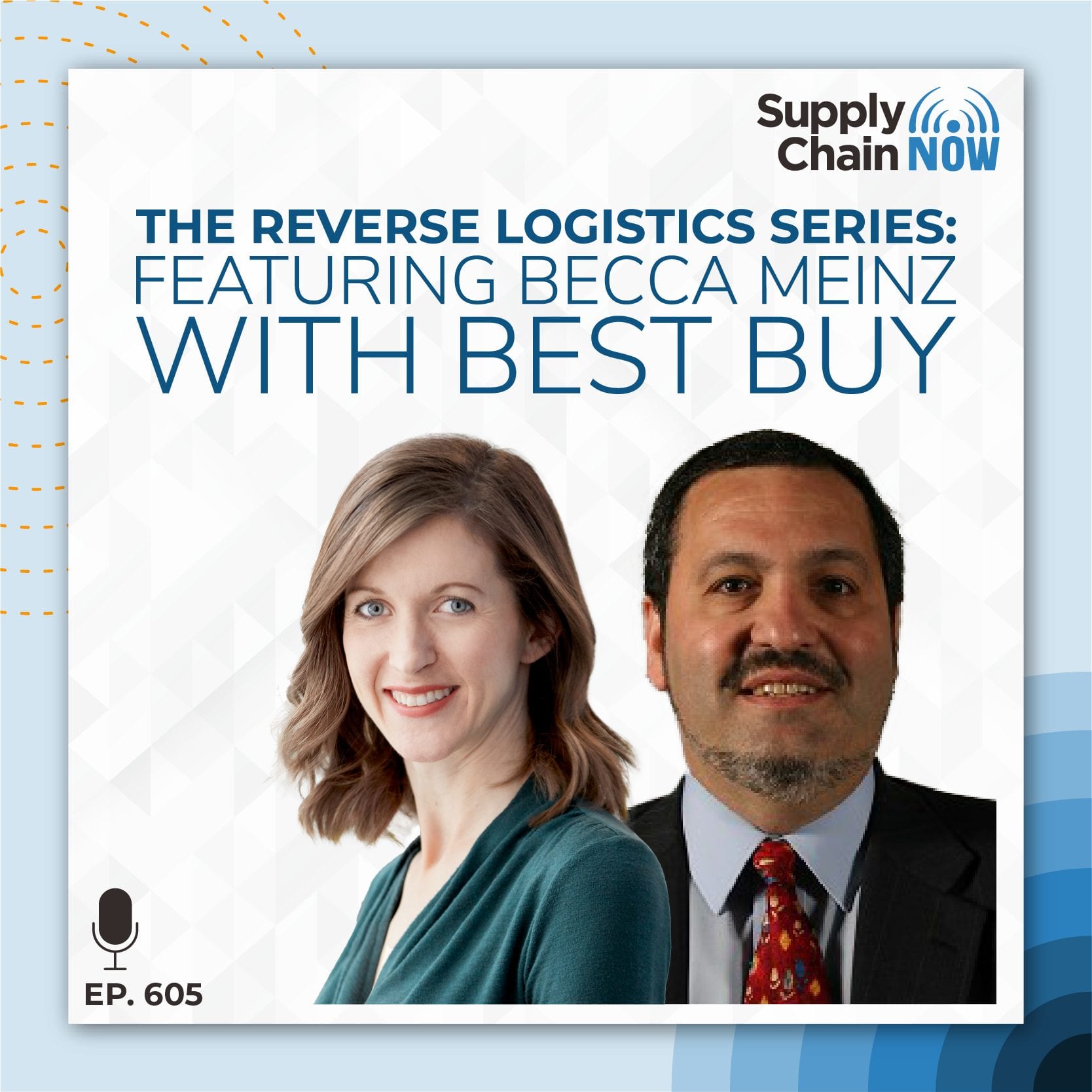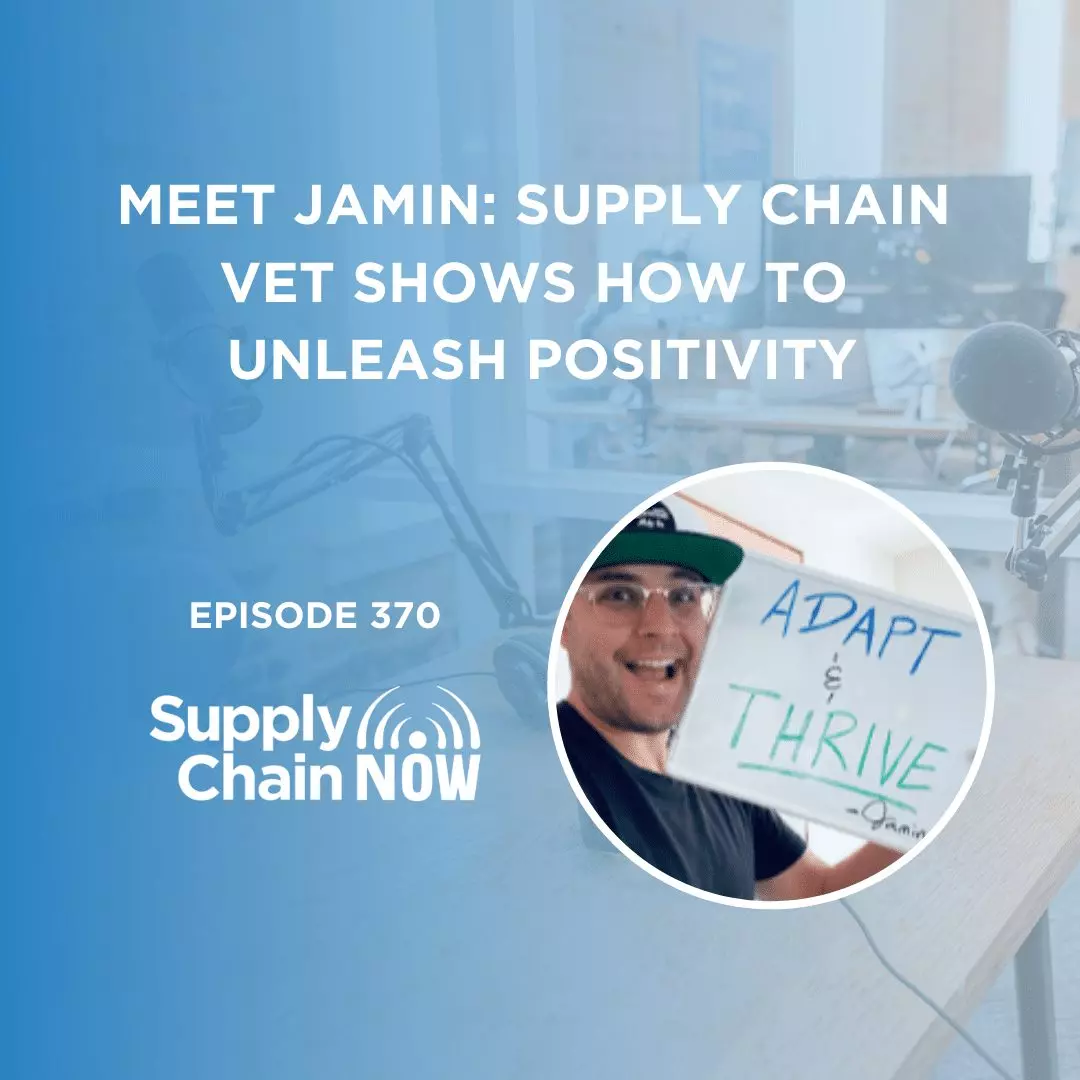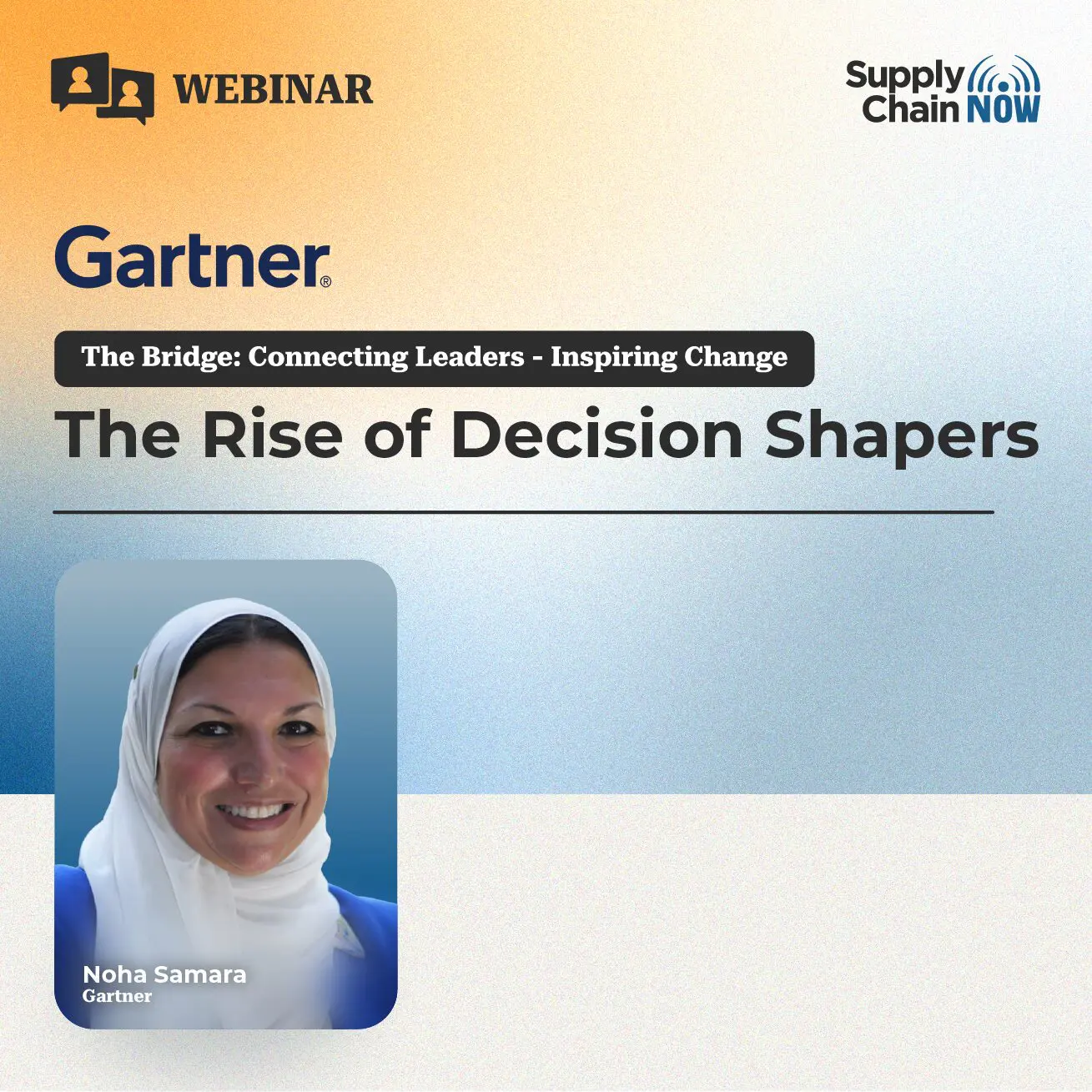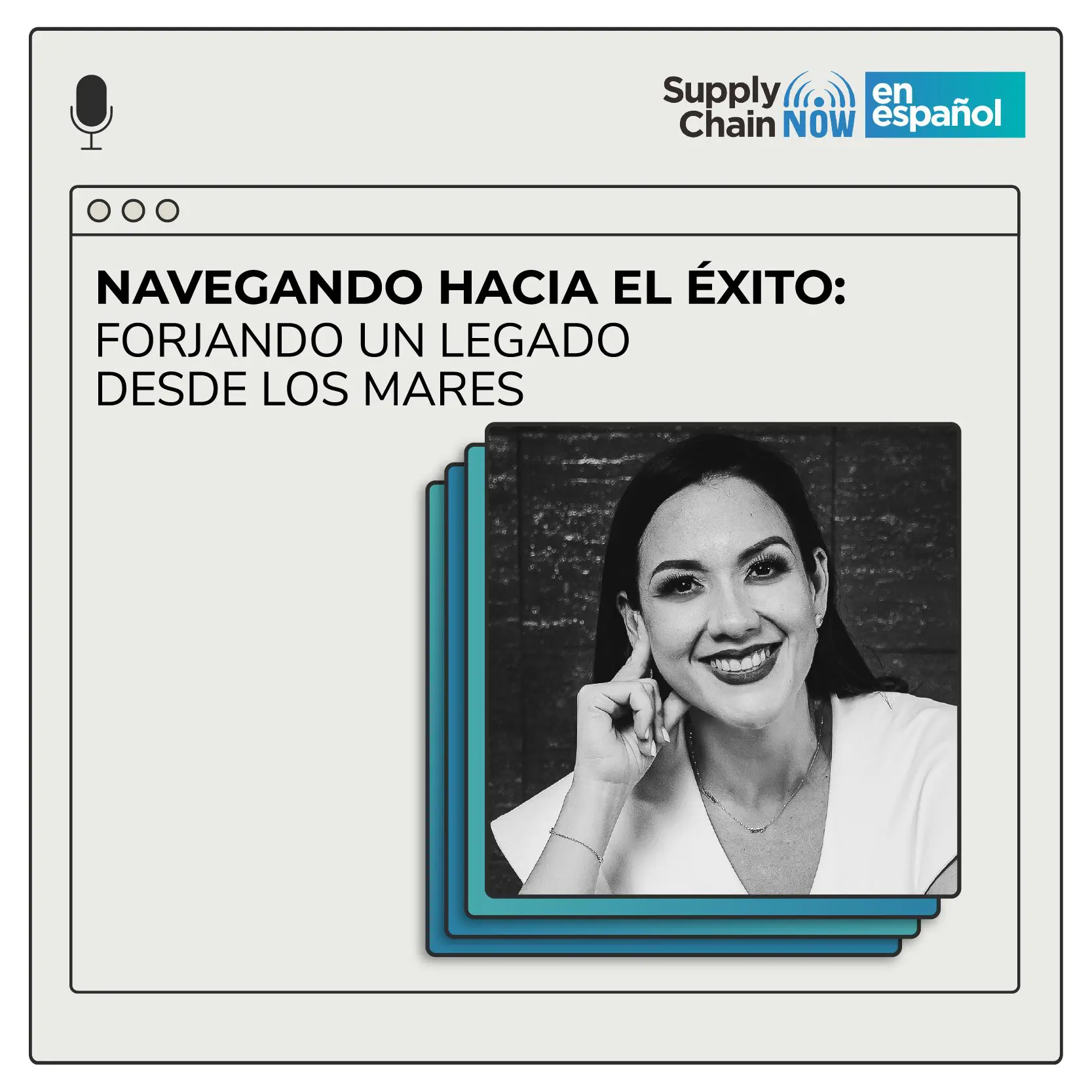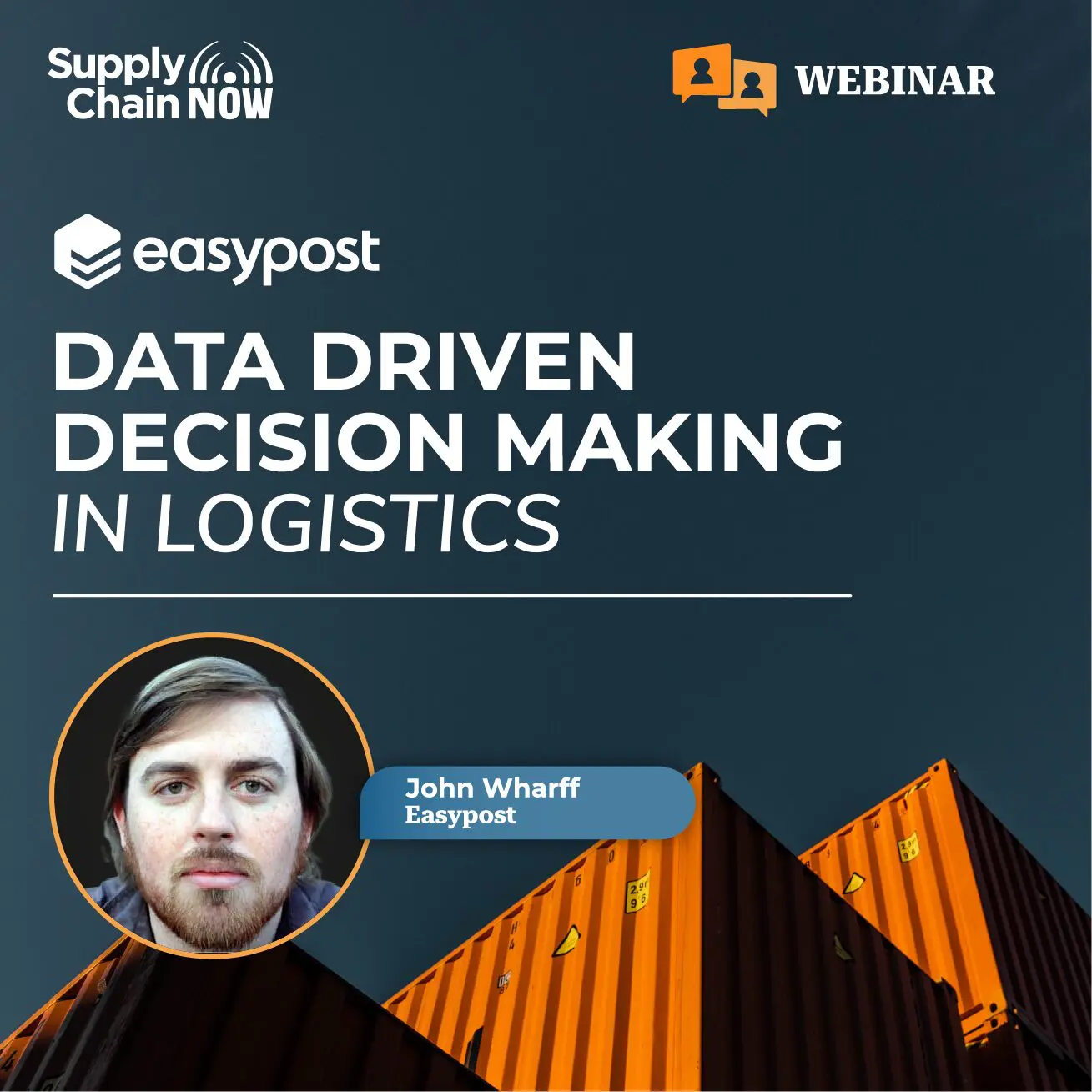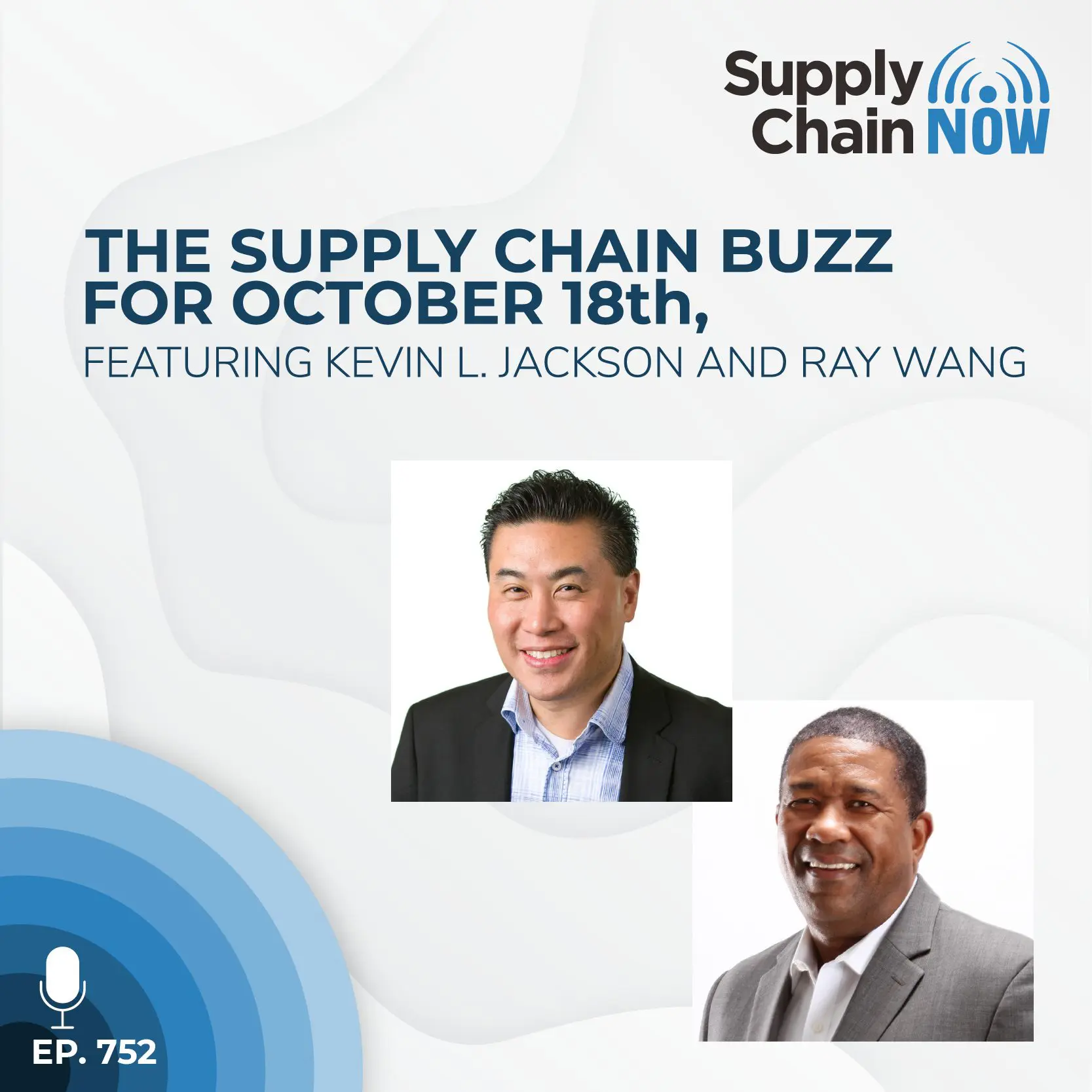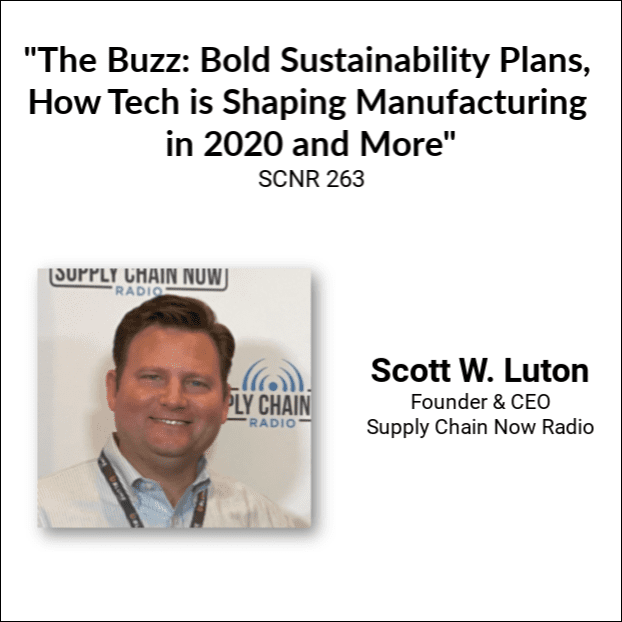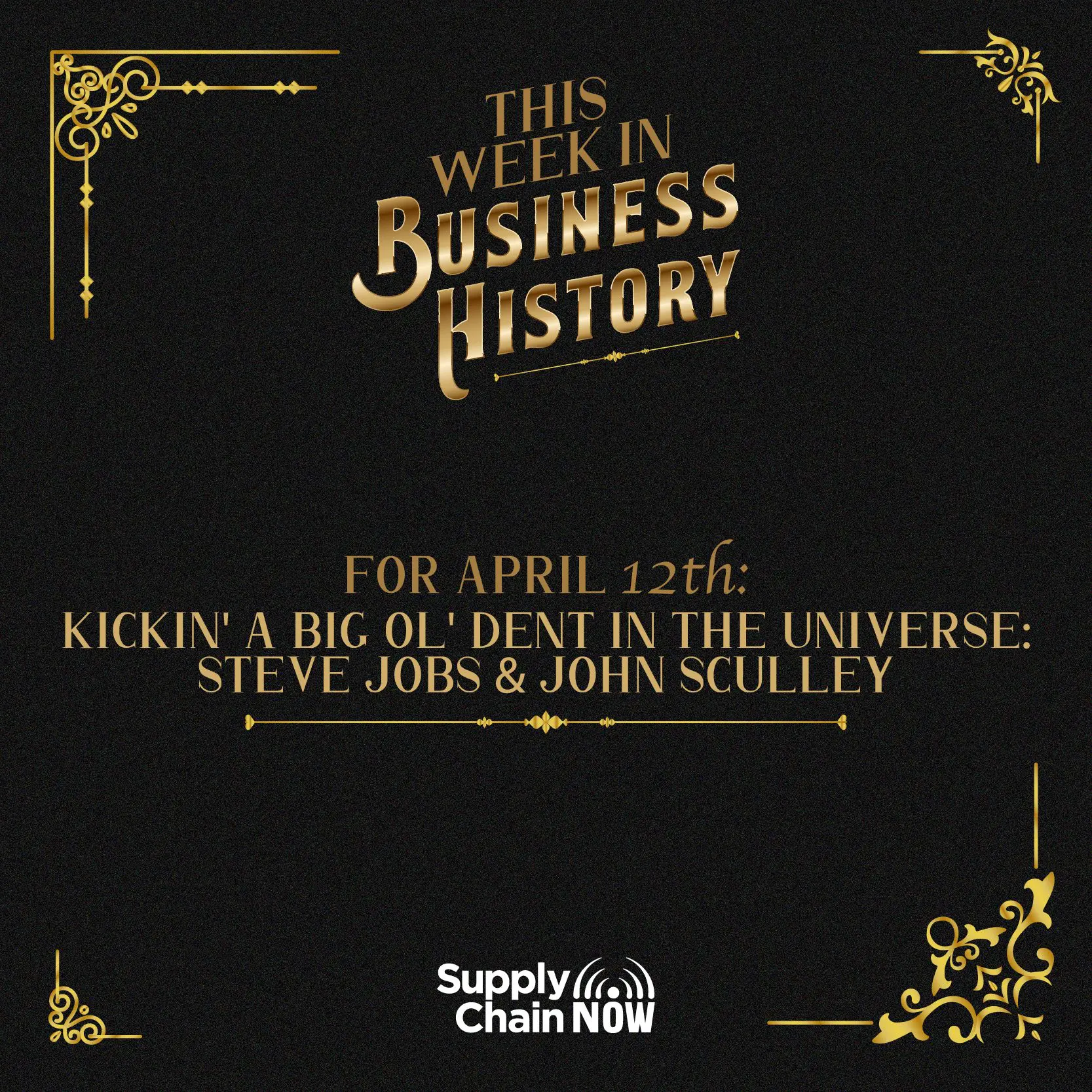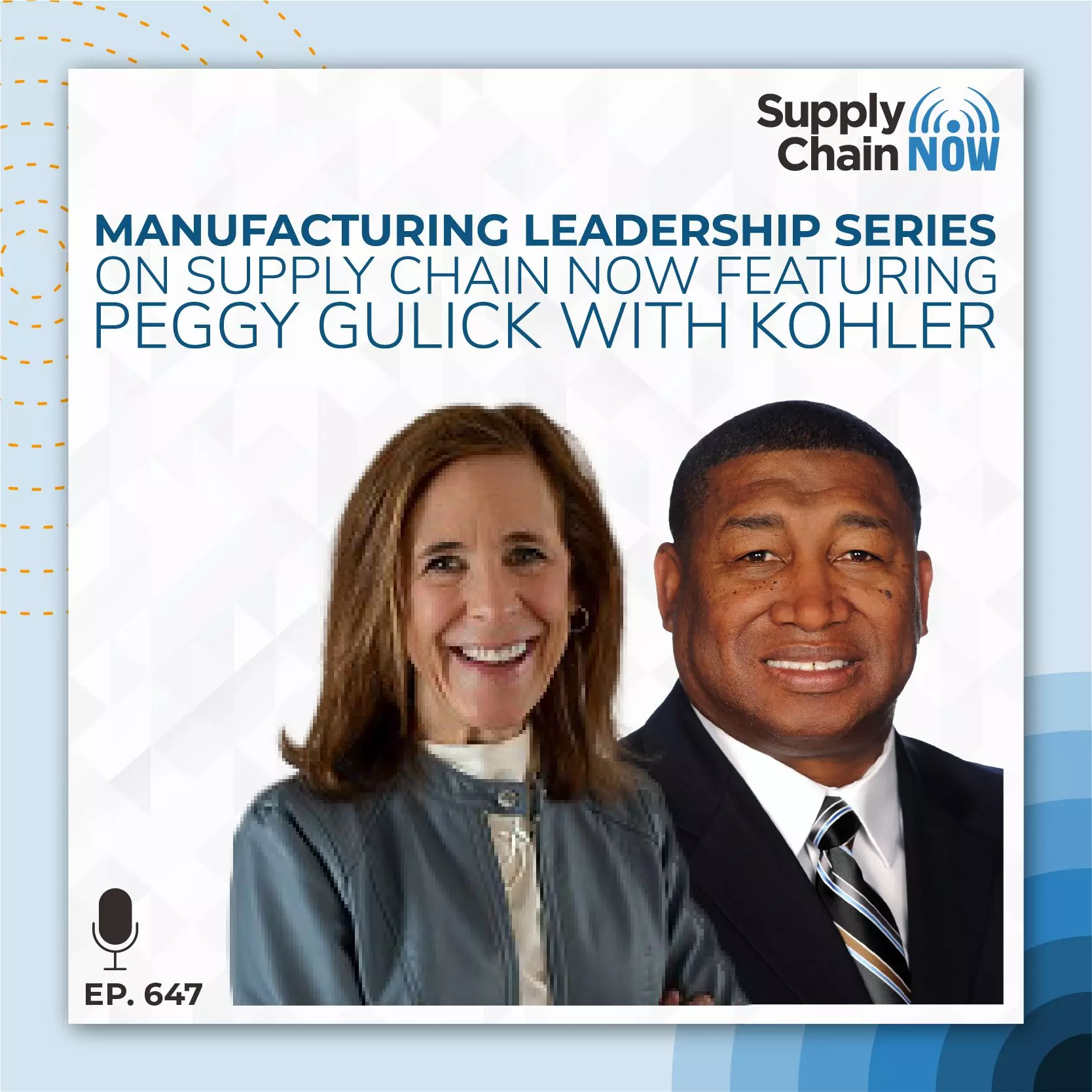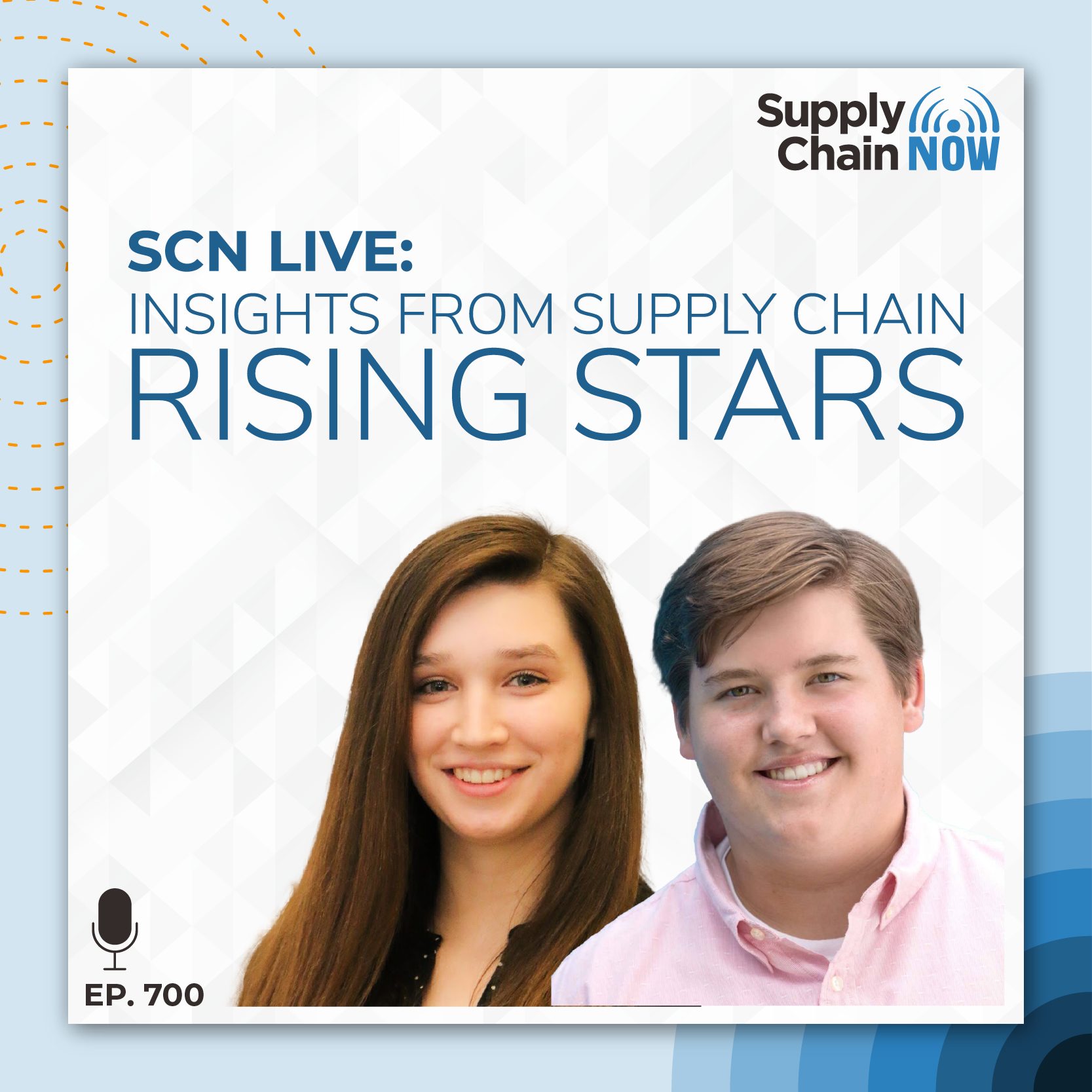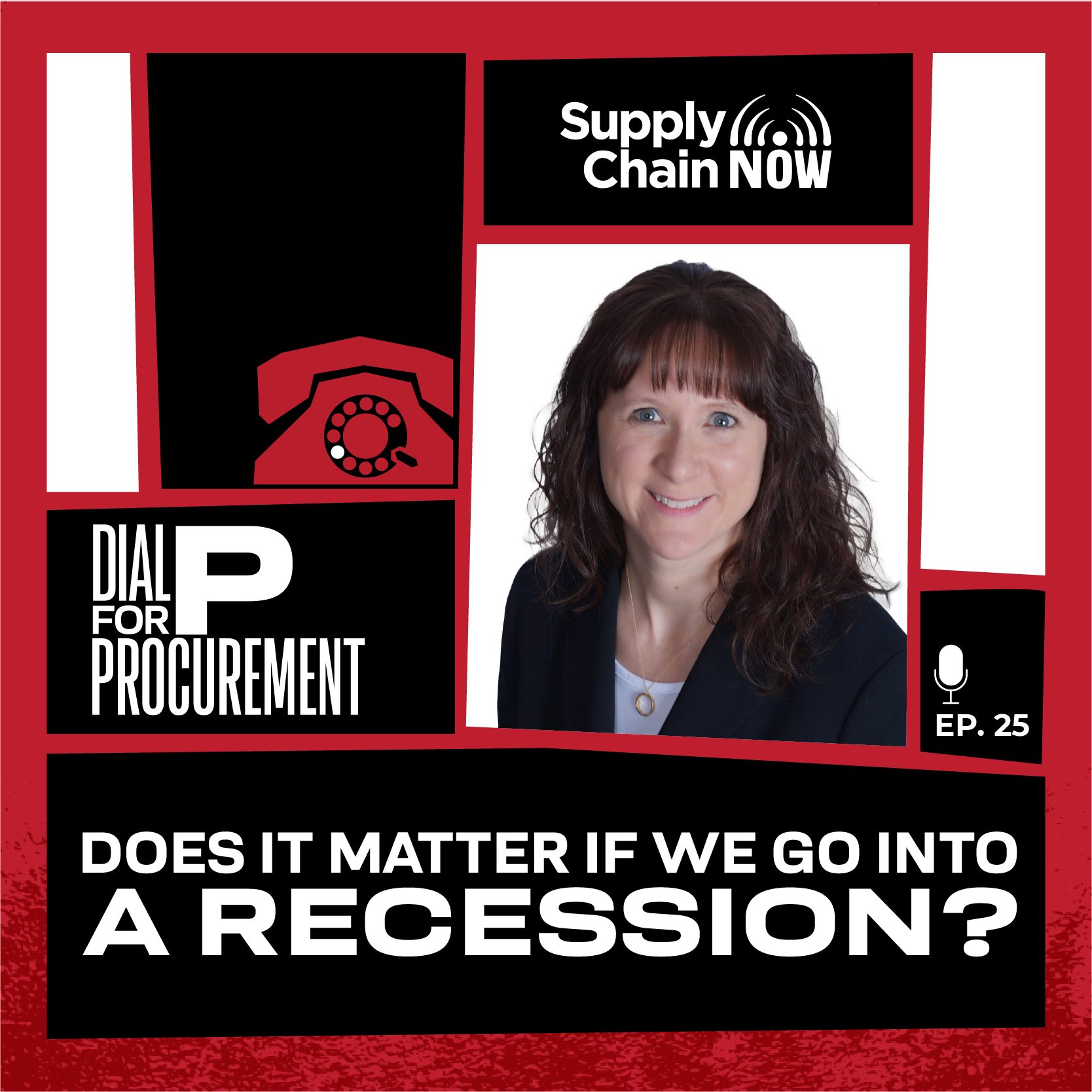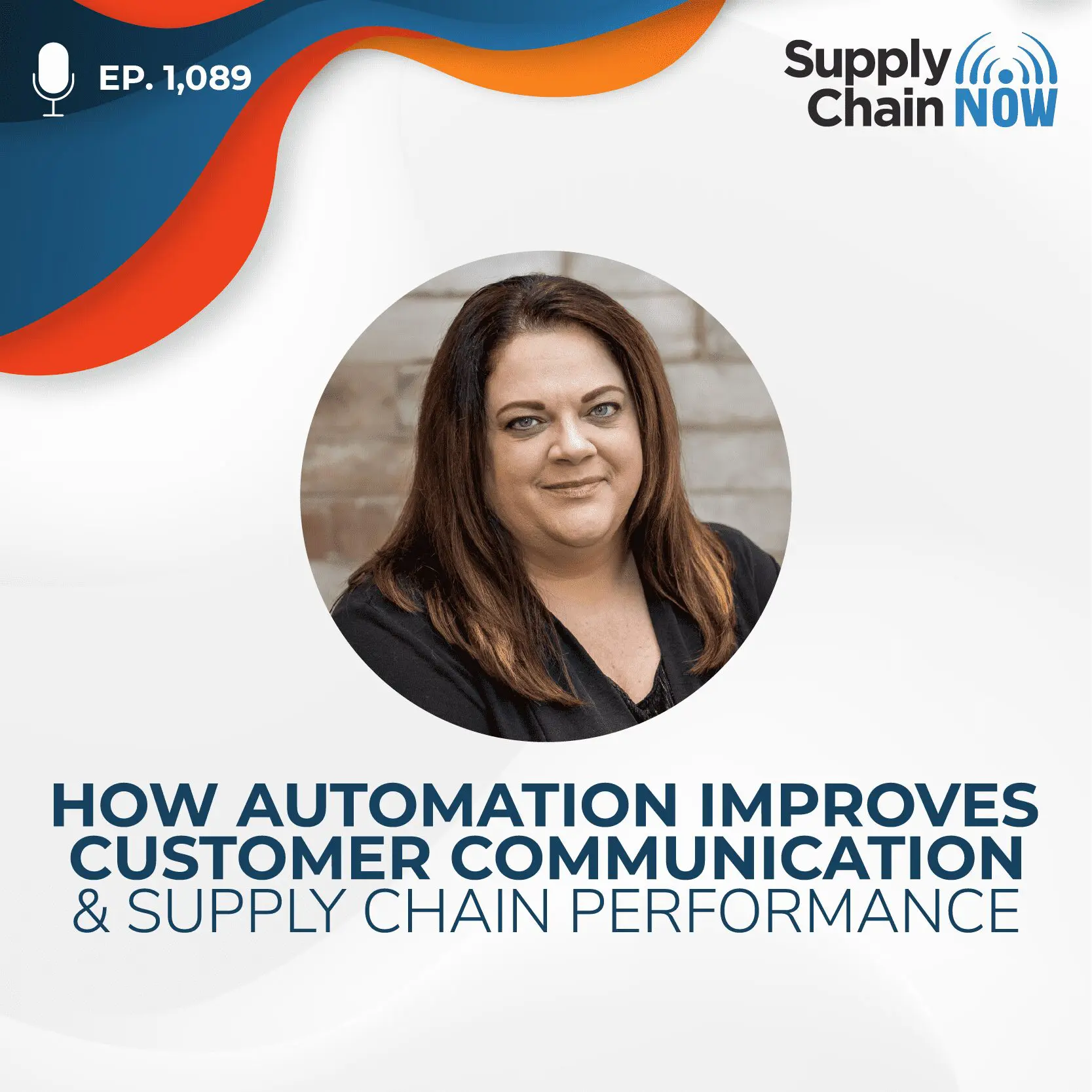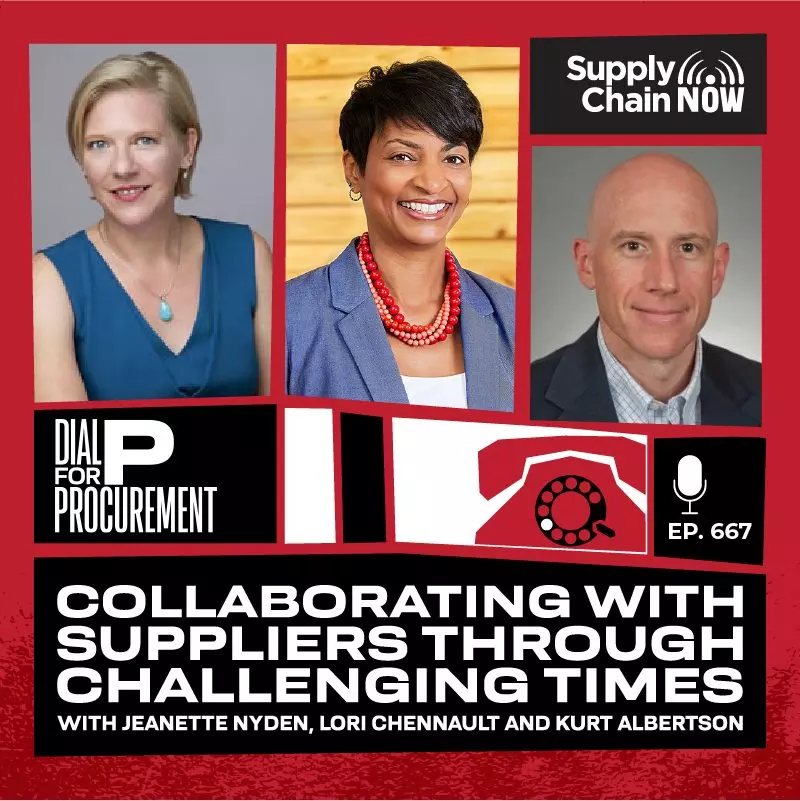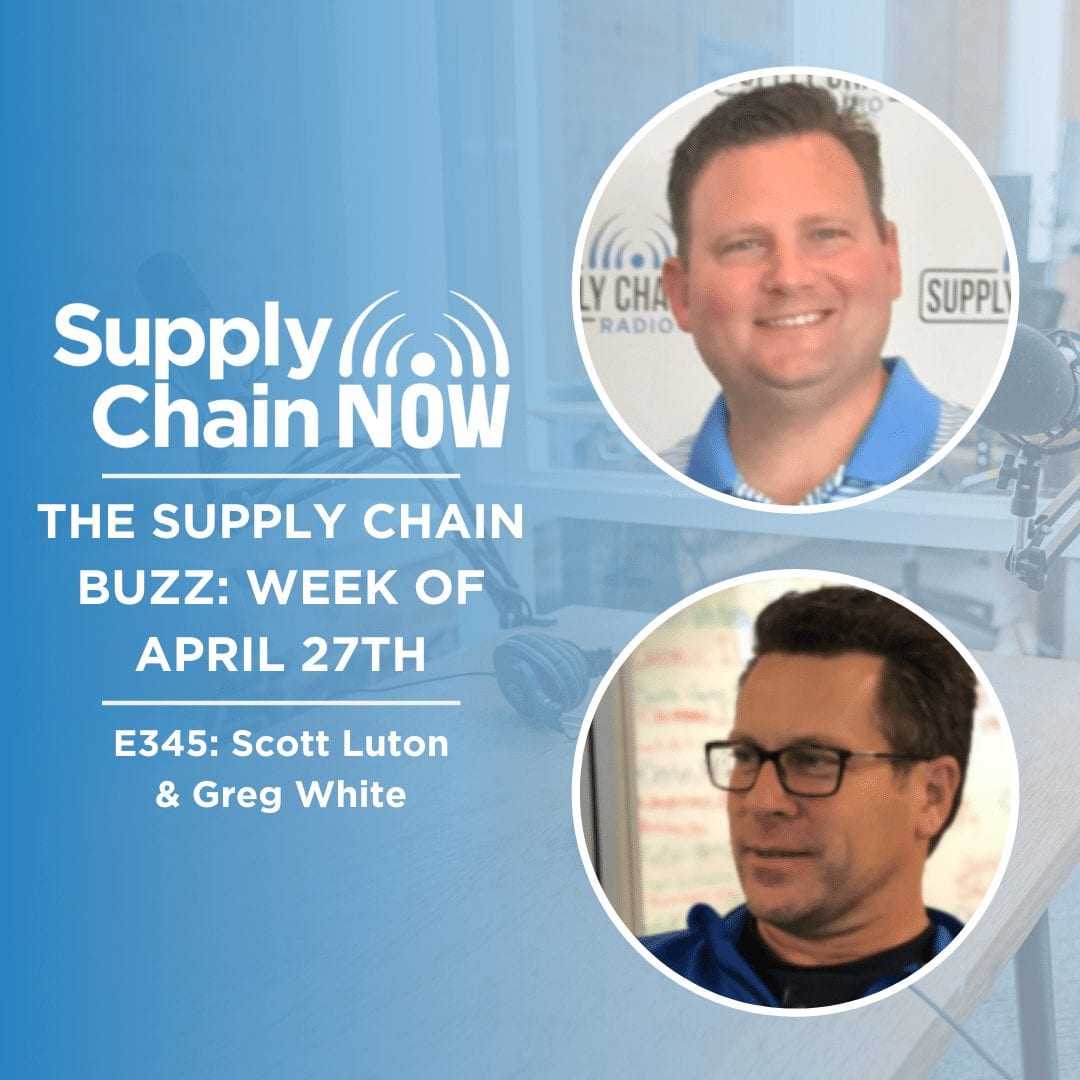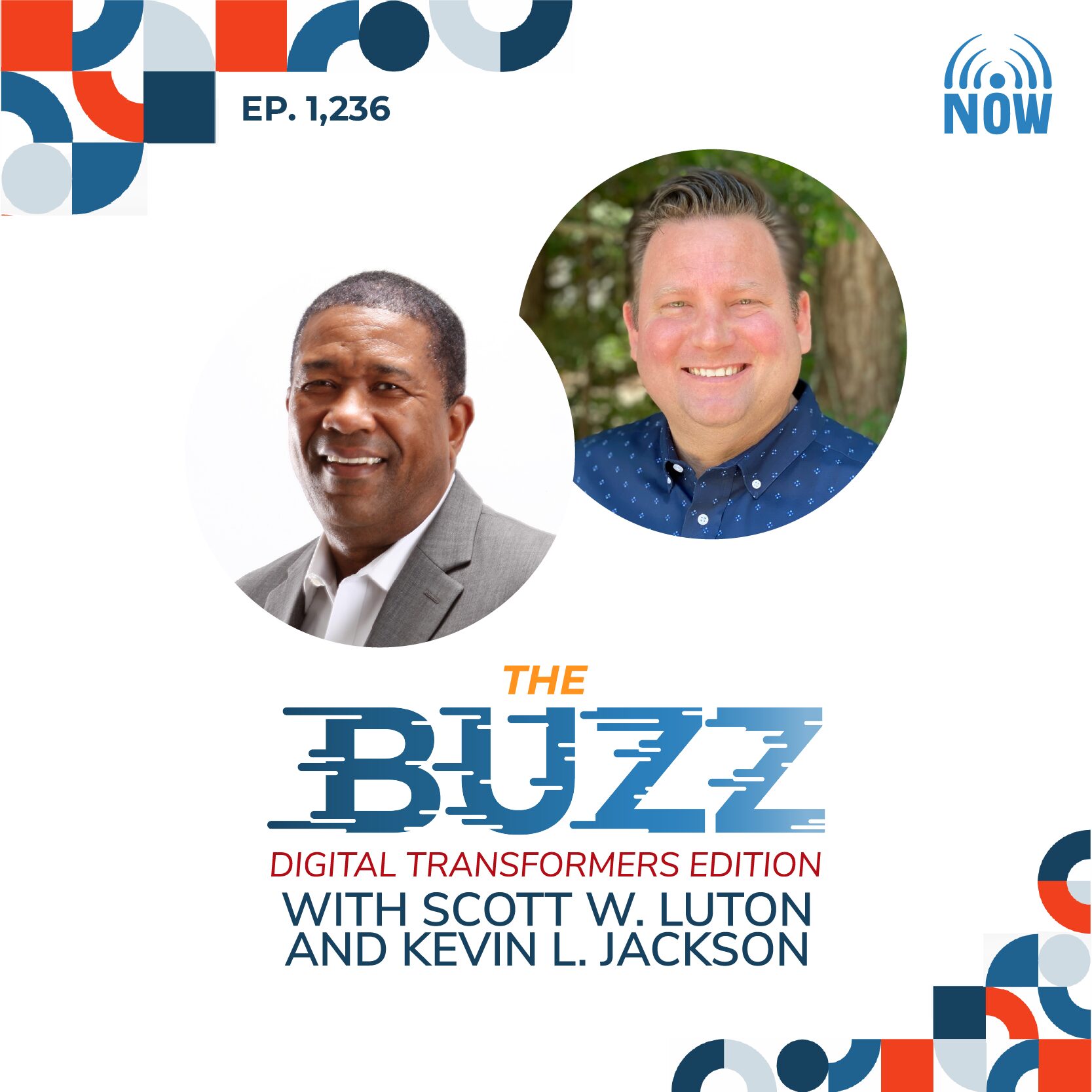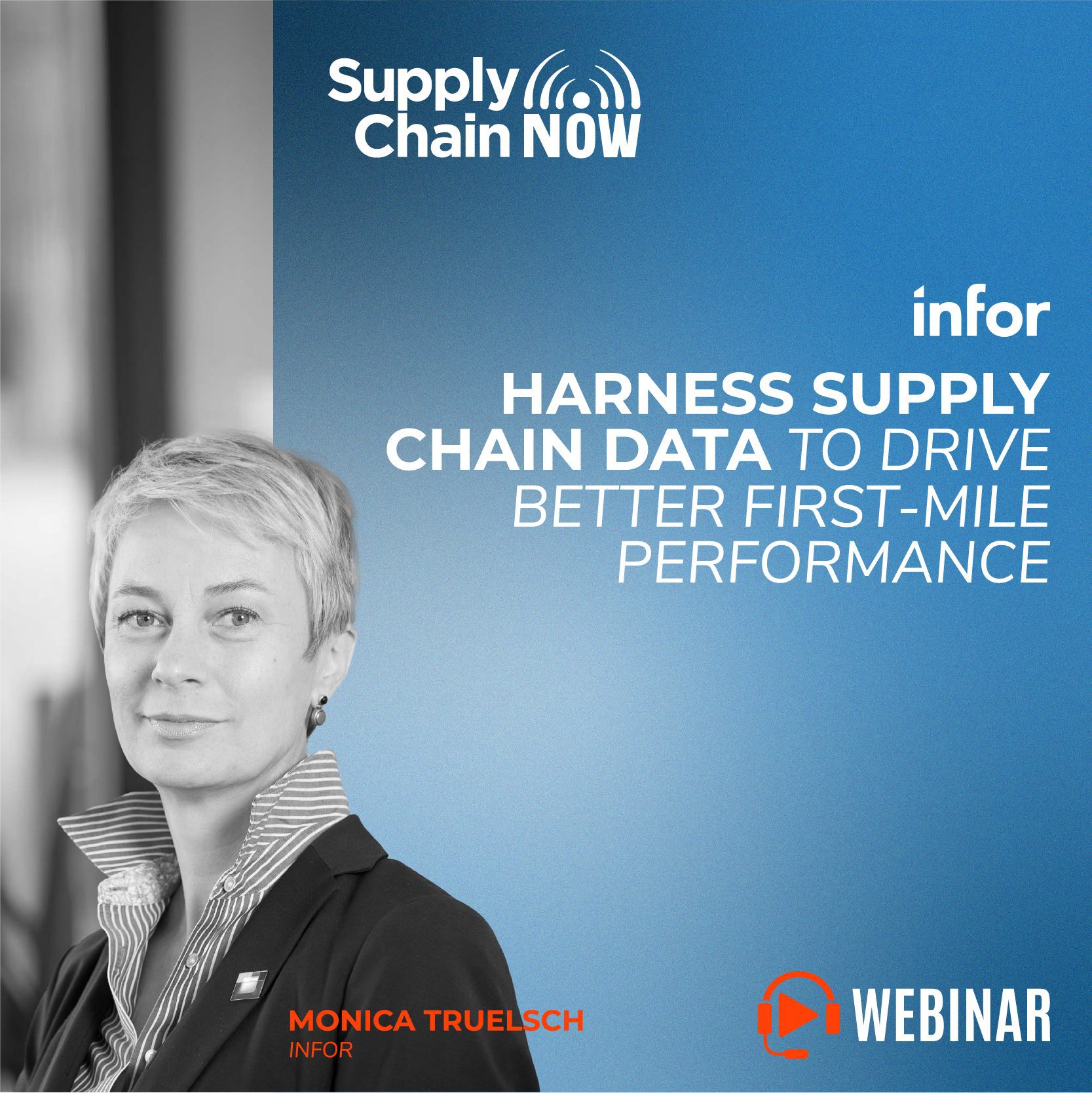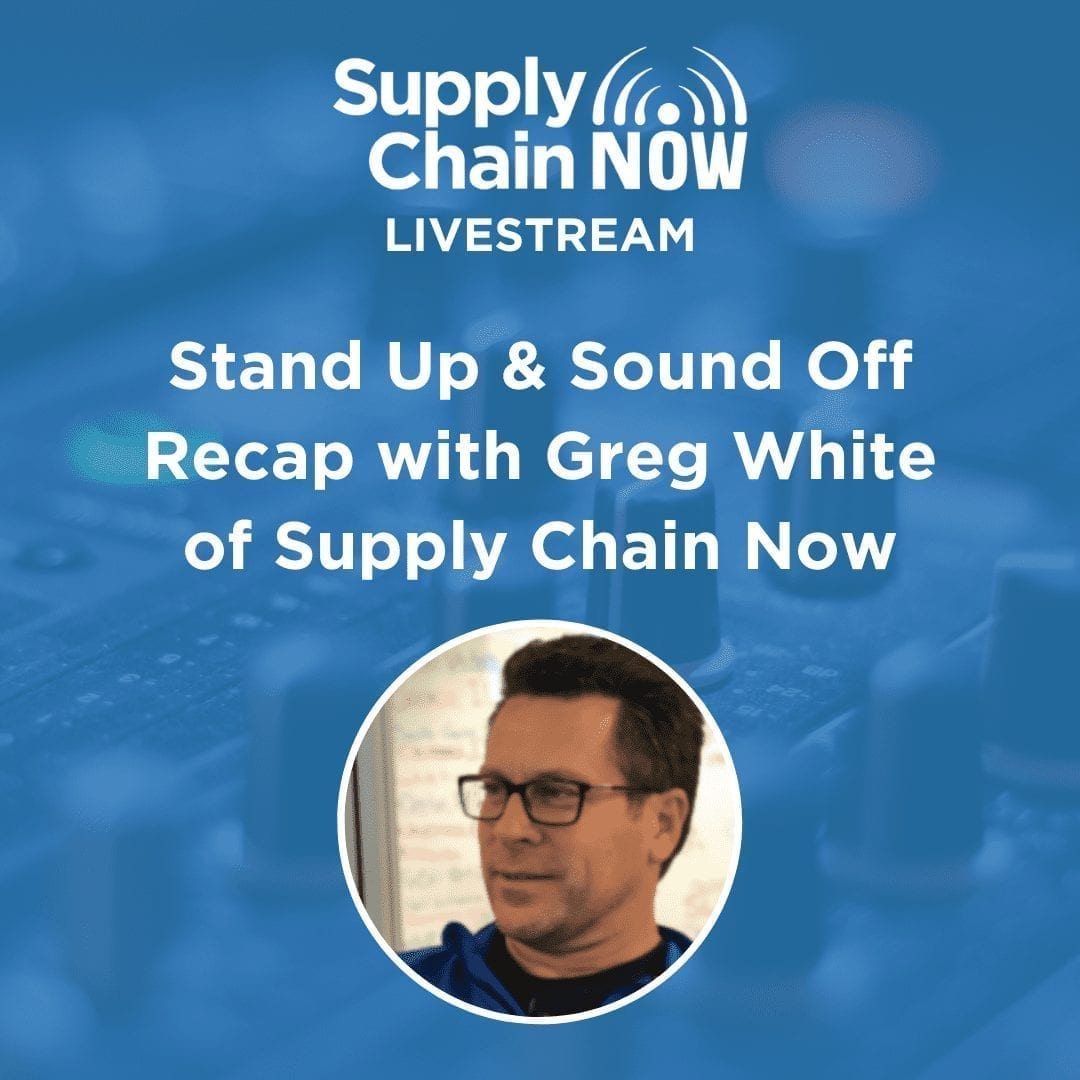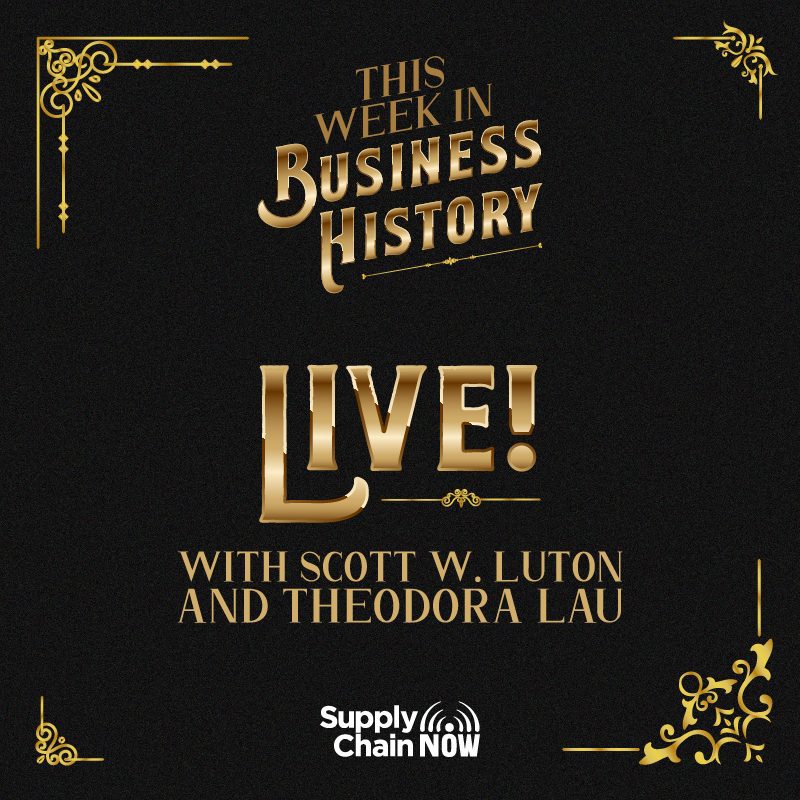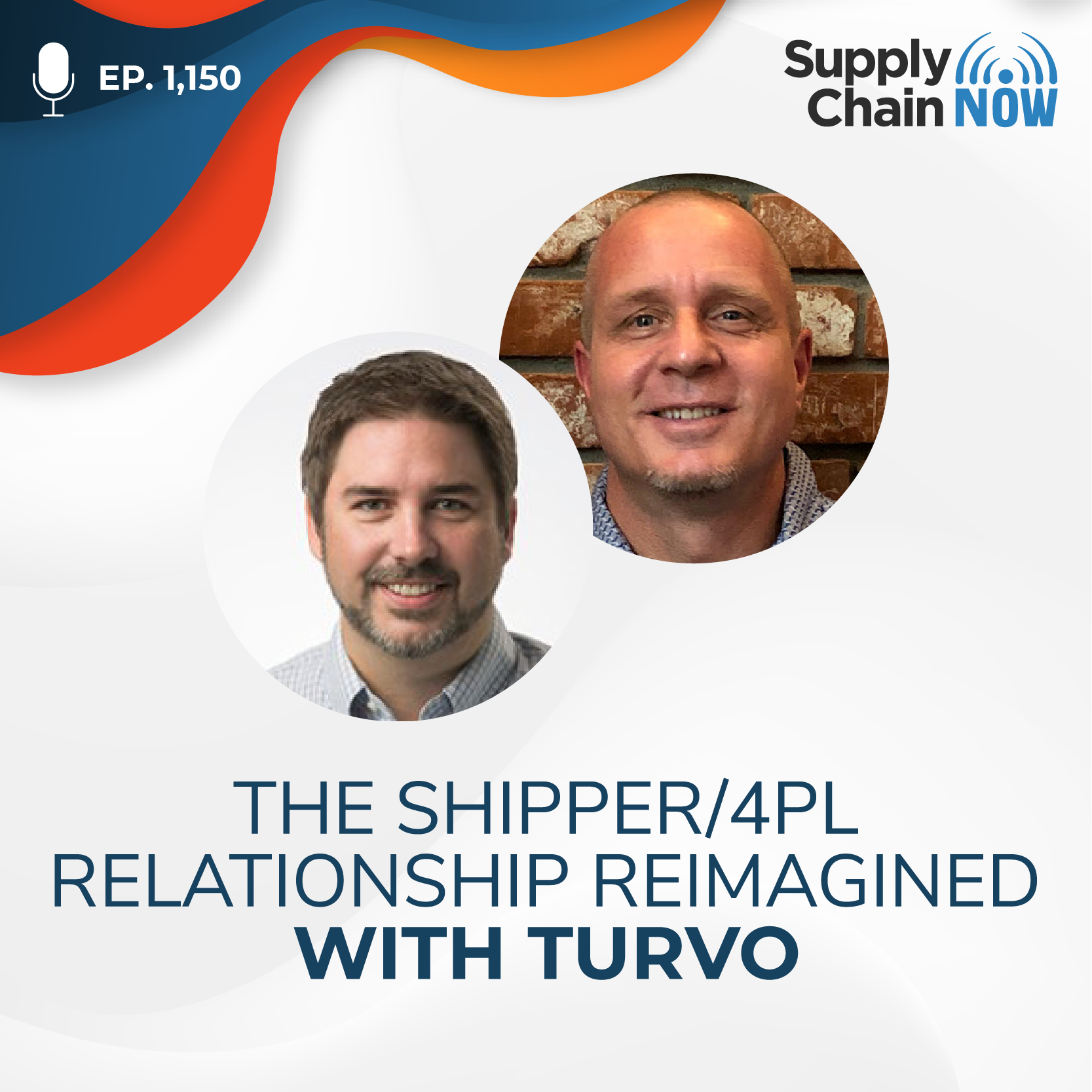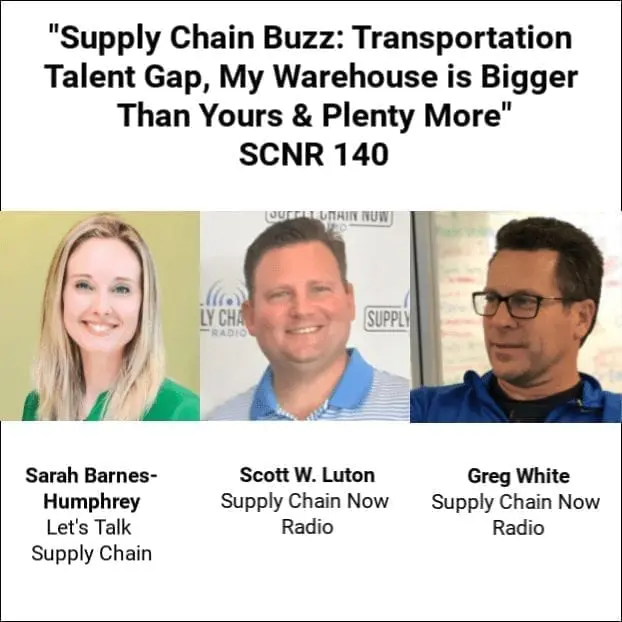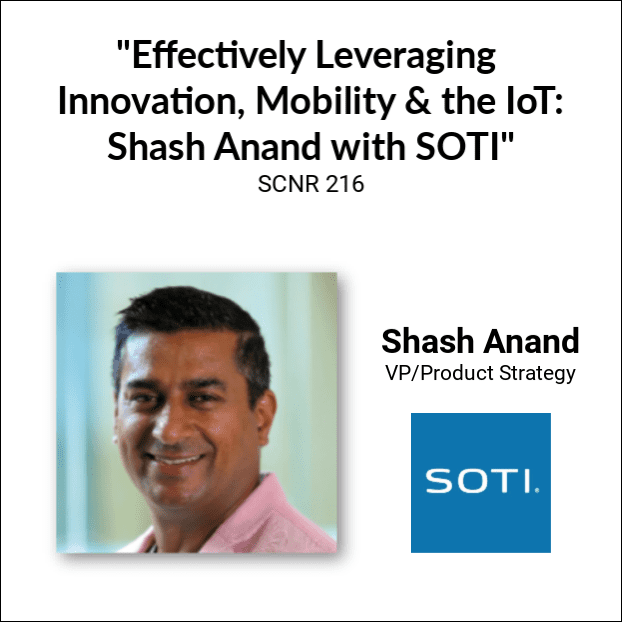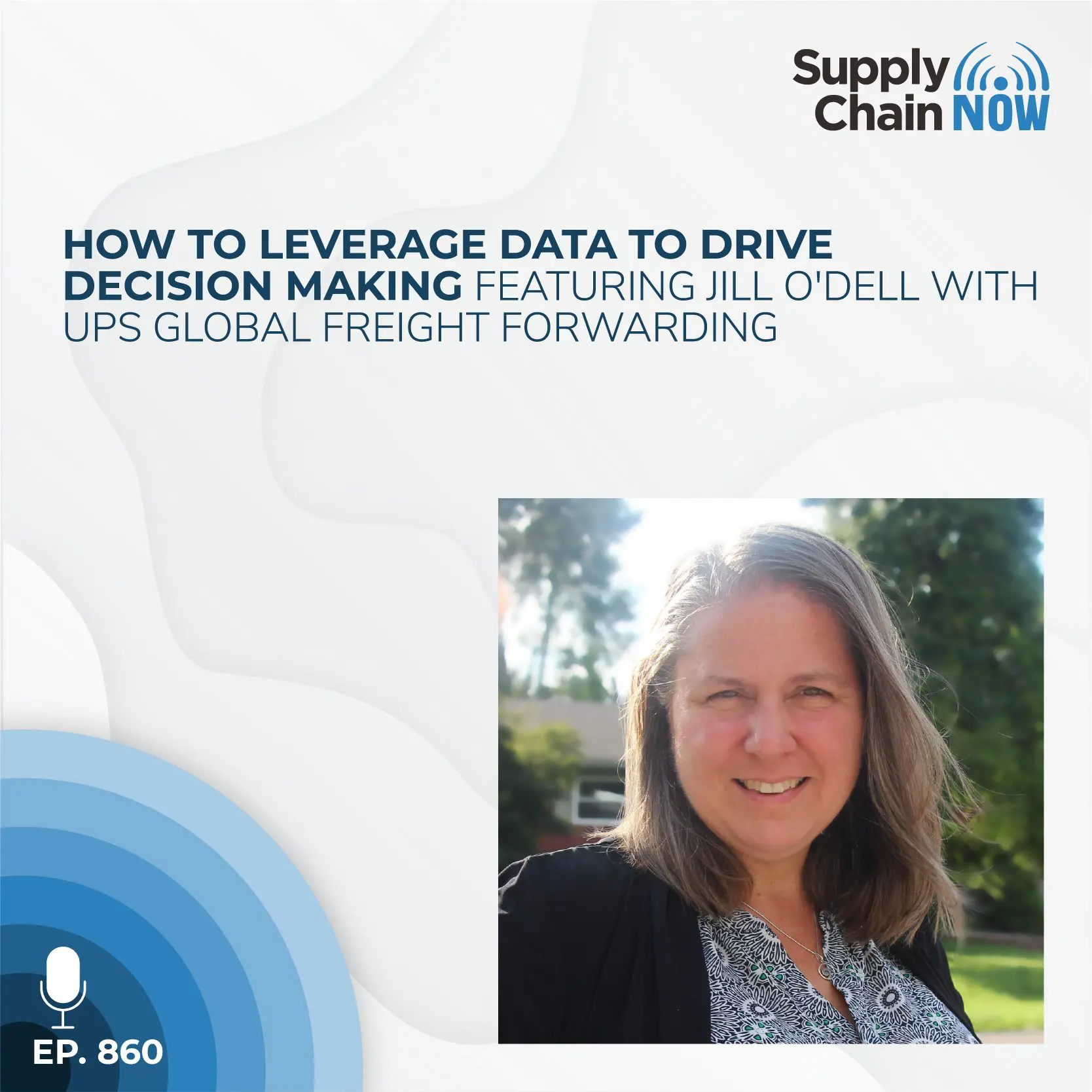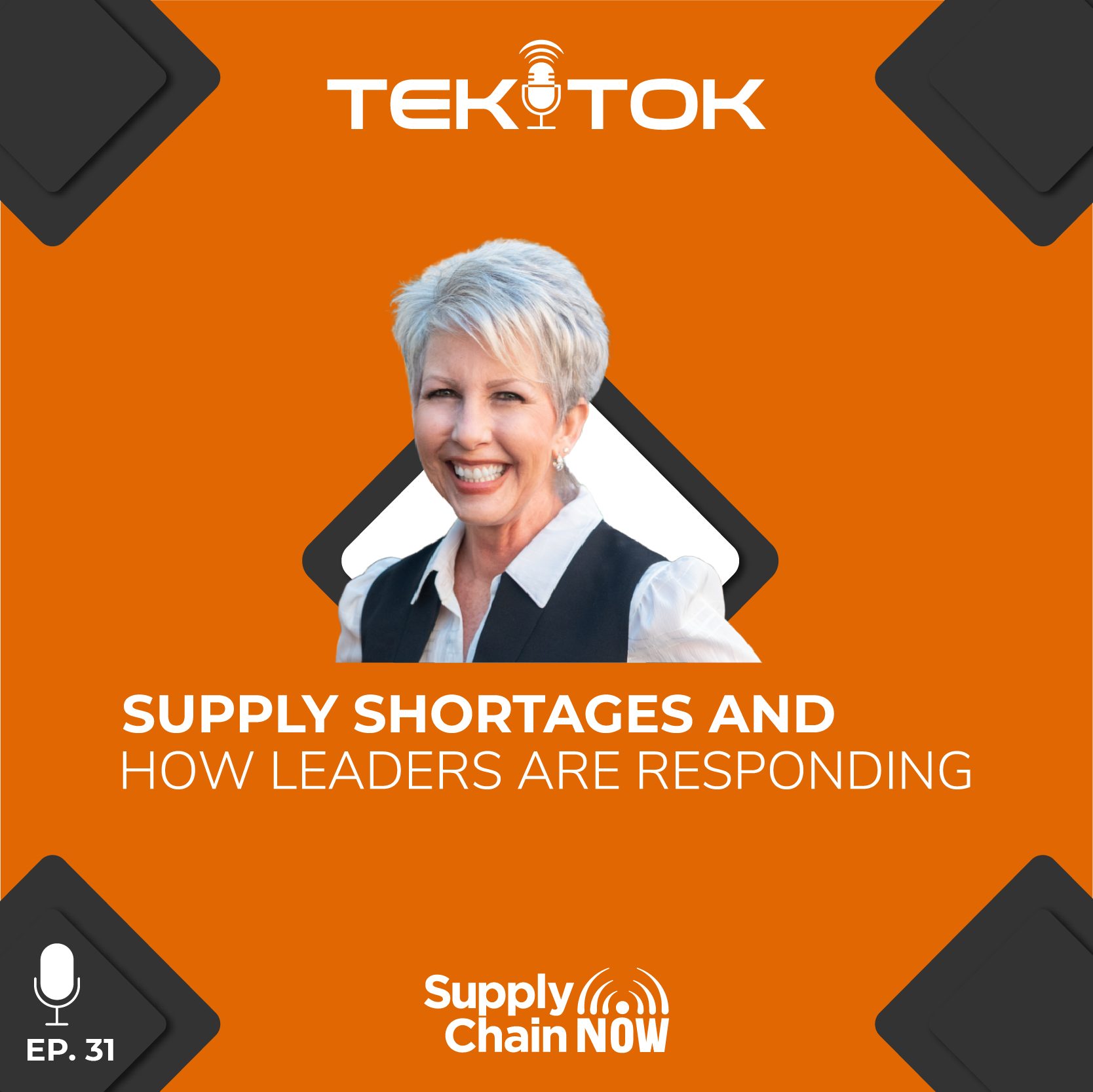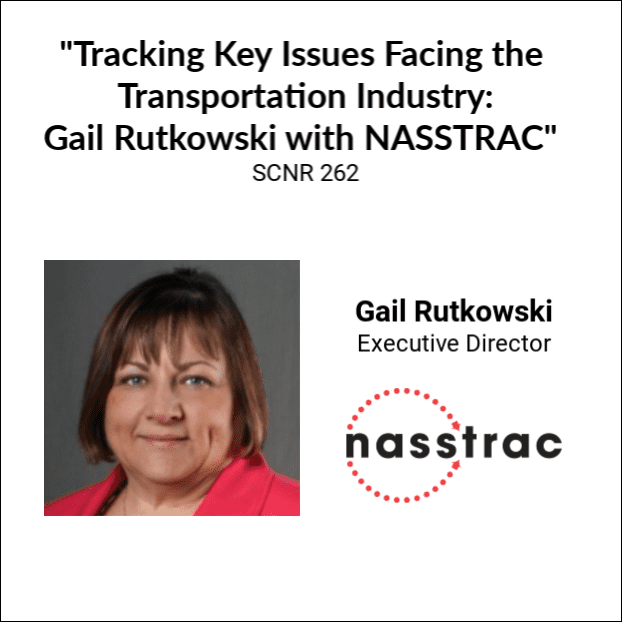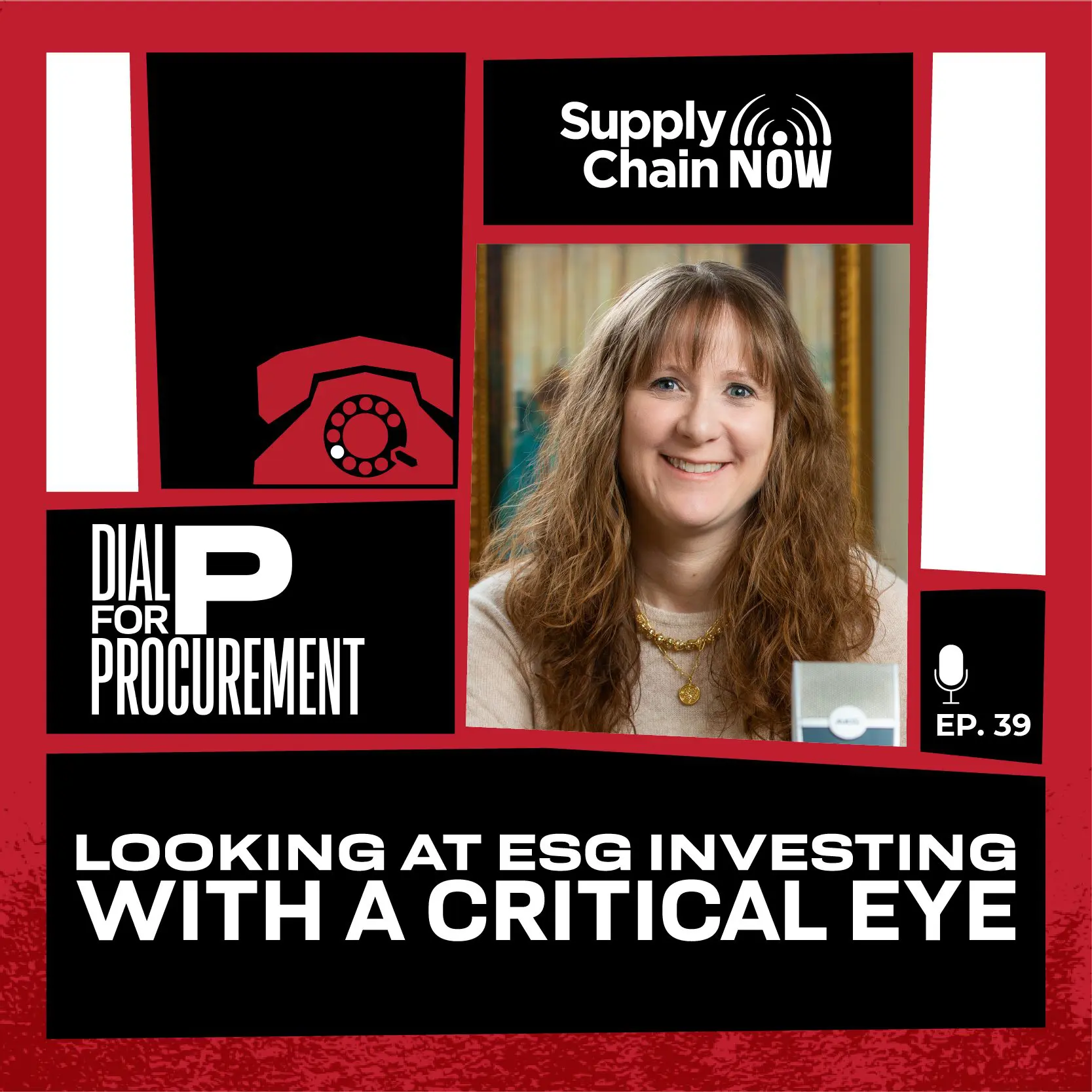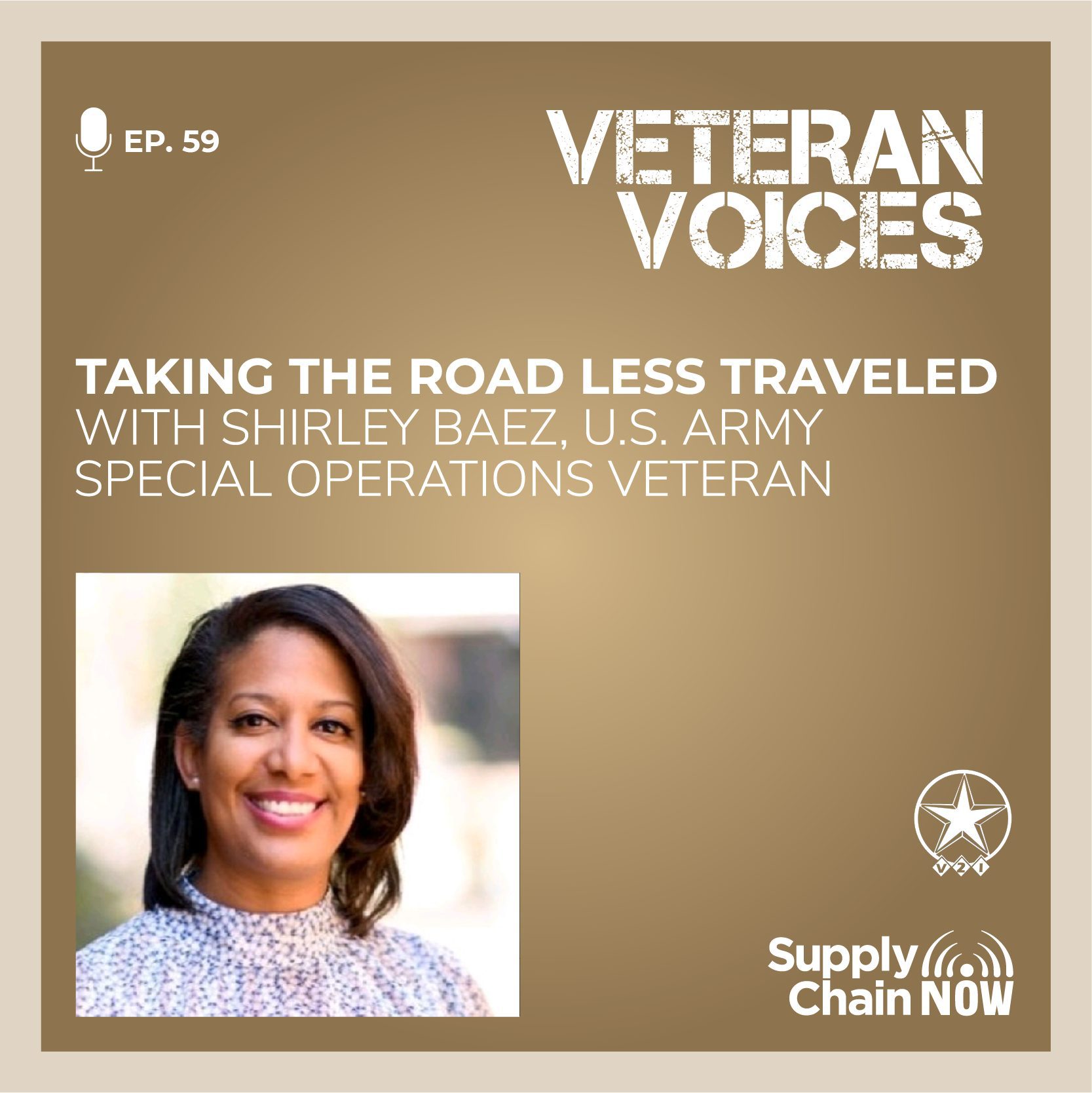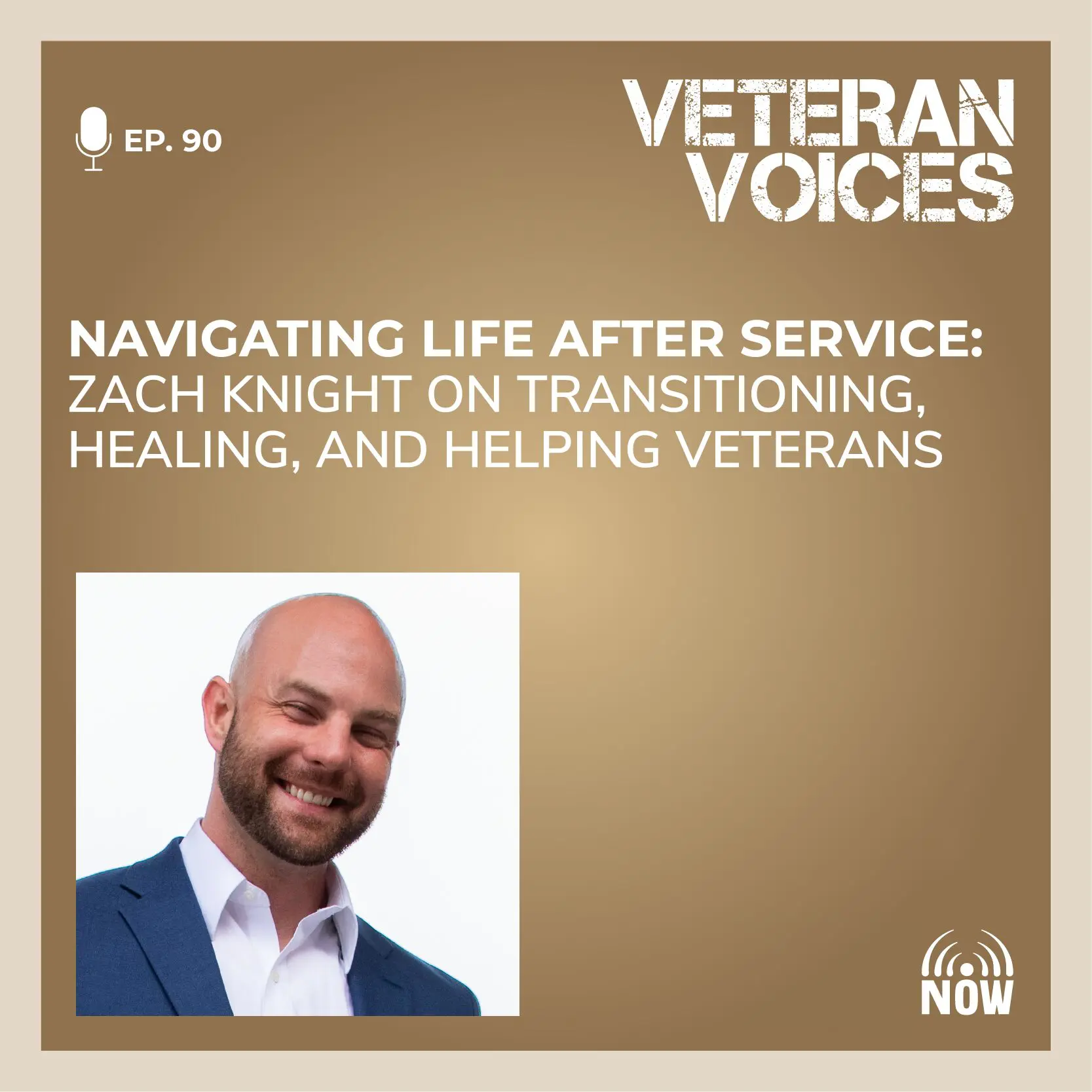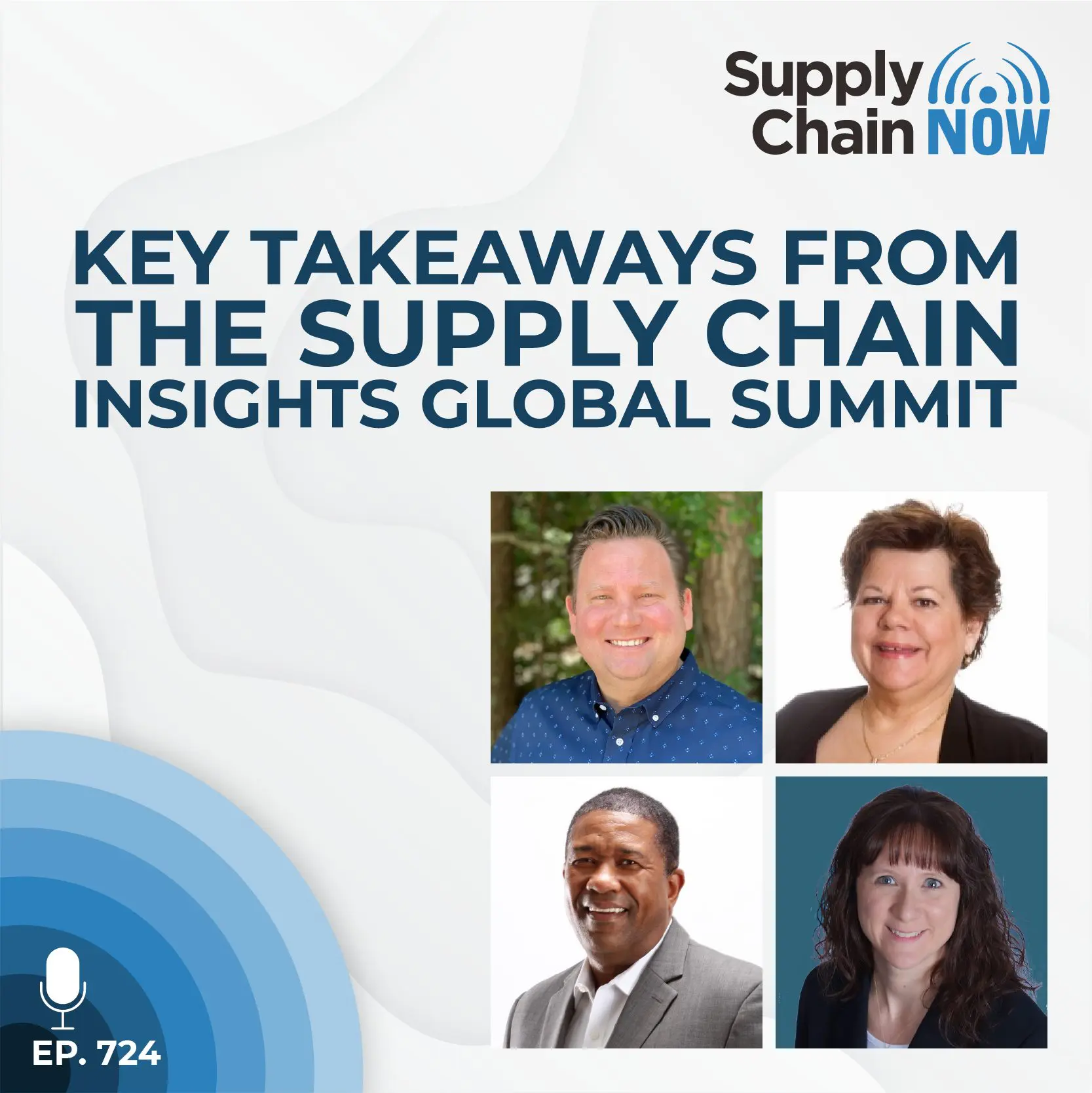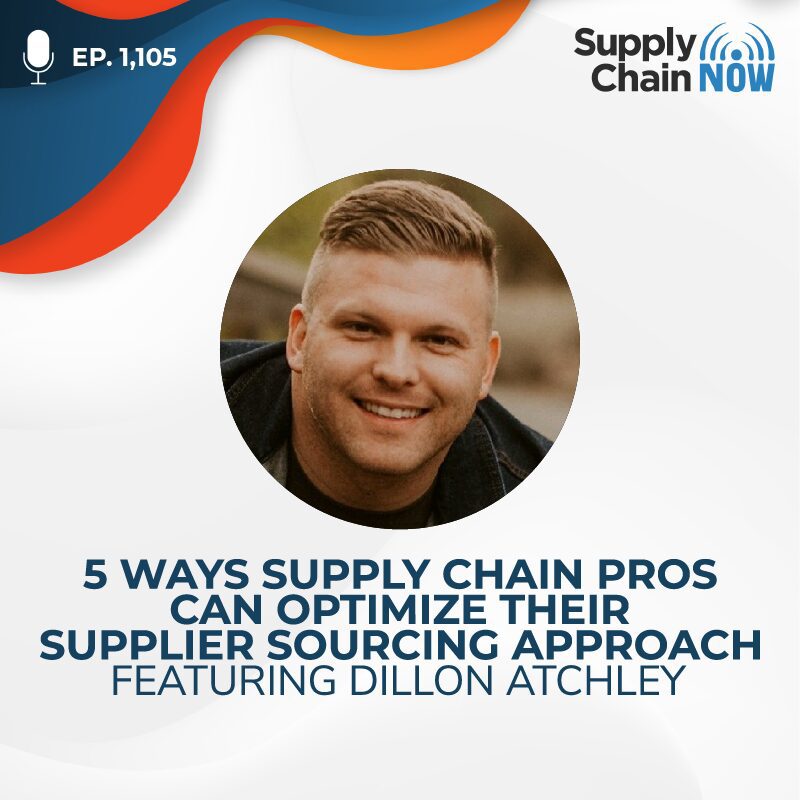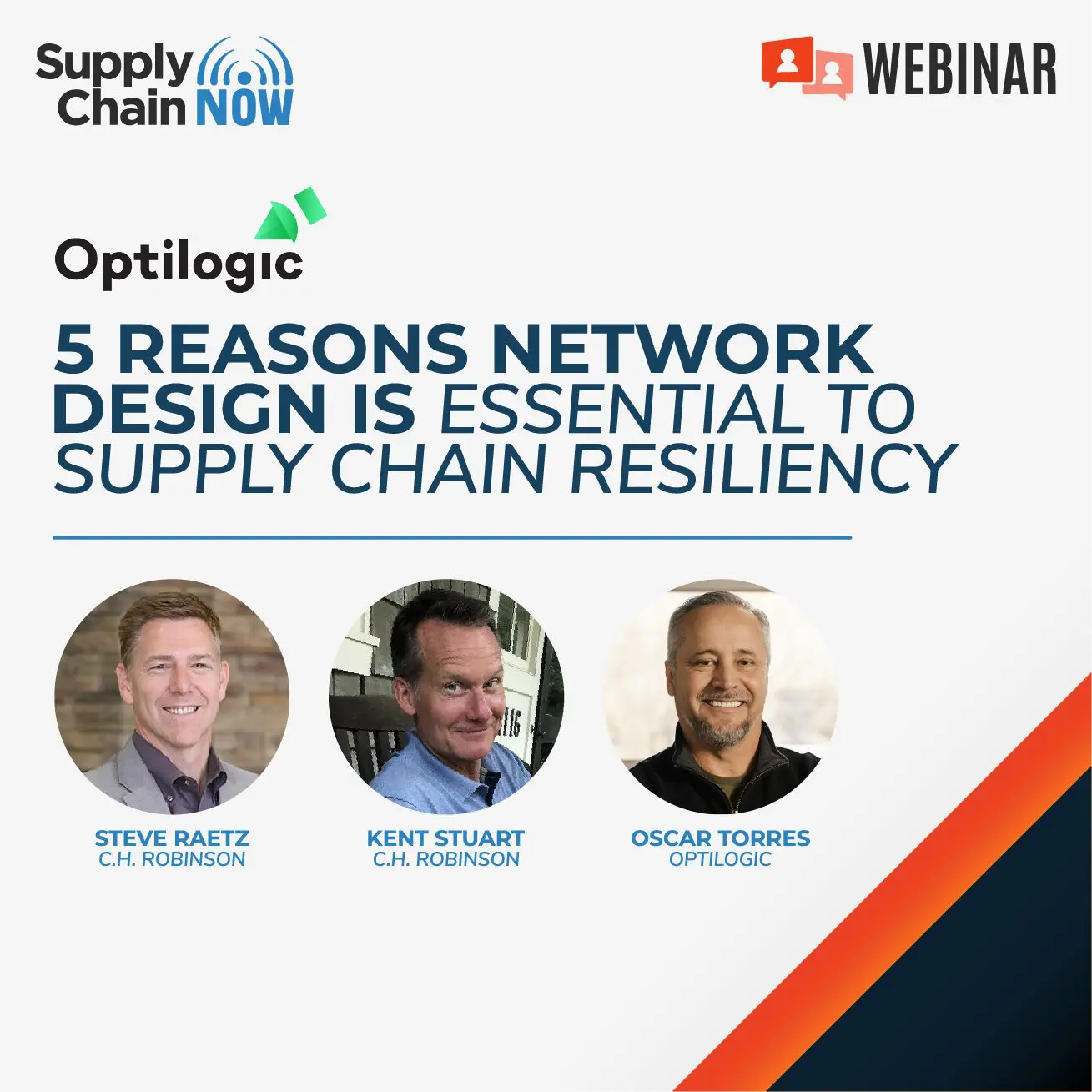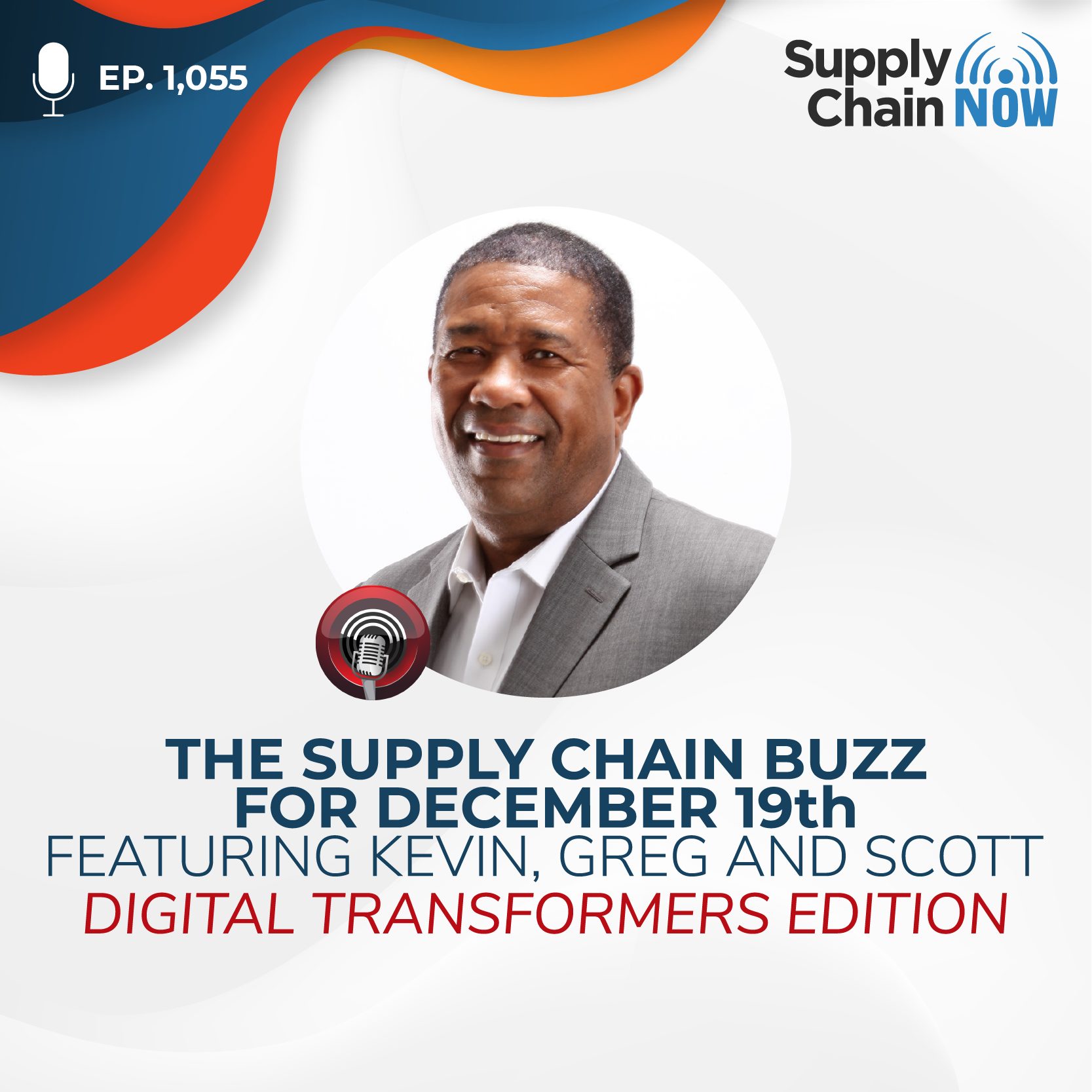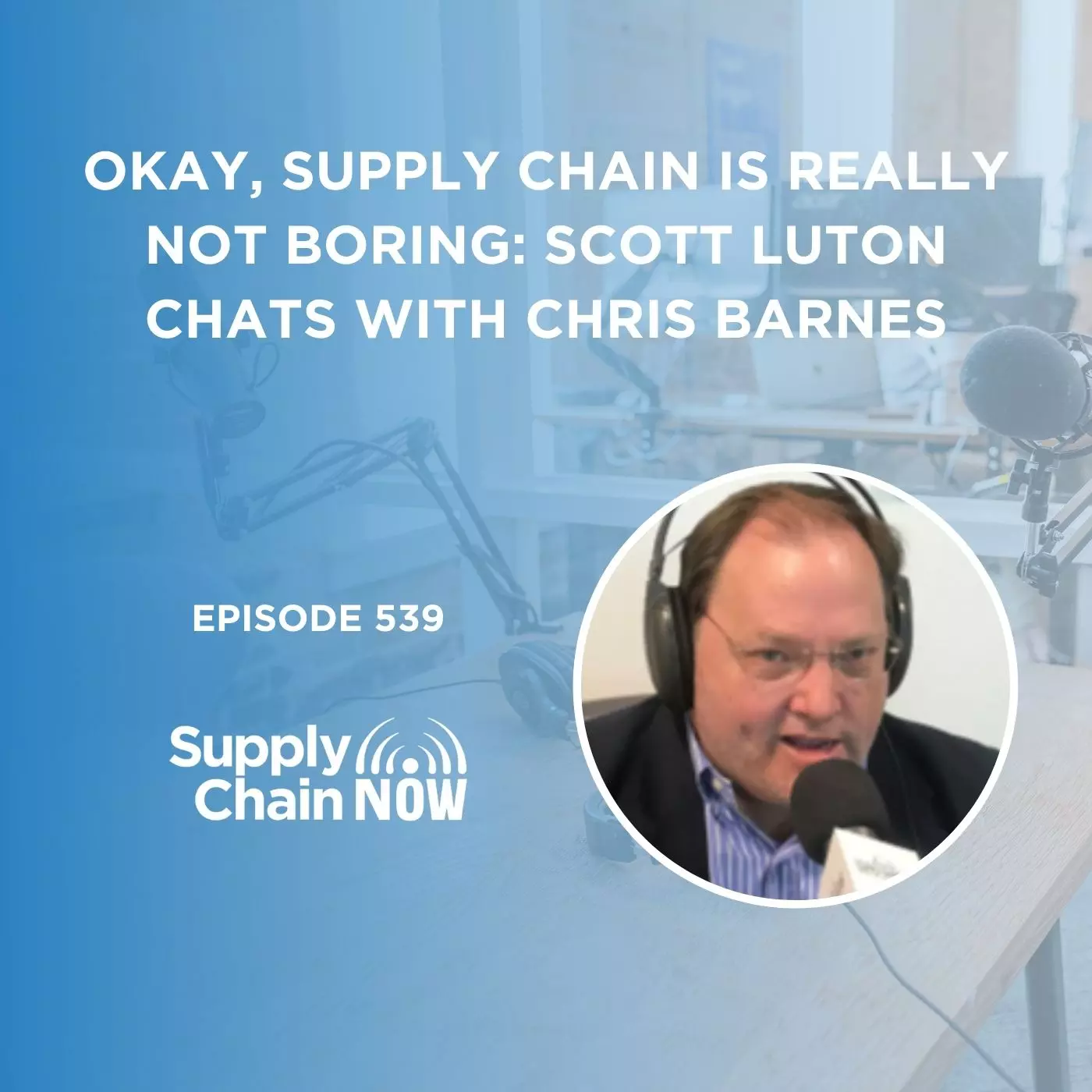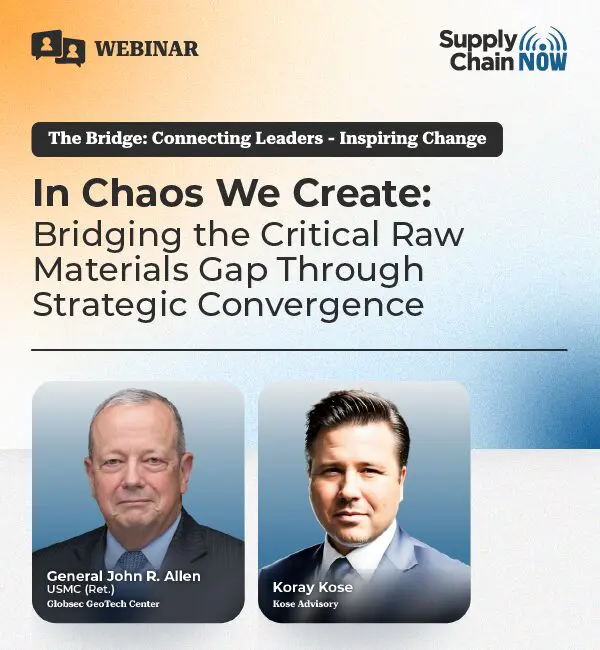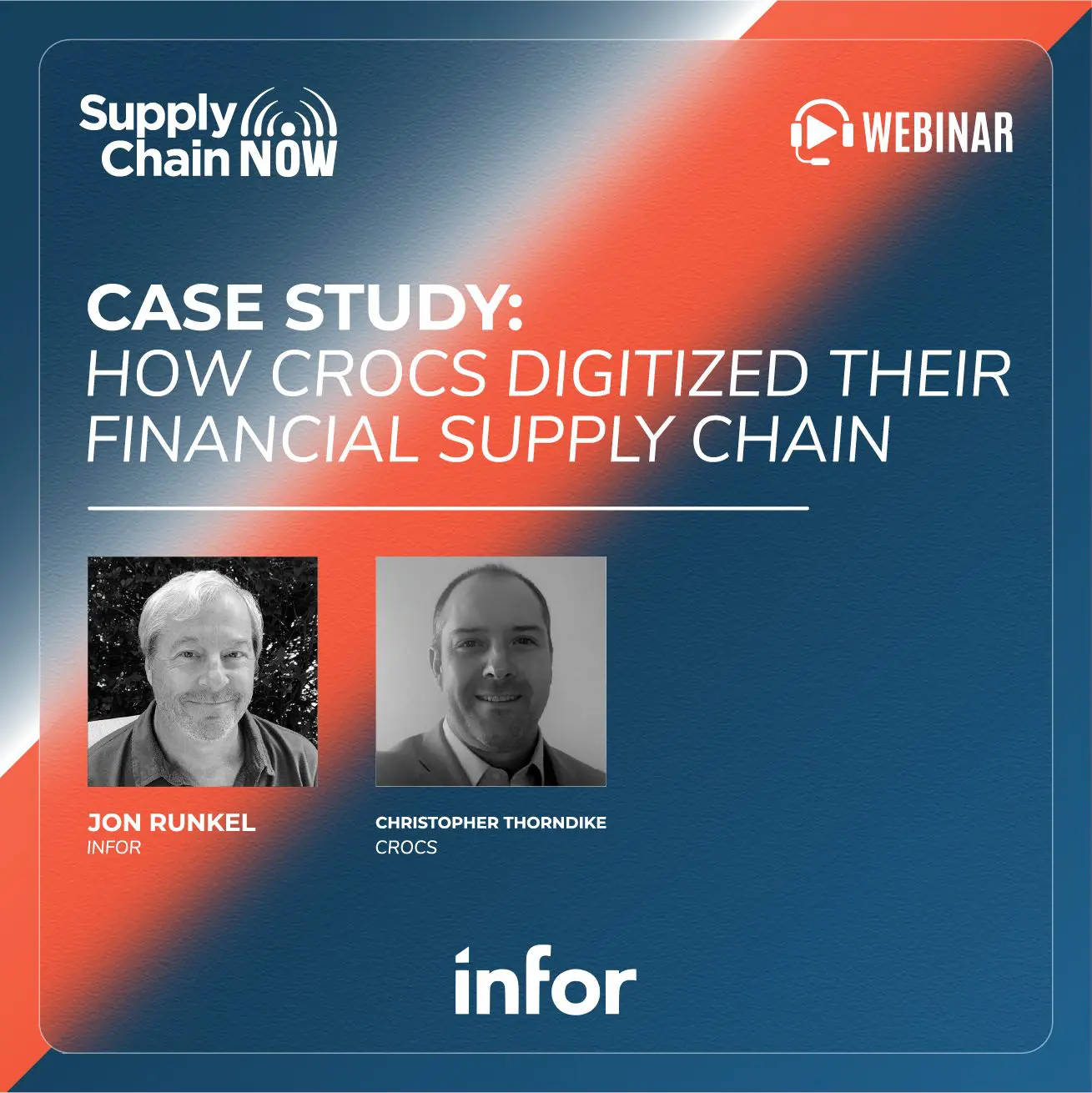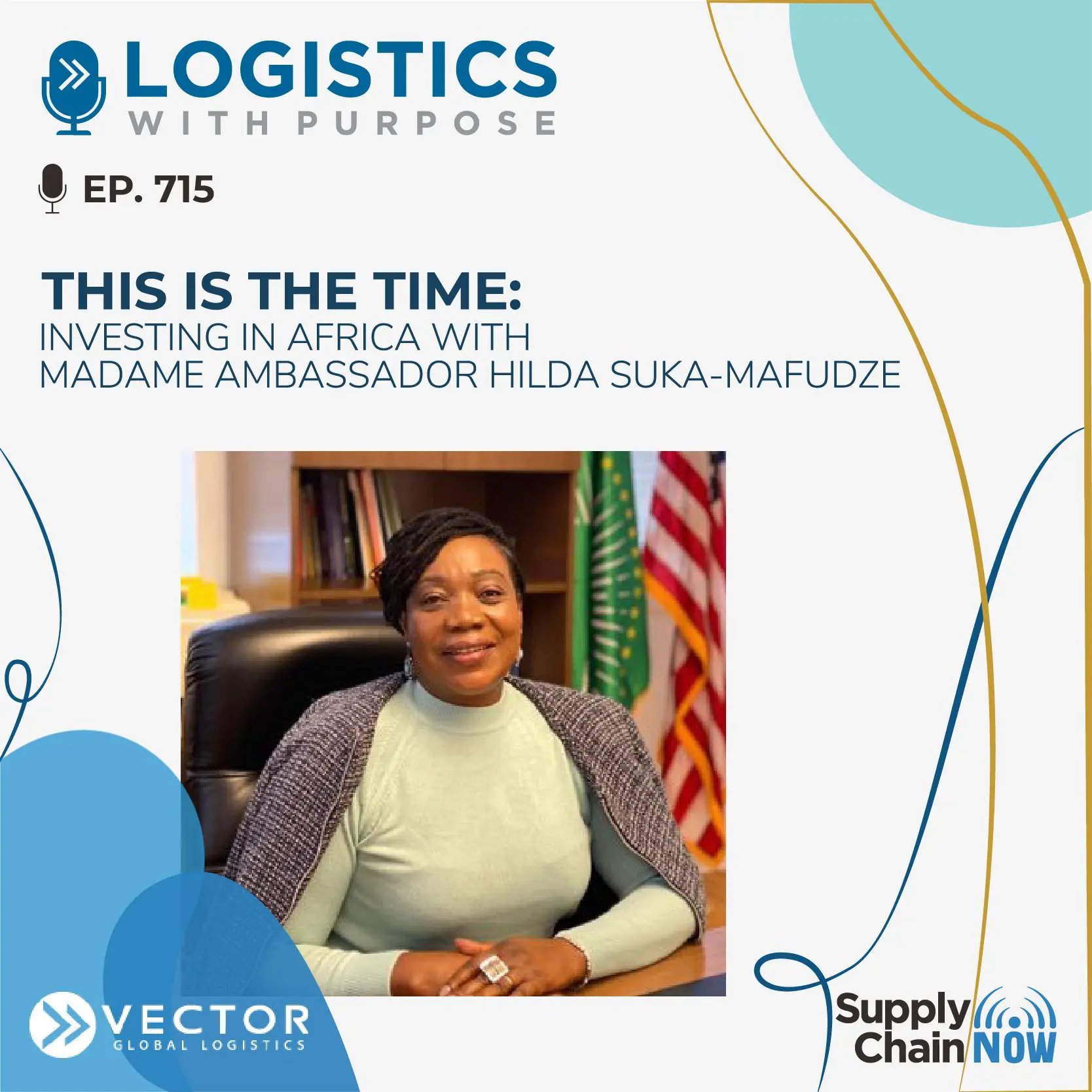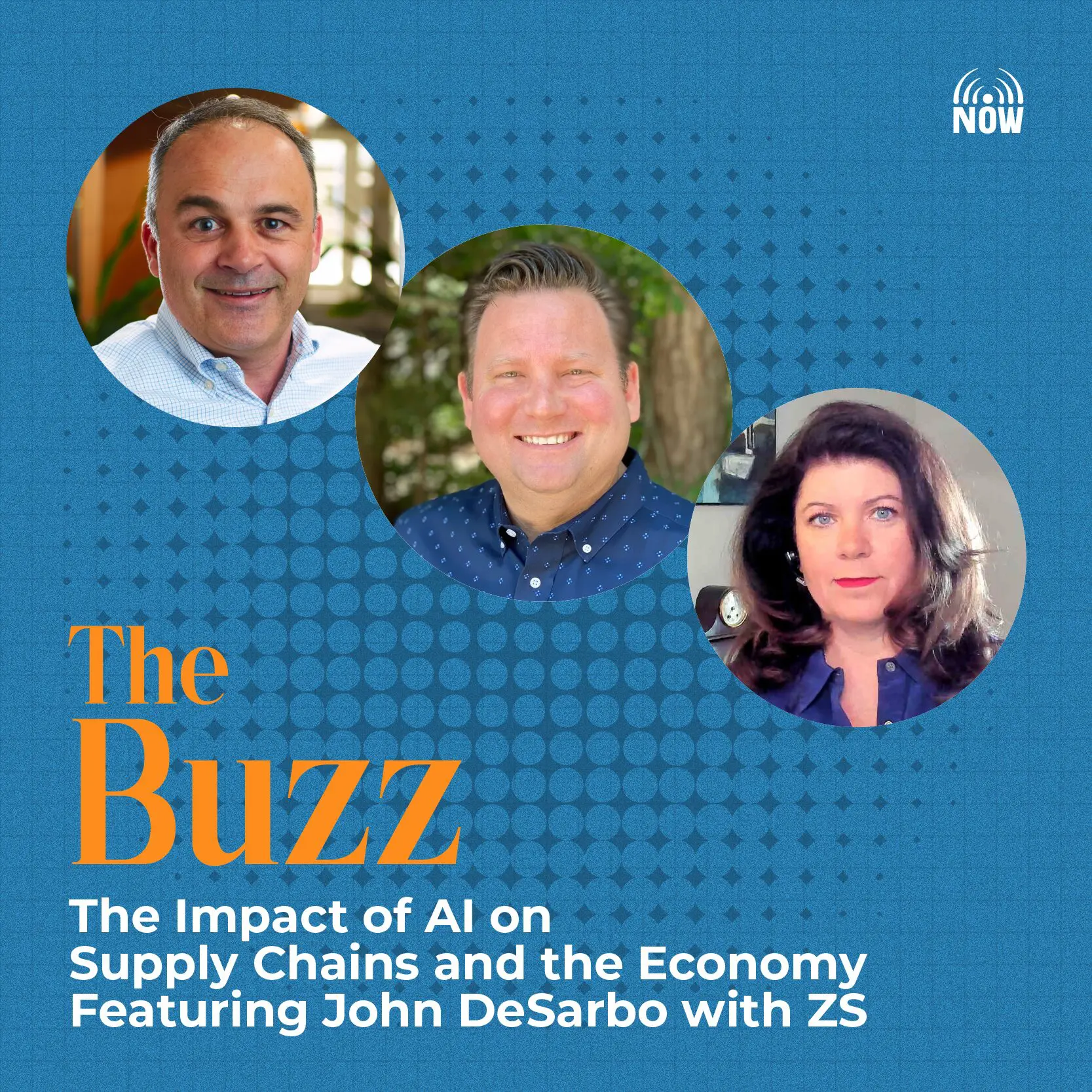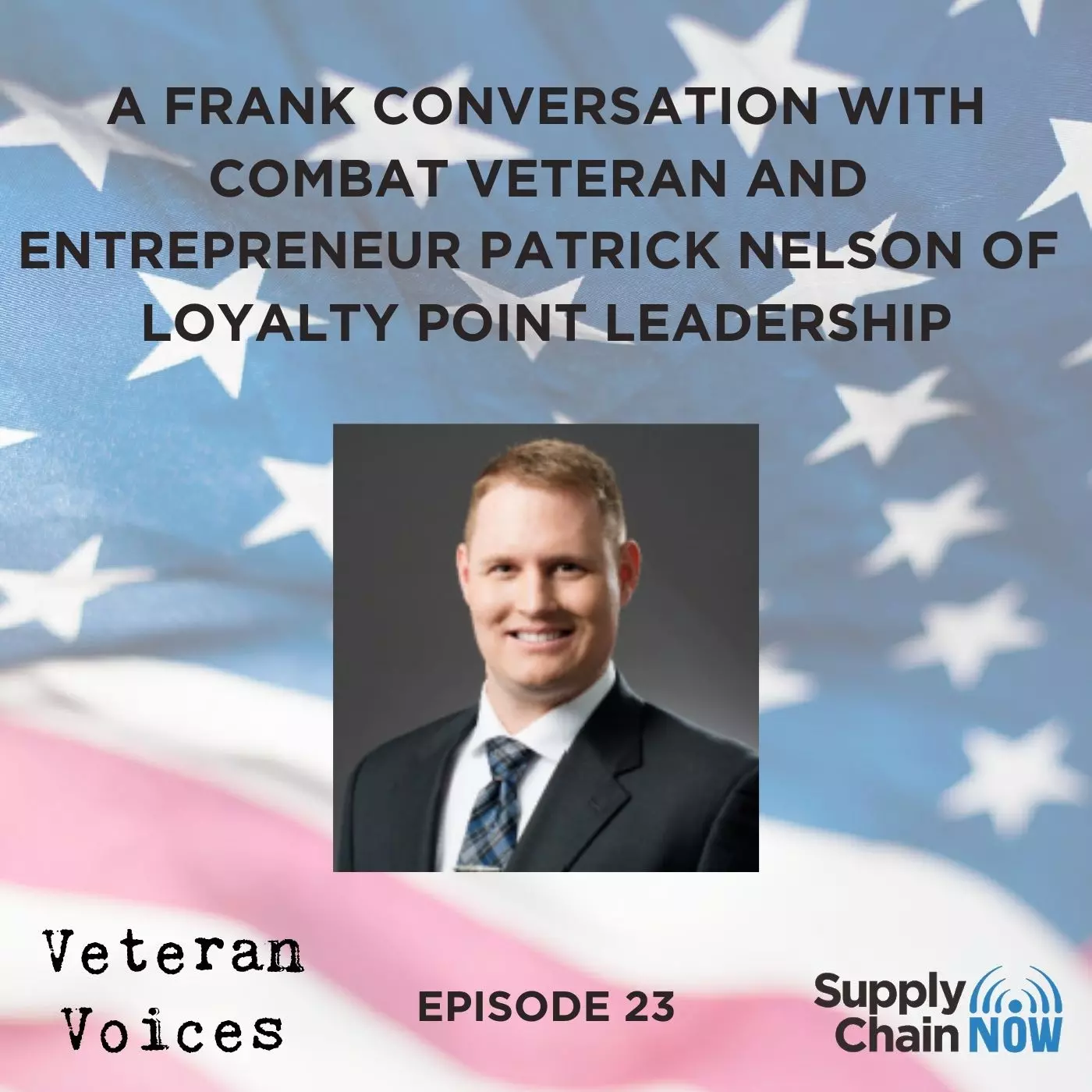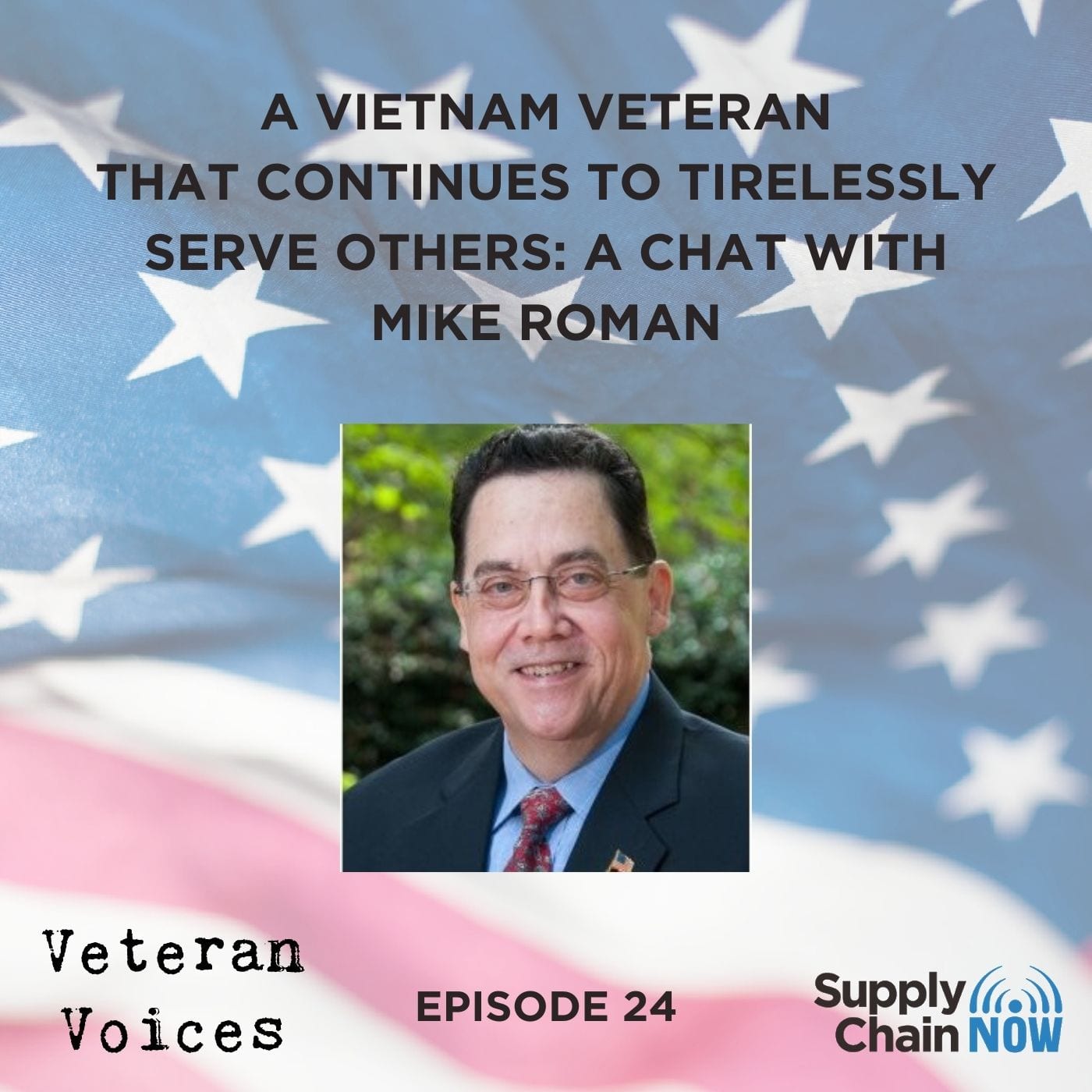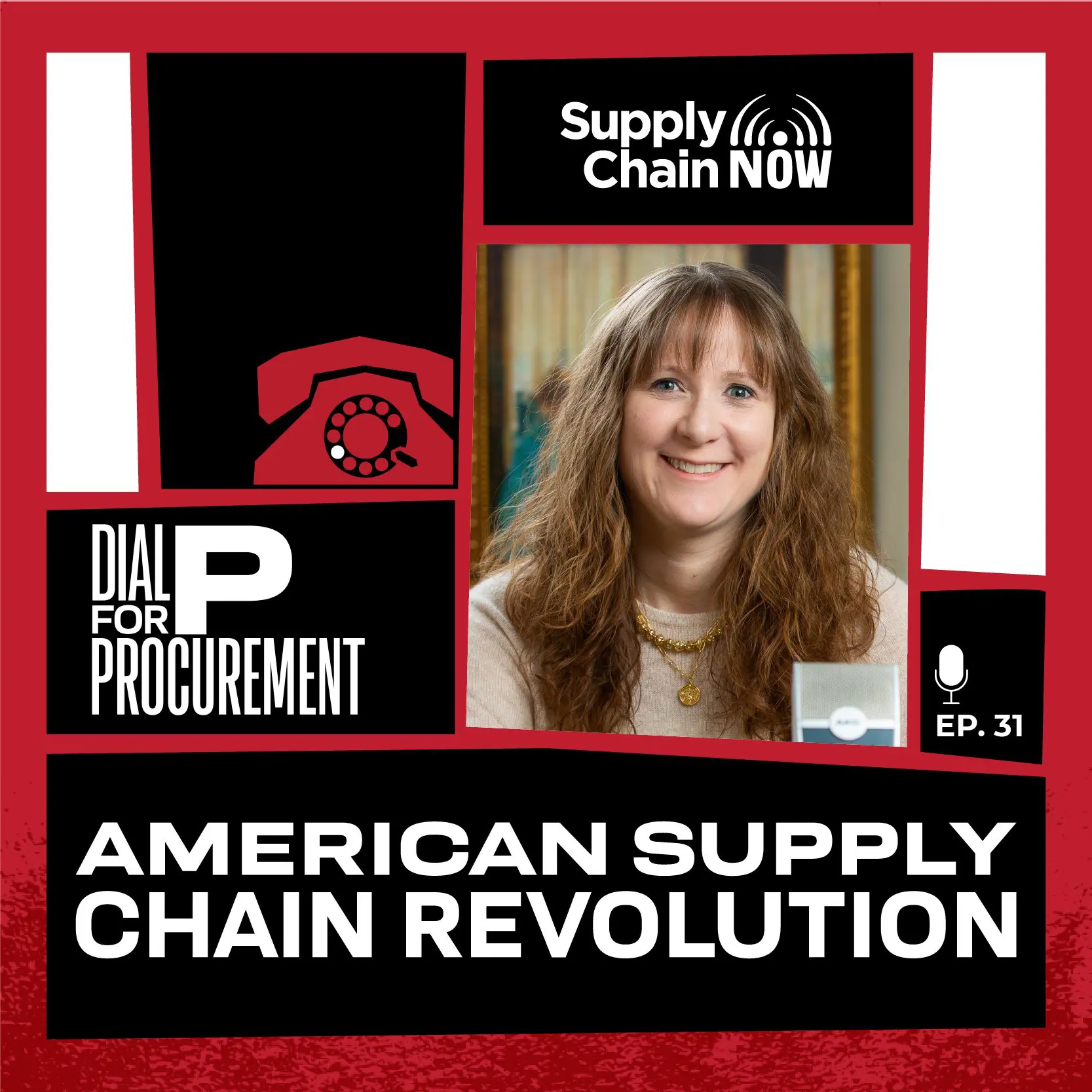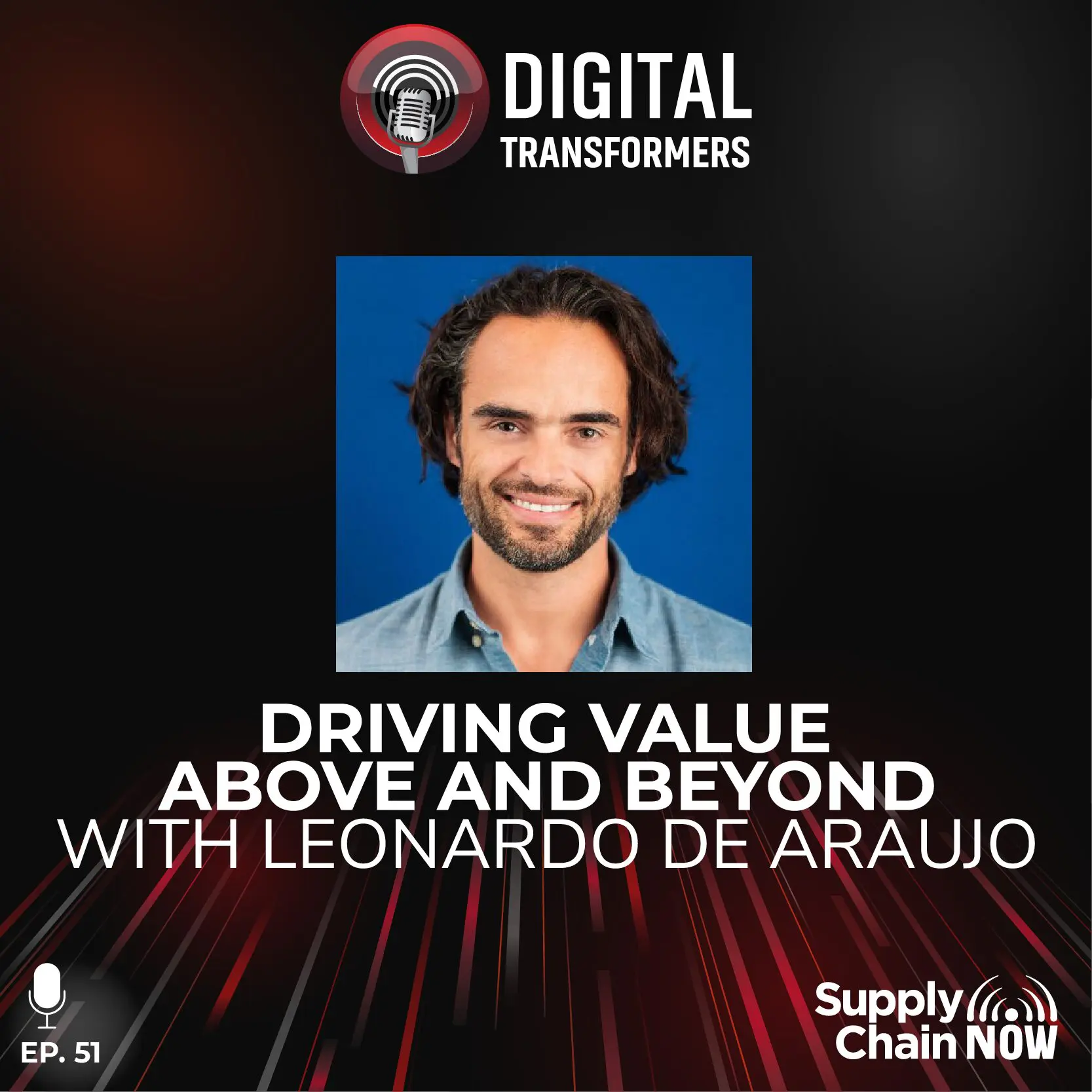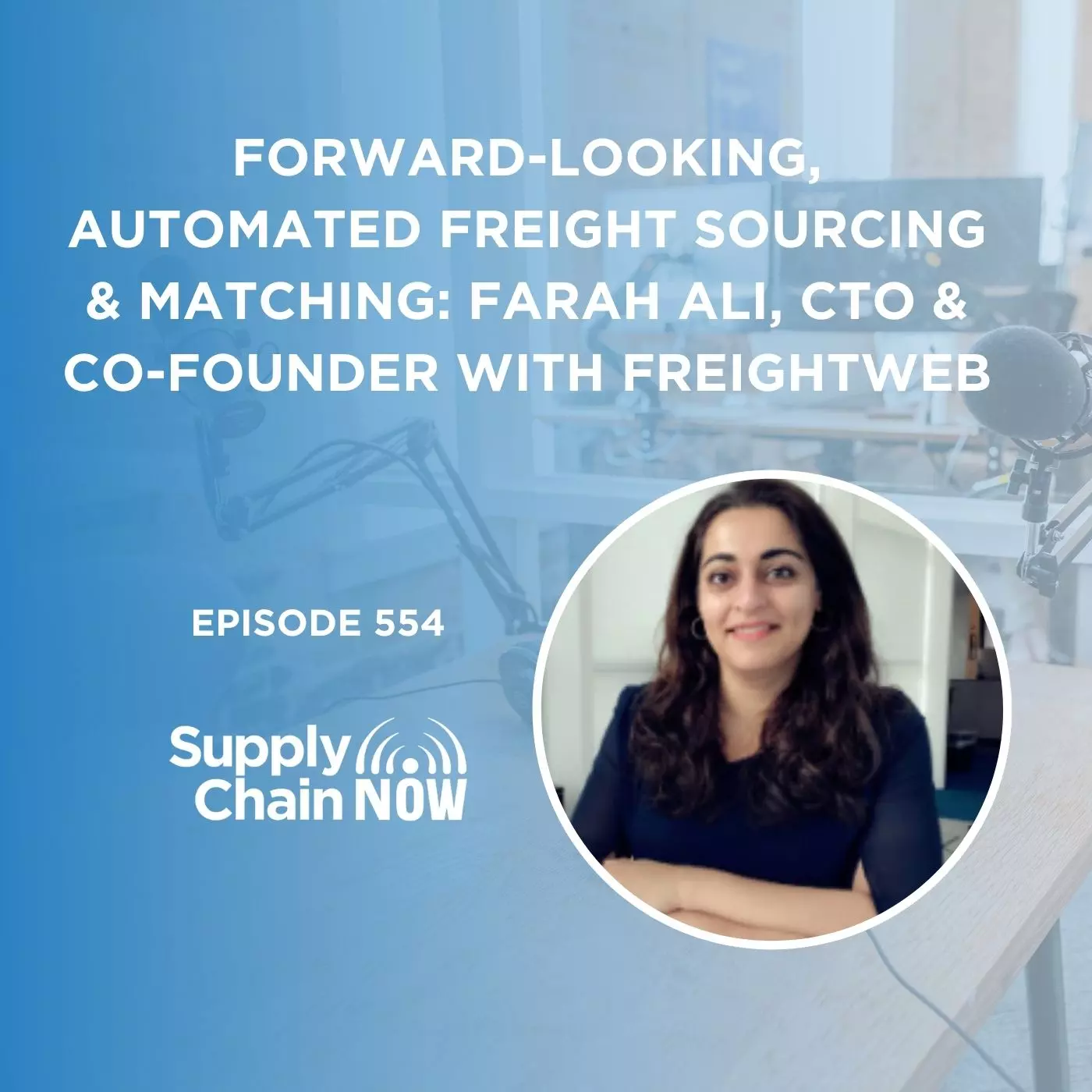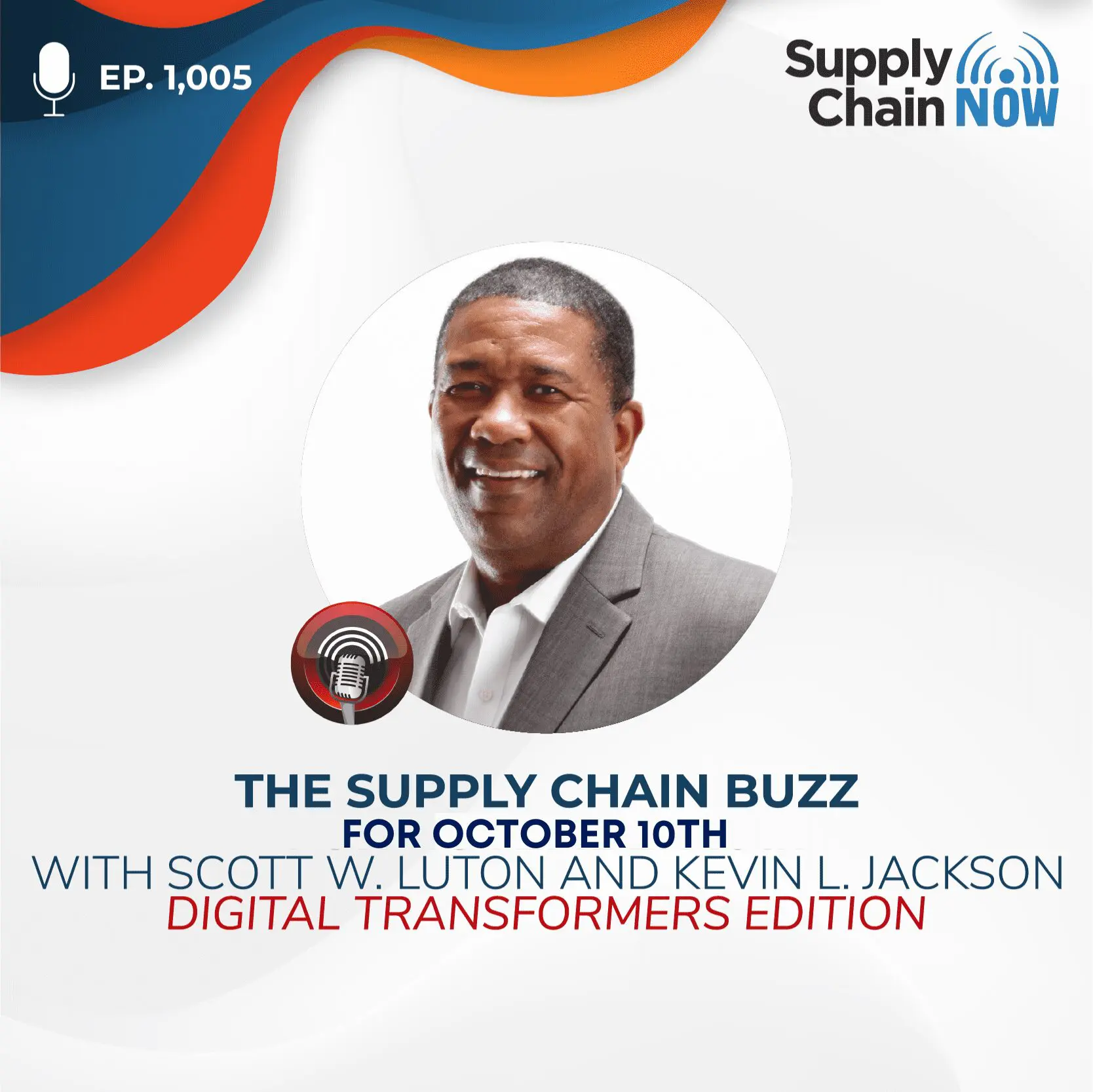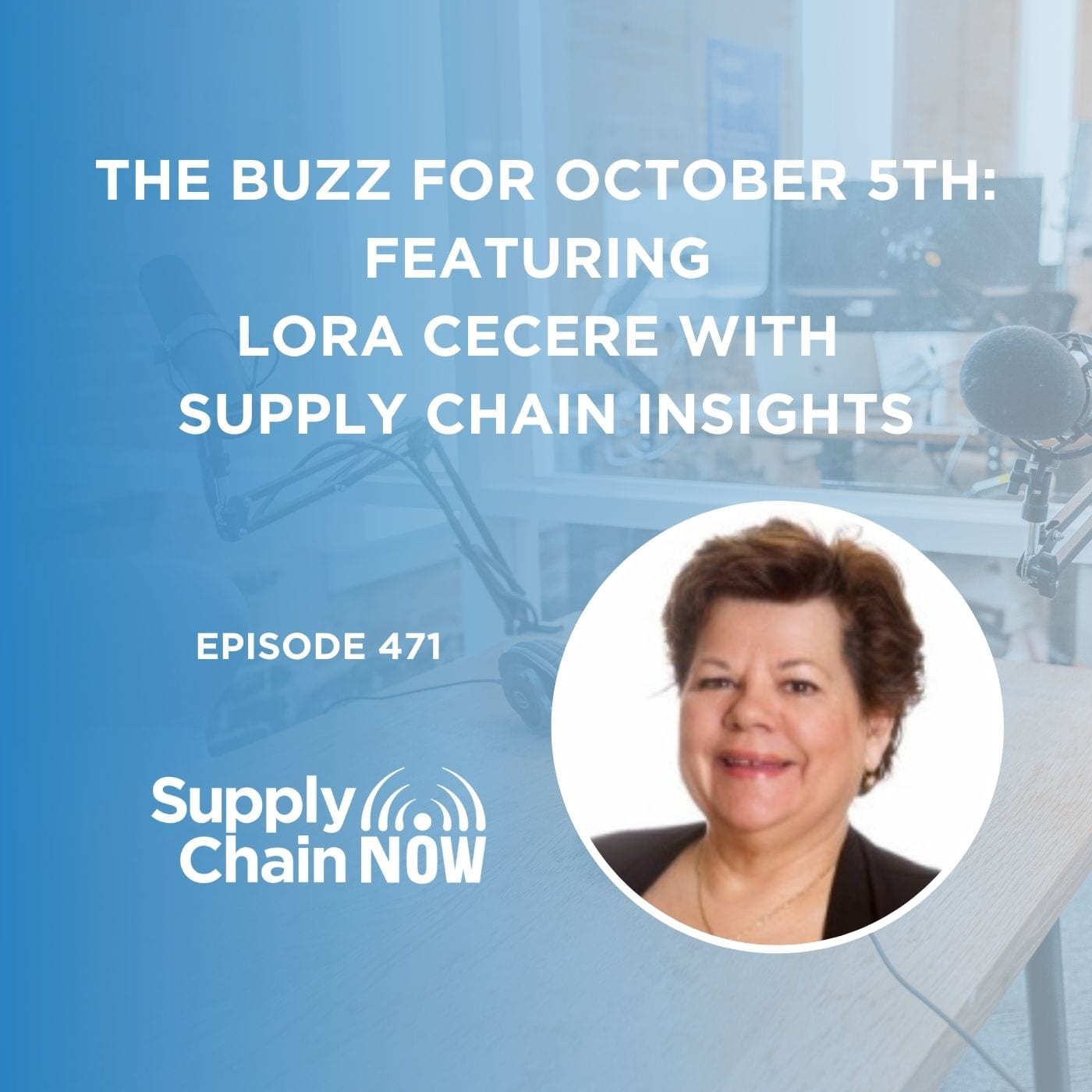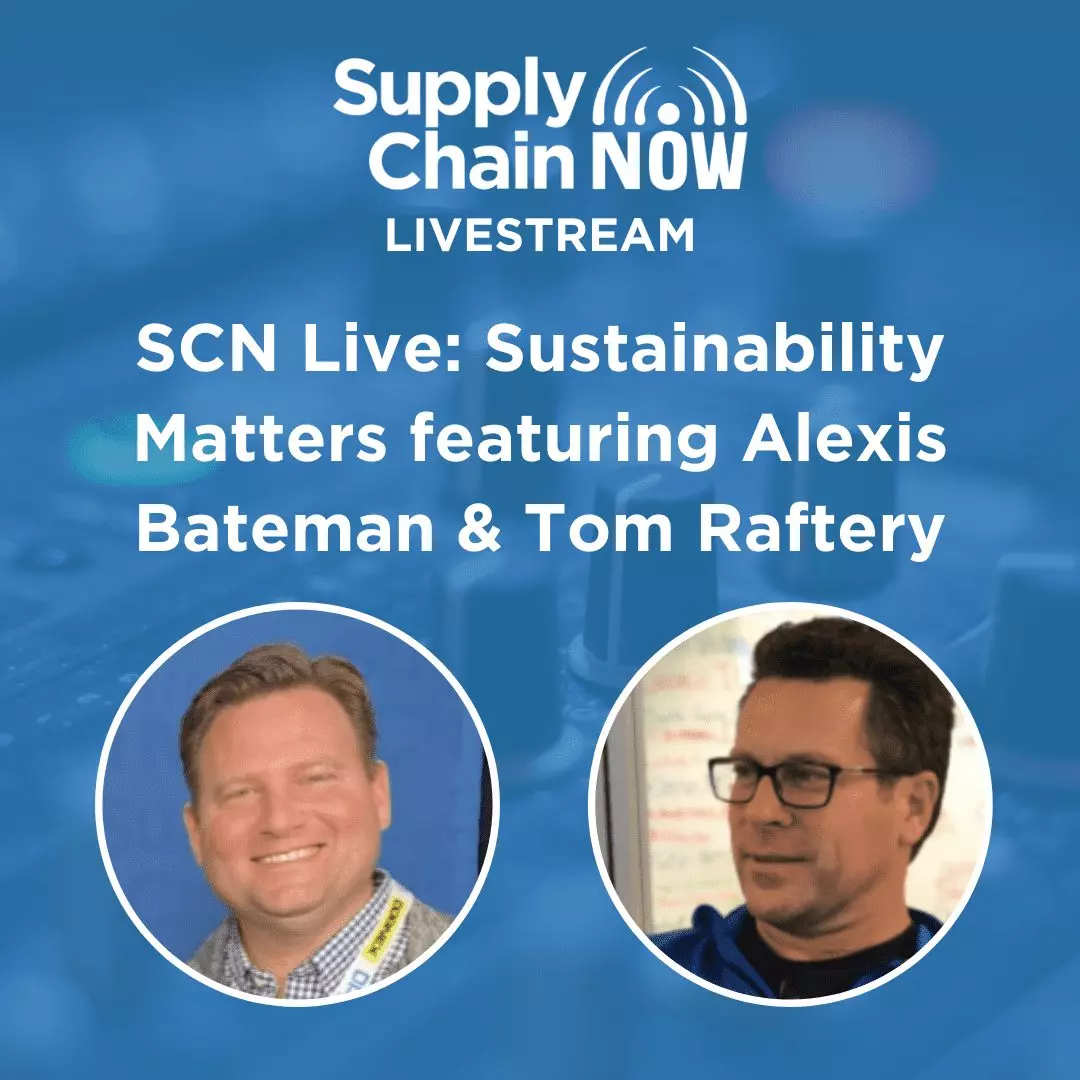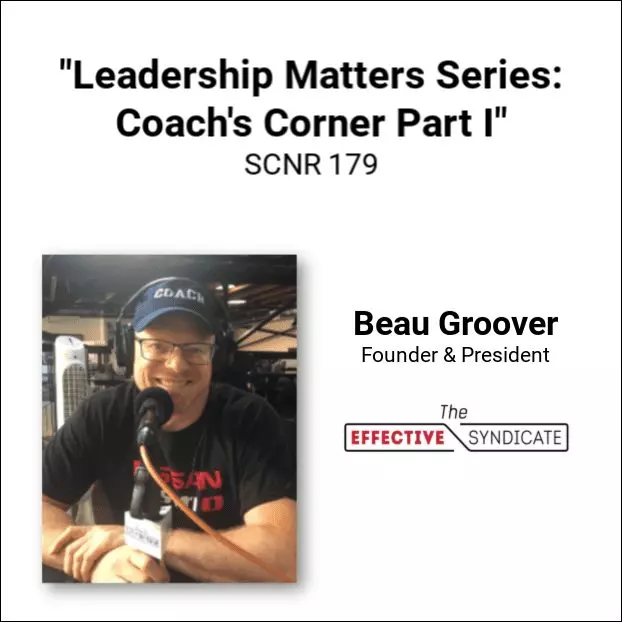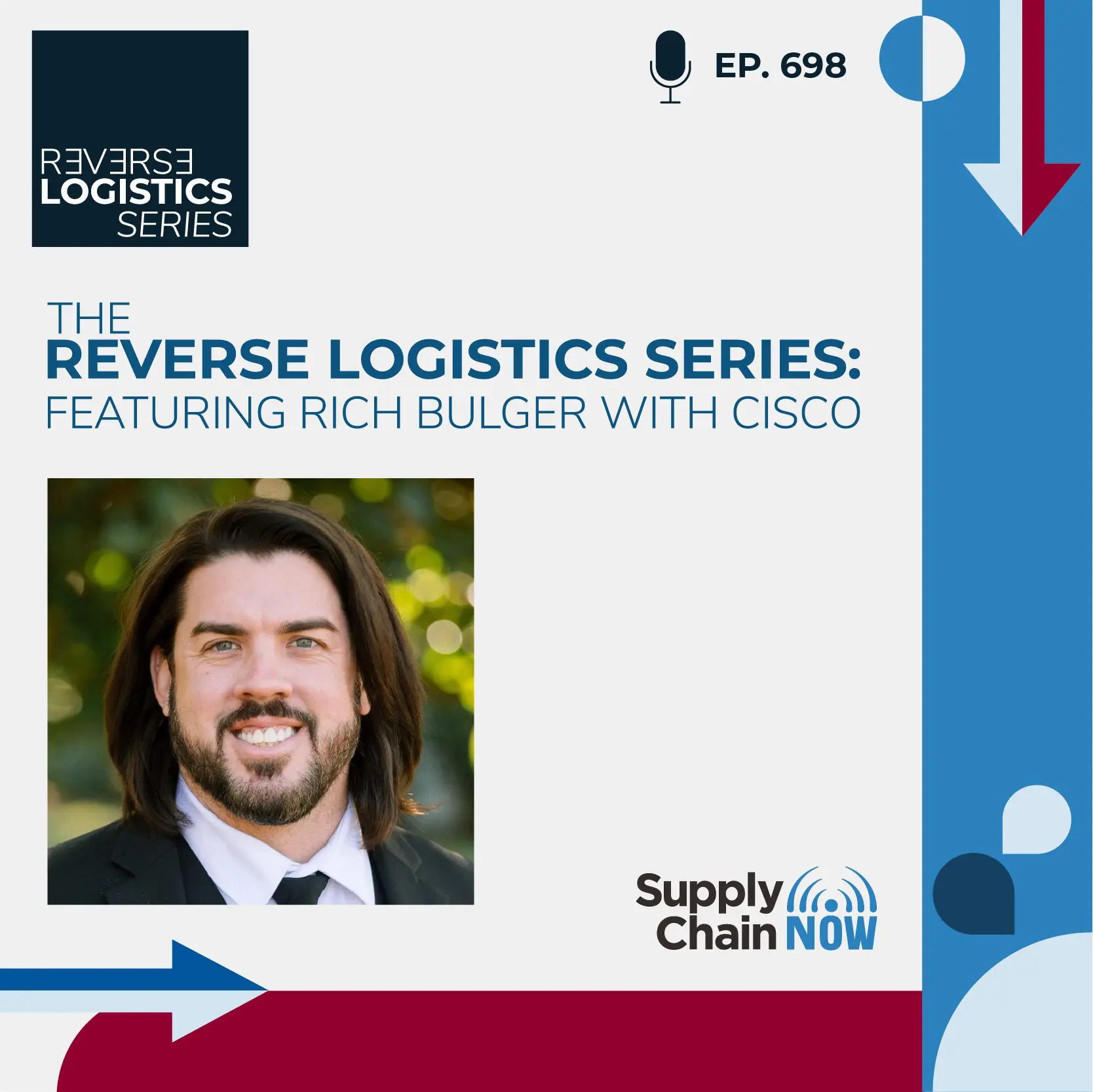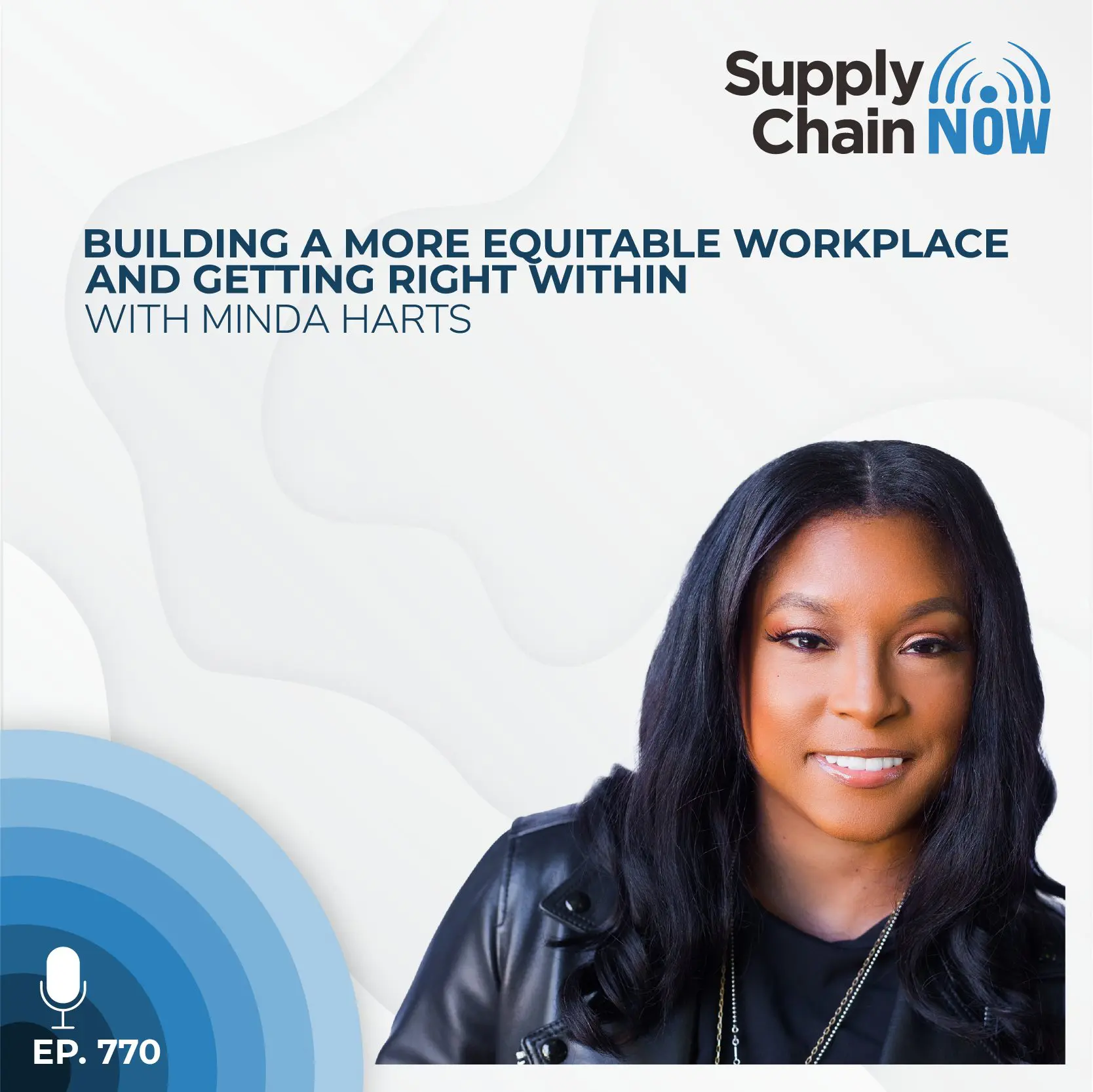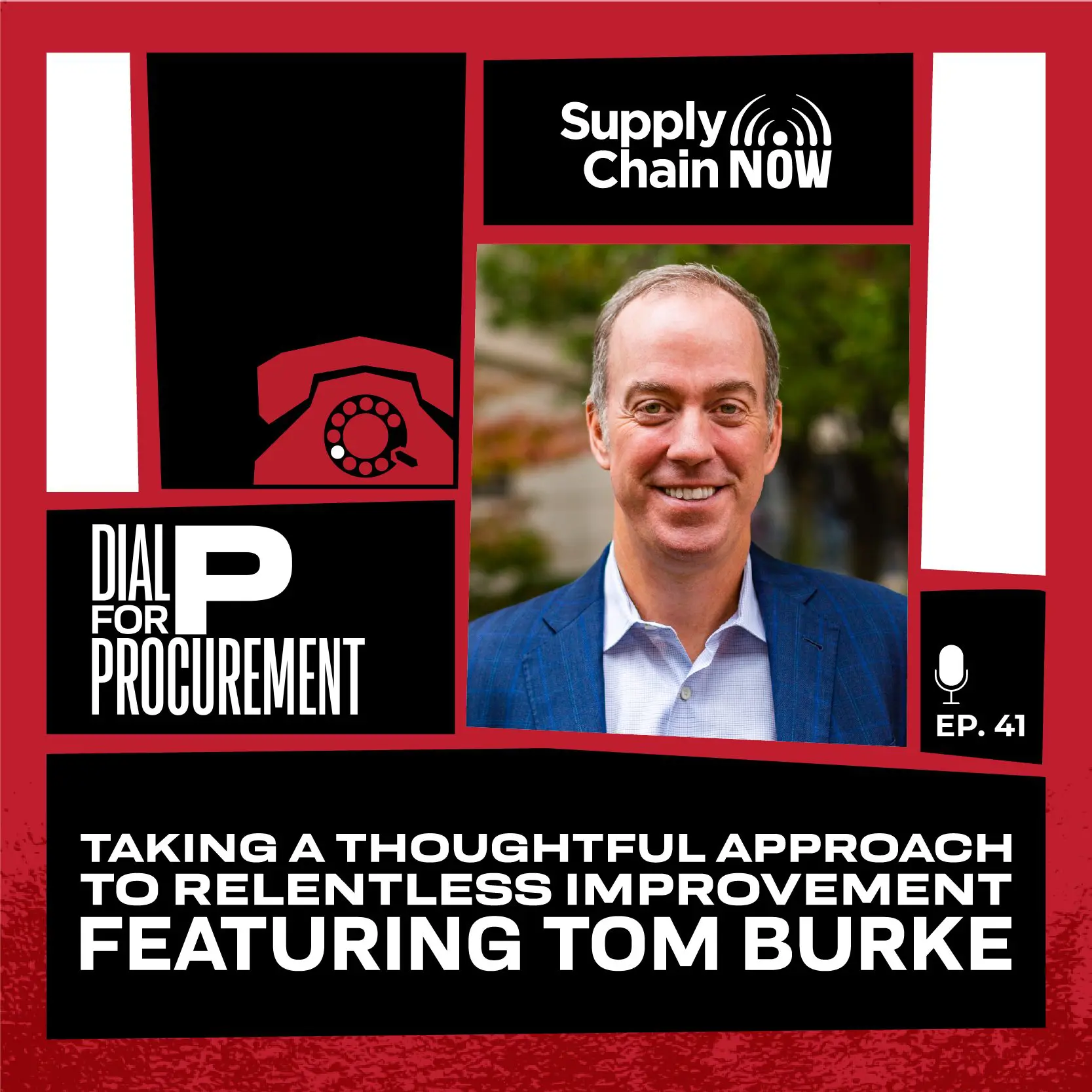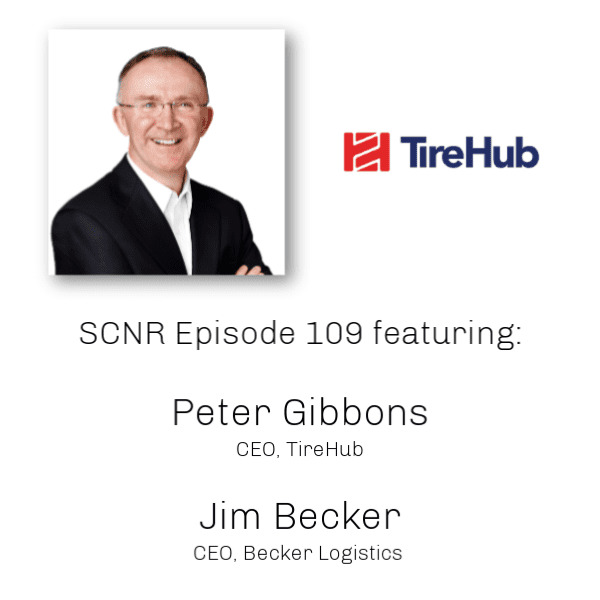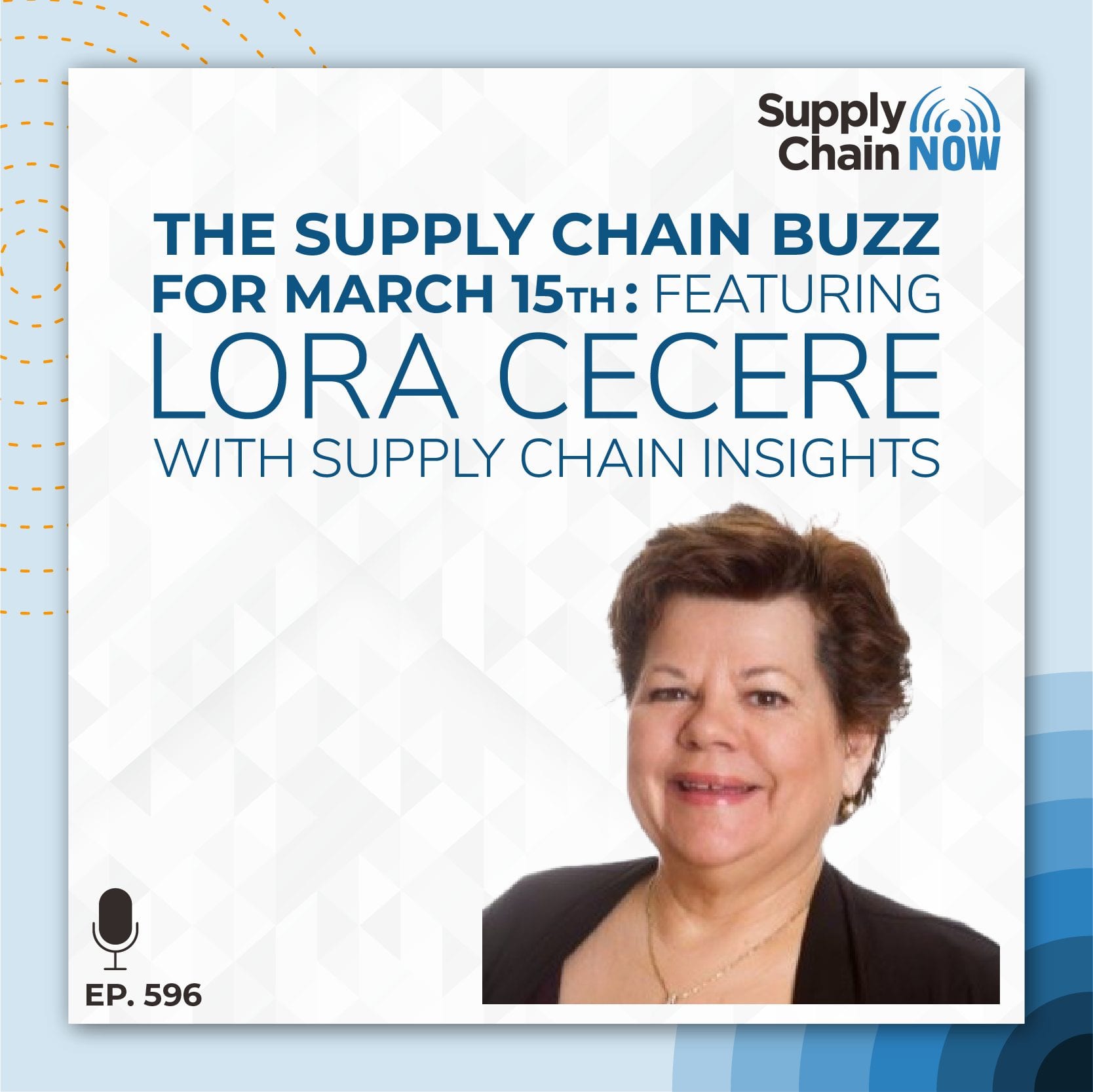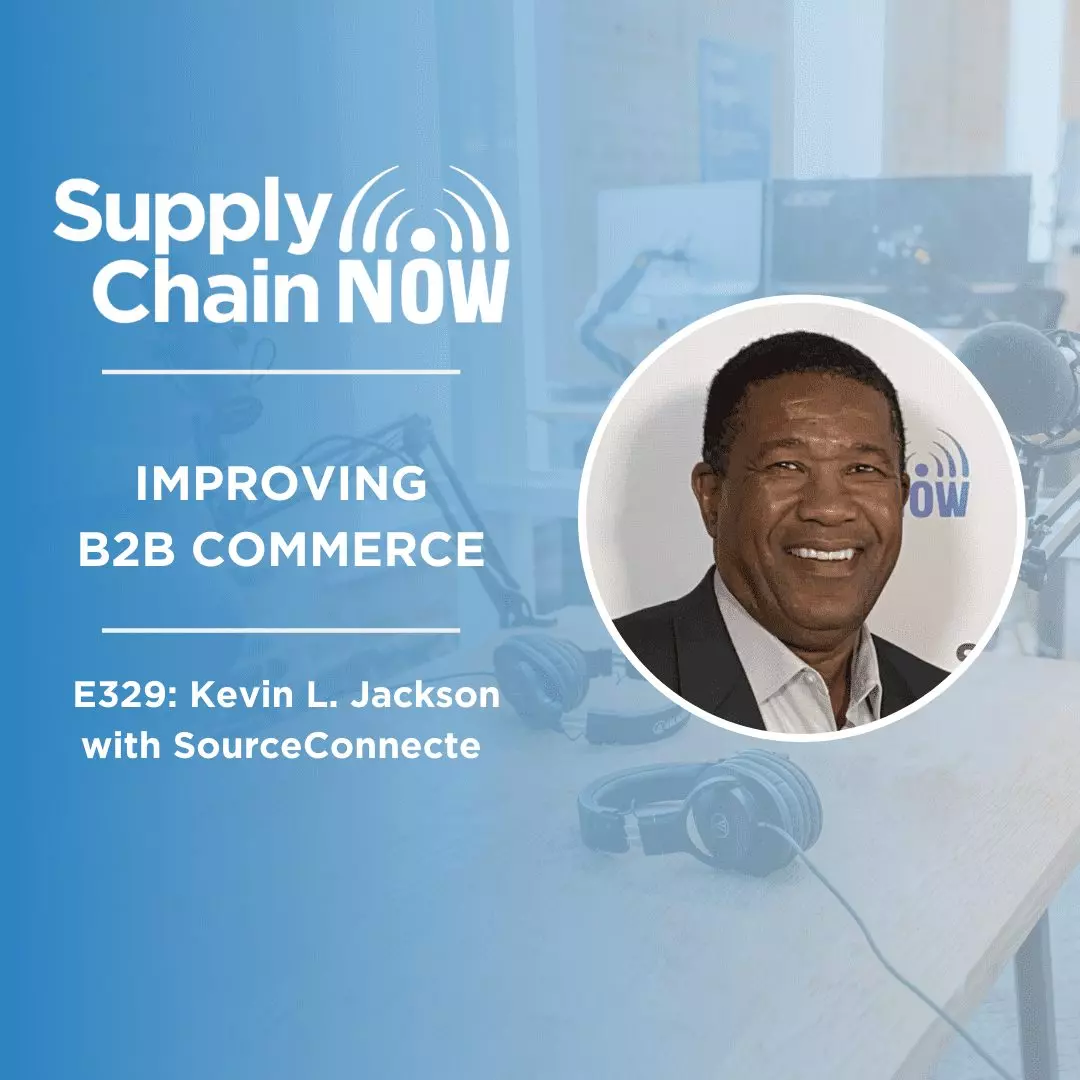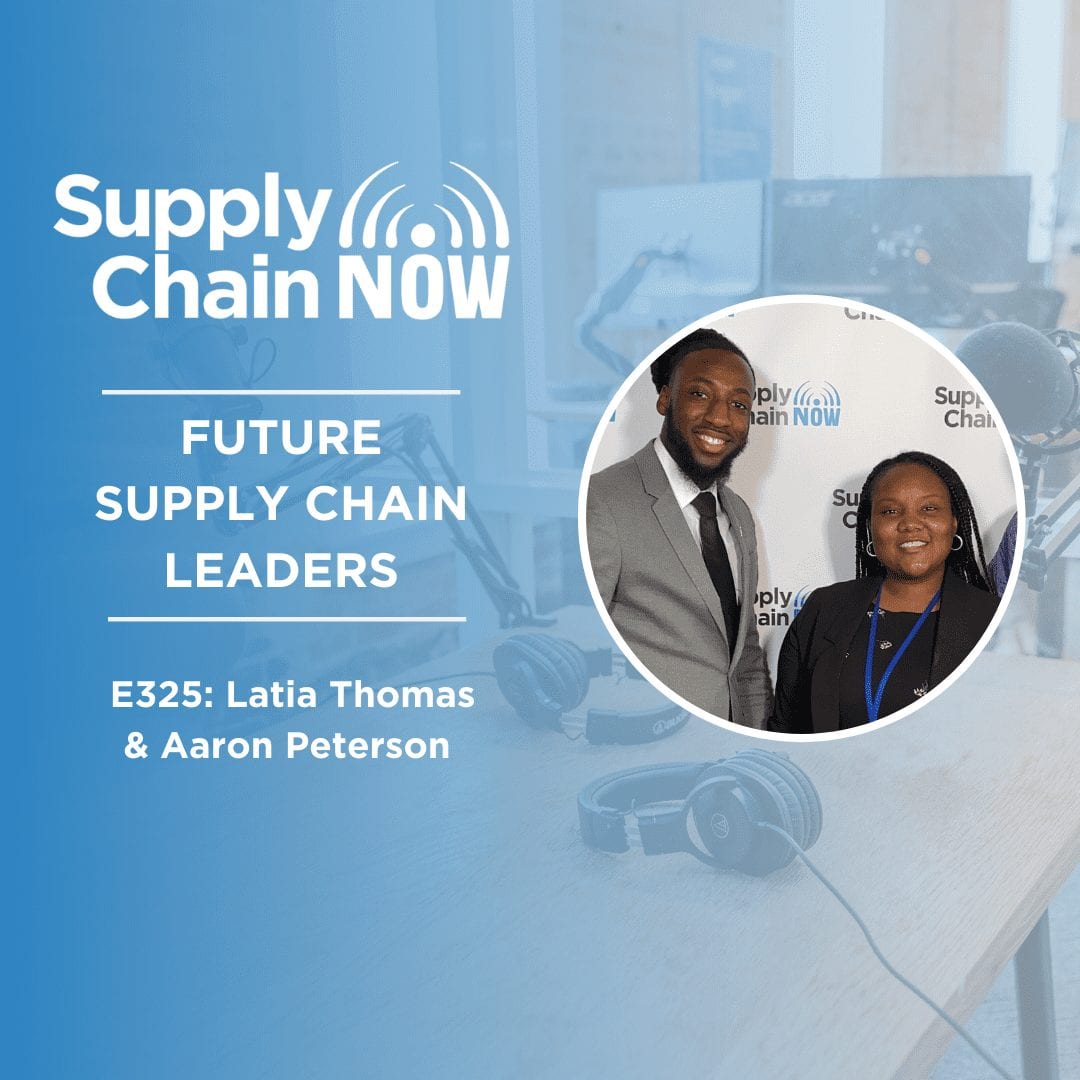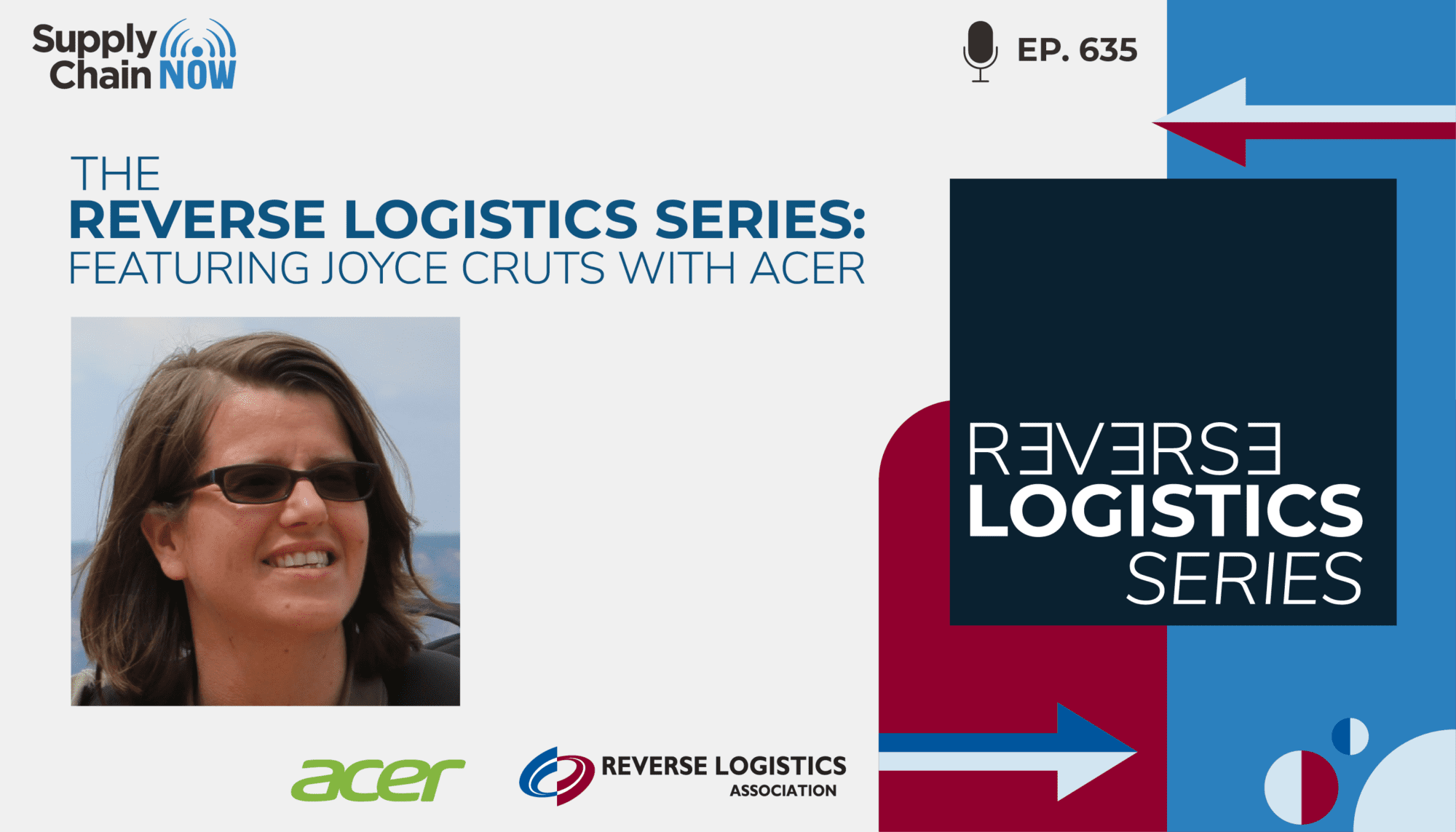
Episode Summary
“If you look at sales alone, not considering returns, you are missing a piece of it because any customer that is returning an item would like to have the money back. You’re losing sales at that time and you could be losing that customer for future sales.”
– Joyce Cruts, VP of Supply Chain & Operations for Acer America Corporation
As a large and growing segment of the consumer population begins to emphasize the desire for companies and consumer brands to act responsibly, the returns process – known as reverse logistics within the supply chain profession – has to become more sustainable as well. Even though the most cost-effective option is to dispose of an incorrect or unwanted item, companies are working to find ways to keep that material out of the waste stream.
Joyce Cruts is the VP of Supply Chain & Operations for Acer America Corporation. One of her passions is promoting supply chain sustainability initiatives. By reducing non-value-added processes and eliminating redundancies and inefficiencies, she is able to optimize the supply chain for social responsibility and promote the fiscal health of the company at the same time.
In this episode, Joyce tells Tony Sciarrotta, Executive Director of the Reverse Logistics Association, and Supply Chain Now Co-hosts Greg White and Scott Luton about:
· The multiple tiers of repurposing and reuse that make it possible to keep most materials out of landfills
· Options – including company provided videos – that help consumers make a better purchase up front, reducing the need for returns
· The many ways companies are experimenting with reselling returned product to keep their costs low and put objects to use
Episode Transcript
Scott Luton (00:00:32):
Good afternoon. Good Friday afternoon, Scott Luton, Greg white, with he right here at supply chain and welcome to today’s live stream, Greg, how are you doing? I am doing quite well. Scott, as a matter of fact, I have to tell you, I, I just really watched our little lead in sequence for the first time, really carefully. Is that pickles that they’re packaging in the beginning of that? I don’t know. Hey, we love pickles in the Luton household that may very well be pickles, kosher deal. Our favorite time pickle guy. Uh, I like them on barbecue sandwiches and, and burgers, but I don’t like I, don’t not a huge pickle fan. Oh hot dogs, of course, which we had that discussion. I don’t know if you recall that with Mike Griswold, the great micros Walden, what you put on a hot dog we’ve tackled that burning conversation, burning chain topics, like what to put on your hot, hot dog.
Scott Luton (00:01:28):
Right? But today it’s all about continuing our reverse logistics series with our friends at the reverse logistics association. We have not only a home run guest is always repeat guests with Tony Sciarrota. We’ve got a great, uh, PR uh, leader practitioner, executive practitioner, uh, from the, um, ICT industries. Does that sound about right Greg computer, computer electronics industry, perhaps that’s more accurate. We’re holding back the name until you make the official intro. Aren’t you? I am. How’d you, they’re going to know as soon as, as soon as you give the name, what industry, well, folks, as, as great as our live stream was yesterday, if you happen to tune in with Zucca and Jenny, uh, today’s enables wonderful today’s live stream is also going to be really, um, uh, I think, uh, very informative with lots and lots of been there, done that lessons learned.
Scott Luton (00:02:18):
So stay tuned for today’s conversation, but first Greg, we must, I T industry Tony. So Tony is from the green room. He’s given me tips. It industry’s the best way to put it. So thank you. Okay. So let’s share a couple of programming notes really quick. I want to add this to the stream here. So Greg, this has been a big week of content, big guests, big conversations, big issues, right? Issues of the day, which, which is par for the course here at supply chain. Now Charles Redding, CEO of MedShare. Now the livestream Greg was last week. I believe we published the replay on our podcast channels and this guy, man, we continue to get feedback from what Charles shared, huh?
Greg White (00:03:00):
Well, this was the topic of our, one of the topics of our team call for the whole company today. So to give you an idea of what kind of impact this one had, uh, yeah, definitely get eyes and ears on this incredible stories, some great life lessons, um, yeah, really impressive stuff.
Scott Luton (00:03:17):
And med shares, making it happen, helping lots of folks in need. So love what they’re doing at MedShare. So that was, uh, what we published, I believe yesterday. And then earlier today we published a replay of our Dao P for procurement series and Kelly Barner. Greg, I think you tuned in at least in the cheap seats, perhaps she was quite a quarterback as she navigated this conversation between co-write cozy with Gartner and fill out of sin from art to procurement, a ton of, of procurement insights and POV on that one.
Greg White (00:03:48):
I learn something every single time I tuned into one of these procurement things. I really knew, knew not a lot about procurement coming in, even though I was in purchasing, which sounds like the same thing. It gives you a really clear idea of how siloed those, those, um, entities are within a company. And I thought I had a grasp on it, but every single time I tune into one of these things, I learned just a little something more
Scott Luton (00:04:12):
Agreed, excellent point. And, and, uh, there’s not a better person to learn from, from Kelly Barner and her friends, especially when it comes all things procurement. So you’ll check out that wherever your podcast from search for supply chain out and subscribe for free, with a money back guarantee for you with the money back guarantee. All right. So let’s say look to a few folks before we bring Joyce and Tony into this conversation, you are going to enjoy. We had a great time just in a warm up conversation, uh, um, talking with both of them. So, so stay tuned for a great, great discussion, but let’s say lo to a few folks, Diego Espinosa is tuned is ready to go, right? Uh, via LinkedIn. Great to see here, Diego. Hey sure. Nevus. Great to have you here from India. Um, you know, there’s a ton of, of, um, uh, really tough and challenging and depressing stories playing out across the country of India.
Scott Luton (00:05:09):
Our hearts and prayers are with you. Uh, we’re hoping to feature, um, leaders from India next week and livestreams are really helped paint a picture of what’s going on. And more importantly, how folks can help. Uh, I saw earlier today where Salesforce was making a huge commitment to send, um, millions and millions of dollars of, of resources to India. And then we got to enlist thereby as help. So hope this finds you and your family well, and, uh, we’re with you. So, uh, all right. Muhammad is also with this field, LinkedIn. Great to see you here. Muhammad Shannon’s back. Shannon was making some waves. Uh, was it yesterday, Greg? Yes.
Greg White (00:05:43):
Yeah. Yeah. Full of good comments.
Scott Luton (00:05:46):
Agreed, Peter. Beaujolais all right, Peter, you can’t go down the food. I’m starving. He says good Friday afternoon. Oh, Ooh. Pickles on a chicken sandwich. Um, hope this finds you. Well, who’s this Greg, when your face.
Greg White (00:06:00):
Yeah, she is. Who really runs our LA I think Tony Wilford.
Scott Luton (00:06:06):
Oh, well
Greg White (00:06:08):
She ha she always contributes. When, when we’re talking about food or kids, she was also contributing yesterday, right. That the story of what her daughter wants to be teacher police officer, I think farmer and cowboy, something like that. And she said yes to all of those things.
Scott Luton (00:06:26):
She sure did. I forgotten about that. That’s a great comment, Felicia, but I’m disappointed, Greg. Usually when Felicia hits our live stream, her entire name rolls off your tongue and magical fast. Yeah. Felicia.
Greg White (00:06:40):
Well, Justin now’s in there for me to be able to pronounce it.
Scott Luton (00:06:43):
Yes. Well, I think you enjoy pronouncing her name as much as your friend Diego and you should have been, the price is right. Announcer. You’re really good at it. Um, let’s see. Who else is here with us today? Hey, Vinay. Great to see ya. You’re back with us. I think you were, you had joined us on a couple of earlier sessions. Great to see here today. And it is going to be, uh, um, a common and a unique topic here today. I think, I think common in reverse reverse logistics and returns, which we talk about a lot with our friends, our lay, but unique in terms of how Joyce is going to tackle it from, from her organization and industry
Greg White (00:07:19):
A lot more prominent. And finally, right.
Scott Luton (00:07:23):
Thankfully is right. A great point. Greg Simon. Great googly. Mooglie it’s nearly may. People were going to have to get that meme ready to go for Monday, Greg, with, uh, Justin Timberlake. Are you ready? It’s my dead right on top. Culichi via YouTube from Nigeria. Great to have you here with us today, Khaleeji, uh, Harshad via LinkedIn is tuned in great to have your T squared his back. He holds down the Fort force at YouTube. Just what I need for my 44th circle. A good smorgasbord on reverse logistics. Is that being Greg is today’s his birthday. Is that what he’s implying?
Greg White (00:08:01):
I don’t know. Is that what it means? 44th circle is, could it be his birthday? Well, he’s going to have to tell us, you have to clue us into your code. Oh, wait, wait a minute. Hold on. Oh, wait, hold on hold please. Hold I moved. There it is. Is that a clue as a clue,
Scott Luton (00:08:18):
Happy birthday to squirt. Yeah. May you get extra nourishment today? And then finally, I know we have a few folks we can’t get to, but, uh, Annie Hyder is with us via LinkedIn. Looking forward to this discussion. She shares I’m on the reconciliation side of reverse logistics, looking forward to the conversation. Excellent. That’s a challenge too. It is a challenge. It is. All right. So Greg and welcome everybody. And we want you all to get your, your voice and your POV ready, because we love hearing your comments on the conversation that you hear here today. We’re going to try to share as much of that as we can. Okay. So Greg, we’ve set a low we’ve shared some corny we’ve said hello to folks we’ve shared programming notes. I think our work prior to the guests is all done. Is that right? I believe that it is.
Greg White (00:09:02):
Is Scott. Uh, yes. I think we should press forward at this point. Let me check. Let me check the guidebook.
Scott Luton (00:09:10):
Oh yes. Wonderful. Well, let’s walk him in on that note. Our guests here today, our wonderful guests, Joyce Cruts vice president of supply chain operations with Acer America corporation and the one and only Tony Sciarrotta executive director with the reverse logistics association. Hello?
Greg White (00:09:28):
Because I had to do your walkout song with the swoosh. Got me. Tony tried to get there. Didn’t you?
Scott Luton (00:09:33):
The swoosh waits for no one as we’ve learned around here. So, uh, but Joyce and Tony, we really enjoyed our pre-show conversation, Greg and I and the whole gang did and welcome to supply chain now and tea and the latest episode of our reverse logistics series. So how are we doing? Very good. We’re doing great. And Joyce, you are welcome board. Indeed. You’re on the West coast out in beautiful San Jose. I bet. I bet it’s beautiful out there. And, and Tony you’re, you’re a fellow Atlanta. That’s right. So let’s start right there. Um, uh, we’ve enjoyed Greg. We’ve enjoyed beautiful Greg and Tony wonderful weather here lately. The last couple of weeks, uh, he’s been crisp in the mornings for the most part and it hadn’t gotten too hot yet. Right? 147 degrees is right around the corner come June and July. And I’m only exaggerating by a couple degree points, unfortunately. But, um, so Joyce, I bet it’s gorgeous out your neck of the woods. What do you like to do typically in non pandemic years? You know, w w where do you like to spend your time when you get outside?
Joyce Cruts (00:10:37):
We go outside. It’s hiking because it’s so beautiful here in California, hiking trails enough, um, wine tasting, of course, California wine tasting goes together. Some gardening and the academic year has helped us a lot. We had our supermarket back in the yard.
Greg White (00:11:02):
Maybe Scott, you could get some tips from Joyce on gardening,
Scott Luton (00:11:06):
Reading my mind, Greg. It’s amazing how well you can do that. Um, yes. I need to get some best practices from, from you, from you joy we’re slowly but surely building a garden in our backyard. One other thing about Joyce that we’re not gonna build to dive into no pun intended.
Greg White (00:11:22):
Oh, he did it. He went there
Scott Luton (00:11:26):
Is Joyce is, uh, she participated in the youth Olympics, uh, and was a semi-professional swimmer, uh, champion swimmer. Uh, so next time, Joyce, when you come back, you’ll have to share some stories from, from those ventures. Great to have you
Joyce Cruts (00:11:39):
Here today. Thank you.
Scott Luton (00:11:41):
All right. So Tony, welcome back. Uh, one of our favorite series here, because as you have stated, the reverse logistics and returns industry never gets enough attention, but before we get into the work,
Tony Sciarrotta (00:11:54):
The heavy lifting, what are you doing with your time outside in this gorgeous weather, getting ready for outdoor music festivals and, uh, trips to Nashville so that the city has woken up and there’s music and, uh, maybe even make it to new Orleans again. So just getting outdoors, as Joyce said, is, uh, is, is great. And the CDC now tells us we don’t have to wear masks outside. That was great news. Wasn’t it? Are you kidding me? Um, so, uh, uh, you know, th th the outdoor stuff, and by the way, uh, local boys here, we’ve got, uh, a good farmer’s market going on in Alpharetta. So if you’re a busy tomorrow, if you’re open tomorrow morning, I can meet you there at the, um, maybe the hot dog stand high, and we can see what we were just talking about. Hot dogs and Nichols.
Scott Luton (00:12:47):
Um, one quick comment. Uh, so kidding aside, as we dive into, uh, the kind of the center plate content, before I pass over to Mr. Greg white, I want to share this comment from Shannon. So, uh, she, she had referenced how a supply chain organization, I think in China was, was, was jumping into the fight to get, uh, supply oxygen concentrators, uh, to India. And I love the sentiment here. Love it. She says when supply chain is able to support world’s needs, anytime in, anywhere in the world, that I agree with that wholeheartedly. And, you know, the, the supply chain industry is truly going to get us drag us into the post pandemic environment. So Shannon, great way to start the conversation. Okay. So from there, Greg, where do we go with Joyce and Tony next? Well, let’s figure out what it is that Joyce does for a living. Let’s start there. So titles are often not completely descriptive of what your role is every day. Joyce. So tell us a little bit about what you do at Acer.
Joyce Cruts (00:13:45):
It’s actually easier to say what I don’t do.
Greg White (00:13:50):
We can go that way.
Joyce Cruts (00:13:52):
Well, in supply chain and operations, what it means here for me is basically anything. What, what, what is needed to get a computer from the factory to the user and anything in between. So you can think about logistics, uh, customer expectations, um, how to do the fulfillment, uh, quality, et cetera. And that’s my responsibility. Do I do that alone? No. I have a perfect team that is really supporting me and that are relying on to, to make it all happen. And in the, in this last year, we thought we have seen it all, but everyday I still got a no surprise. Really? Yeah. It goes from being posed congestions to contain us falling off the ships. Uh, you name it, we have seen it all. So
Greg White (00:14:52):
That’s a great, that’s a great segue to what I was going to ask you next, which is what are the kind of three or four things that are impacting you and reverse logistics in general? I mean, tell, tell me about what’s real. You see really impacting the industry
Joyce Cruts (00:15:07):
Actually, uh, from our point of view, how we look at rehearsal Jessica, um, one of our key points is actually what, what is it that the ant user needs? What do they require from our products? That’s our, that’s our key focus. And that is what we try to measure, uh, and that you need data to, to, to be able to understand what it is, what should we improve? What, what new features to the users, what would they like to see? Right. That’s one of the key aspects. The aspects that we are focusing on is how do we get returns back quickly and what is actually wrong with it? Um, can we generate any data from it, uh, to support us again on the new designs and then what makes it, um, responsible for a company of our brands? What are we going to do with those units as soon as they come back? So you have the financial aspect to it will, how can we recover? Most of it, that’s one aspect to it. The other aspect, which is very important to us is how can we be sustainable? Meaning not only from a, what do we do with the products, but how can we protect mother earth? Uh, how can we protect the communities? What can we do basically to, to be social responsible, be responsible for the environment. So that’s really one of the keys. So we have three main aspects.
Greg White (00:16:47):
This is a really tough task for the computer industry, because the technology changes so fast, it’s constantly, you know, and it’s not just broken goods. It’s, it’s, I’m sitting here with two, seven year old servers back when we had servers. And I don’t have any idea what to do with them. Right. I know that there are places you can go that do that, but there are a lot of things that are less obvious. I’m rocking a couple of Acer monitors right here, Joyce, and matter of fact, so, and they’re doing a great job, so I don’t anticipate needing to return them anytime. Um, but, but it, you know, this particular industry I think is really, really challenging because the technology is changing so frequently. Um, so I, I love that you guys have that sustainability initiative, uh, you know, and I know that you, you also subscribed to Tony’s philosophy, which is build it better and inform the customer better when you sell it so that the stuff doesn’t come back, right. I, part of reverse logistics
Greg White (00:17:50):
Is avoiding reverse logistics.
Joyce Cruts (00:17:54):
Um, um, I remember when I met Tony the first time I have to say, he’s a very good mentor to me in the beginning, because I was new when I came to the United States. And I was really shocked from coming from Europe to the United States, seeing all these returns. And I was actually quite funny. I was in Costco and I saw a person returning a rice cooker, which was seven, eight years old. And I was really that’s possible here in the United States. I mean, sorry, I didn’t think about that. Right. Because I wasn’t living here. So I saw that I was like, that’s actually, I’m good. And then I was wondering, what are they going to do with those, uh, you know, products that they’re returning? And the first time I went to the show for returns, consumer returns, I met Tony and I asked him many, many questions because I wanted, I was thinking there should be a better way. And that was my journey, actually, that started how to tackle the returns, uh, that we are, that we have to deal with. The she’ll be a better way just to get them back and maybe refurbish and then sell them or destroy them. There was a better way. So I hear a lot of people was asking, how did you do it? It’s a long way to go. It doesn’t start overnight. You don’t have results within the next quarter. It will take a couple of years before you start seeing definite results.
Scott Luton (00:19:24):
So limit, let me chime in. If I can, I want to, I’m going to go all the way back upstream to something you shared early on Joyce and your commentary. And that is, uh, getting data on these returns. I spent time in retail, uh, in a couple of summer jobs for a, um, a department store. That’s no longer with us. And I can remember getting items back. And not only that we not get information, but, but management was not training us to take information. Uh, you know, and, and I, I can’t remember where, where we’d put things in. Certainly not where they went, but needless to say it didn’t, it didn’t make it back on, on shelves, Tony. So getting data on returns to talk to us, what are you seeing and how new of a, of a thought is that? And what are industry leaders doing to get that data that so that they can, they can optimize how the, those returns are used?
Tony Sciarrotta (00:20:11):
Well, this is a, this is a big box of a lot of things in it. And I, and I love Joyce. Thank you for mentioning that we started together. Um, I don’t consider myself a mentor. I consider myself lucky to find people like Joyce, who said, why did this stuff come back? If there’s nothing wrong with it? Okay, that’s the nightmare. Why does it come back when there’s nothing wrong with it? And if you’re in a supply chain world, honestly, you don’t, you almost don’t give a in some ways you don’t because your job is to move it. Not to stop it from moving, right? It’s move it fast, move it furious, move it quickly. And, and so one thinks about how did this, how did the returns happen? And unfortunately, Scott collecting data to Joyce’s point, you’re collecting it after the fact. And all, you know is 90% of the computers coming back had no technical problem.
Tony Sciarrotta (00:21:00):
Now we get into that whole technical problem versus ease of use usability, human factor engineers, world. That we’ve talked about way back when, but it’s relevant today because imagine supply chain geeks, all of us, if you could stop 10% of the returns from flowing back on trucks, you’d free up, right? You free up trucks, you free up trailers. You free up warehouse space. If we could just stop 10% of the loads, and you could do that. If you just put some practical notions in at the beginning, I love what Joyce said. The words are, make sure the customer’s getting what they need, not what you want to sell them, but that they’re getting what they need, because we did the surveys. We know that the people return things say 75% of the time, they say it, didn’t meet our expectations, you over promised and you didn’t deliver.
Tony Sciarrotta (00:21:51):
And that’s the worst you can do in the consumer world. Especially when you have retailers who I, I won’t pick on any names in particular, but the retailers are all forced. And especially the e-tailers, it’s a competitive sledgehammer now, right? The returns are, you have to make it easy for people. You may not like it, but you have to do it because everyone else is. So finding out at the beginning. And again, I loved the story of the one test that we did it at. And I can say Walmart, they’re on my board. So they’ll let me say this story. And this is a way back in the early days, early two thousands, maybe earlier, when you go to returns desk, they do ask you a reason code. And, and as Joyce, and I know it’s kind of a joke, right? Because there’s the, is going to say the first thing that they think will work.
Tony Sciarrotta (00:22:37):
And we actually flipped the reason codes at the Walmart return desk. They had one through 10, let’s say, and we flipped around number one, two, and three. And we put them with seven, eight, nine, moved them up. And it was always number one. Number one reason code, whatever it was was always why move fast, hit number one, don’t think twice. That’s the reason they returned it. So we don’t get good data. Scott, coming back to your initial point, we don’t get good data very well upfront. We do get it at the backend. So that’s when you have to start thinking. And what I also love about Joyce, one of the smartest people, I know she doesn’t go down to six Sigma road. She went down at like I did and said, no, it’s not six Sigma. It’s not about making a perfect product. It’s about making a better experience. So Joyce understood that she caught it well. And we love to trade stories about that nightmare.
Scott Luton (00:23:28):
So Greg, before you pick back up on what Tony and Joyce just shared there, I want to share this from Vinay he’s, he’s illustrating what we’ve taught. What Tony’s talked about a lot reverse logistics does not get much attention to business and management always focuses more on sales, marketing, higher losses that they returned side of supply chains have
Greg White (00:23:46):
An, a excellent points there. You find a lot of kindred spirits here. All right, Greg reverse logistics is the redheaded stepchild of the redheaded stepchild supply,
Greg White (00:23:56):
Right? I mean, if you think about it,
Greg White (00:23:58):
It really is. It really is. Um, I mean, it’s, it’s unwanted frankly, right? I mean, I, but I think it’s so necessary. And that’s why, because it’s exactly what Vinay is talking about. That’s why Tony’s philosophy is so critical. Right? And Joyce obviously, you’re, you do subscribe to that, make the experience better, represent your products effectively, get the consumer able to implement your product because you know, you’re, you’re selling laptops and monitors and things like that. And when, when you get a service call and somebody in one of your service professionals says hit the hit any key, many people can’t find the, any key on the keyboard,
Greg White (00:24:42):
Right? So it’s crazy. It’s crazy.
Greg White (00:24:49):
You have to think about in order to avoid these returns. So it is a, it’s a tough world. It’s absolutely necessary. It’s a big contributor to sustain sustainability. And as you said, responsible commerce, and that’s a big initiative for you all at Acer, right? So you have this focus on responsible supply chain. You alluded to it earlier. So share a little bit more about that and how that works.
Joyce Cruts (00:25:11):
So, um, as a bit of a unique position as the default one side and the reverse side, and that gives me one of the advantages that I can see end to end of the supply chain and our philosophy is anything that happens on for what happens on the reverse to accept the reverse is to lead a bit more in the chaos, right? You have to imagine on a forest that you have a nice palette. Nice, cute, nice stack. On the first site, you can get anything back. So knowing that, yes, I know a lot of people see, we first as an isolated, as a silo within the company, but if you start making everyone aware of who’s in the company, that basically your returns is impacting your sales. So if you look at sales alone, not considering reverse you missing you missing actually a piece of it because any customer that is returning, but I said to customer would like to have the money back, right? So there’s the credit. So you’re losing yourself. You’re losing that sales at that time, you lose, you could be losing that customer in the future for future sales. So it definitely has impact to sales.
Greg White (00:26:30):
Peter, you know, we were just talking about continuous improvement. Peter says, cousin lean six Sigma, all the flavor of the day. At some point, every new COO has their preference. And the rest we learned to pivot a long time ago, uh, T squared likes your point. Greg imagined that a stepchild, stepchild and supply chain, and then more to the point, Joyce was just making here. And Simon, we’ve talked about this in, in, in both from a rebate and like a fees standpoint on previous episodes, he says, give people a rebate. If they return responsibly, any comments there, I love it. I think that’s a great idea and it can be challenging to implement it. Um, but absolutely for Joyce and especially the higher cost, uh, products in the it world, not just computers, but, uh, servers and, and, uh, and, and other products that are just really expensive. And you don’t want to take them back if you can avoid it. But Joyce, I don’t know if that can be implemented. It’s a great idea.
Joyce Cruts (00:27:29):
Actually, I’m a co-PI, but it will be difficult, uh, to do that with, with the partners, uh, maybe direct with the rack at use us, it’s easier, um, bus, we should not forget one aspect to the hopelessness is I tax returns or trade in. Right? So to get products basically back where customers could get a certain dollar amount for the product, depending on what the, what, what the level is, or the quality level is and cosmetically. So that could be considered as one of the aspects of rebate kind of rebate, how you want to call it. At least I get some money back how to, how to implement the non returns, have to think about that. But I like the idea, um,
Greg White (00:28:19):
Greg, what do you, and w we had some passionate debate around fees and, and rebates. It seems like a month or two ago. What’s your take? I love the idea. I mean, I think I’m, so I leaned so heavily on trying to prevent it. I just can’t, I just can’t turn away from that. You know, I CA I came from a retail industry with intentional returns because I was in the automotive industry. So we had cords that we intentionally wanted back. We wanted batteries, starters, alternators, things like that, and they were rebuilt and, and then resold. So, um, but I, you know, I think about, you know, we did a billion dollars in retail sales in the, in the nineties. And I think about how the shoveled, even that returns process was, um, you know, just stacks of stuff and, um, kind of on tables and things like that.
Greg White (00:29:12):
I really feel like somehow that the retailers and the, and the brands they need to serve themselves better in order to serve their consumers better, because the point that Joyce made around how returns impact your sales, think about that. That is a customer. A return is the ultimate customer returns or customer experience. I worked at Kmart, which most people probably don’t even know what that is. The sales man said, uh, sales and store manager that I ever met. Her lock Baines, Pew store, 71 17 in Wichita, Kansas, um, said, it’s not your money. Just take the product back, make the experience good, make the experience good for the consumer. Right? And, and then as Tony said, um, if you get, if you make it easy for people to return goods, don’t be surprised when they do, but you have to make the entirety of the PR of the process, um, a good experience for the consumer, because everything represents your brand, the product going out, the experience of buying, of using, of interpreting how to use the product and, and returning it as well as Joyce said, they may never buy from you again, if they return your product too much, or if that returns experience isn’t good.
Greg White (00:30:31):
Or nowadays, I think if people perceive that that’s, that returns experience is not sustainable. So, you know, it’s part of the identity, sorry, Joyce, go ahead.
Joyce Cruts (00:30:43):
So there’s actually a good point that you bring it up. If we look at the younger generations and there’s a shift happening of, um, from where, from whom they are buying, or even which brands they are buying, and they are much more cautious about who is actually, uh, uh, social responsible who, uh, supports to, to avoid any damage to the environment. Uh, new generations are really particular about that. And they want to understand before they actually buy, if that brand is really supporting those kinds of, uh, uh, how do you say that? Thinking ways or philosophies, et cetera. And, um, just to go back to your previous point, Greg, um, when you ask me what we do, basically on the sustainability point. Yeah. So one of the key cases, what, after we produced or sold, how can we do in the first place reuse it because reuse, you don’t need to use energy again, to produce it, right? And you don’t need to produce a new product, which means you need to buy new earth materials, right? So that is the first point. How can we reuse it then? How can we resell it? If all of that is not possible, then we have to go to the second layer. So first we look from a finished, good product then would go to the second layer. Can we do the same thing on component level? Can we reuse? Can we resell? If that’s not possible, you go further down through our materials.
Greg White (00:32:20):
Something that Joyce has focused on to, uh, that Joyce began at Acer. And now you see other companies doing is selling the goods herself. Um, Acer is offering refurbished goods to consumers. So that secondary market that Joyce is mentioning is something that many manufacturers are picking
Tony Sciarrotta (00:32:40):
Up on. Because as she said, the millennials, they love responsible companies. They will buy a refurbished computer from Acer. They’re even going to buy refurbished or return Nike shoes from Nike. So there’s an acceptance now, today that there wasn’t a few years ago and Joyce, and, you know, even at Phillips, we helped push that bubble of, of offering those goods to the consumer, with the credibility of the band name, right behind it, buying it from a flea market. You’re not buying it on eBay from an unknown, you’re buying it from Acer, or you’re buying it from a brand name. And, and that’s, that’s part of that circular economy that, that she’s so importantly referencing it is circular to take it back, not rebuild it, just fix it up, whatever it needs to sparkle on it and send it out the door again for somebody for a lower value. It’s a great concept. We love it. All right. So, so much good stuff here. I want to share Greg, a couple of comments here. I want to start on the lighter side as Rhonda and Rhonda. Great to have you here. She says late to the party. What did I miss? Scott Luton. Peter goes pickles. You missed kosher pickles
Tony Sciarrotta (00:33:47):
For that. Peter and Ron that love it. Hey, kidding aside. And I don’t mean to cut you off. I’m gonna try to read a little bit of this and I’ll take it down, but Laura’s has a great comment here. Reverse logistics can, in some cases also drive sales. I think Tony and Joyce, but you both mentioned this general dynamics. Canada had a contract to tear down old vehicles and were used components and new builds. This was a labor intensive operation that was politically attractive to numerous governments looking to improve employment and efficiently being able to mass process returns was an order qualifier with many contracts, if not an order winner, large. So any commentary on that? I want to share one other one in a second from, uh, Oh, we’ll lobby, but Joyce coming on that, how can we, we can really weaponize, uh, reverse logistics and, and optimize returns processing to, to grow the top and the bottom line. Right?
Joyce Cruts (00:34:41):
True. Uh, I mean, um, you can imagine the components that are coming out of certain products is a product that could be other brands. You can reuse them in other kinds of products. So produce no, no, no products that production, you can keep within your own country. You don’t need to go overseas. So if you can continue that within your own country, we are where the returns are basically happening. You can create new jobs
Ton (00:35:09):
That appeals to any, anyone in any leader, any government around the world, it’s like a universal attraction, Tony, but there’s just a little sticking point that Joyce and I know which is HP got in a lot of trouble for taking parts out of returned computers, putting them in new computers and not telling people. And they got fined megabucks so there’s some rules and regulations. We want to be careful with Joyce. Joyce gave an interesting fork in the road that you can take, you take the parts out of the returns and you use them in other different products, like batteries that come out of cell phones and the commodity computers could be used in toys, and they can be considered new. It’s a, it’s a really complicated mess and the government regulates this and they probably should be relooking at this. Uh, but Joyce is smiling because that’s the truth.
Tony Sciarrotta (00:36:01):
You can’t take a part out of a computer, put it in a new computer and call it new. And if you call it refurbished, then you wasted money, but you can take it and put it in electronic toys, uh, some other cool stuff and have a new product. So it’s, it’s very sticky, complicated, a little messy, but if you care about sustainability as, as Joyce’s company does and others do, then you’ll find ways to do those tricks. Imagine that what’s old is new. Again, bad leadership practices will still bite you in the rear, regardless of what sector you’re in. Uh, so Greg, I want to share this comment from oval lobby and it kind of touches on what we were talking about a minute ago about consumer behaviors and whatnot. He says barely a month ago, I was going to return a three day old laptop because it does not have a keyboard light, but I had to stop because of the return policy. It comes with a 15% restock fee. So he didn’t return it. How about that policy for shaping consumer decision-making any collateral?
Greg White (00:37:02):
I hate restocking fees. Um, I think they are a terrible pro uh, policy. I think they’re just a terrible policy and I get why people do it. It was big in the distribution, uh, industry to keep companies from, from stocking up on goods and then dumping it back when, when it didn’t sell or whatever, but in retail, I absolutely hate it. I’m not sure if it’s effective or not, but it does make you make an economic decision. So I bet instead of a keyboard, like he’s going, okay, 15% of what I paid for this. I could buy a little light for less than that and shine it on the keyboard, right? I mean, I guess it forces you to make those kinds of decisions, but what a terrible customer experience policy.
Scott Luton (00:37:43):
I like your, I love your comment there. And Joyce, a little of you to weigh in here in a second, but also going back to what Tony shared about better descriptions, better consumer information. So these are he, or she sees the keyboard light and they realize they’re going to be on long international flights, you know, in normal times when there’s no lights in the cabin, uh, or you don’t want to irritate your neighbor and that’s important, you just pass over and not choose to purchase that and eliminate the return opportunity all together. But Joyce, what does that, uh, what are some thoughts that this discussion Congers with you from you?
Joyce Cruts (00:38:14):
I I’m really, uh, I’m sorry to hear still the 15% restocking fees, maybe. Sorry about that. Um, about, um, to tell the customer what they’re buying. Yes, very important. Uh, you’ll need to, um, be able to simplify simple message, but tell the customer exactly what the product actually has as features, but also what it does. Um, it’s a little bit more complicated if you go to a brick and mortar store to, to, to really tell everything that, uh, that the product has because they buy it off the shelf, but that’s where the packaging come and place was really important. But if you send it online, you have a little bit more possibilities. You can, uh, add key features and don’t make a whole story because most customers only read the top four. Um, but you can add in pictures, you can add in a video, a very simple video, how to unpack it, how to set it up, how to use it and what it does.
Joyce Cruts (00:39:20):
And that I think these days makes so much more sense to have videos, uh, show what it does, how to set it up, that that people actually are more comfortable with it. And this is also one of the aspects. And I know Tony, you always tell me that, Oh, that count. We have more returns. And I always keep on saying, no, we actually see lower returns on.com. And I have to say, this is purely product, uh, uh, category category related. So it’s not for all product groups. And it’s also, if it’s a product moment, chore actually on.com because she can be, uh, you can be more precise for the w what the product is, what it does. We do see that it helps actually customers not returning the products, because then they shop for what they need and what they want. And then they buy it. It’s, it’s not an impulse buy. They think about it. They check, they look at the pricing and then the buyer,
Greg White (00:40:20):
You make an excellent point. We’ve been talking about what the retailers should do. We’ve been talking about what the brands should do, and you’re talking about what the consumers should do, right? We should be diligent when selecting these products. I can tell you, I hate returns. I don’t care how easy they are, or if they’re free. I just hate the bother of them. I feel like a failure. If I have to return something, that’s just me. Um, so I am a once burned, twice learned kind of, of shopper. I look for. And I did, because I was burned by the way, although I was burned just like you, I bought a laptop that did not have a lit keyboard, and it me off because it was not easy to find. It was not easy to find whether it was lit or not. And when you looked at the picture, not the video, but when you looked at the picture, it looked like the keyboard was lit. So I was like, okay, I’ll buy it. And sure enough, it was not lit. Oh, I was hot. Oh, now I look for those words. And if I don’t see those words, I don’t buy the thing. Just like you said. And, and you also went to the video, think about how many people Tony has talked about this people who are making livings with videos of, of returned goods, but also making a living, doing unboxings of products,
Greg White (00:41:37):
Right? Unboxing
Greg White (00:41:38):
The product and showing people what it really looks like, how big it really is and how to turn it on and how to use it. There’s there are whole channels out there. I use them all the time for how to start your Canon [inaudible] HF R G 60, whatever the heck that is.
Tony Sciarrotta (00:41:59):
And also
Greg White (00:41:59):
Your cool Acer monitors, right? Hard to produce. If someone can do it in their basement right now, the brands can, can add to our ability to be responsible consumers, but ultimately, ultimately the return comes down to the consumer. We need to be diligent and careful,
Scott Luton (00:42:25):
Amen to, uh, preach, preach, preach us so important for us to embrace that and own that as consumers to drive real change.
Tony Sciarrotta (00:42:32):
But we do need to go back and suggest that I I’m sorry, there was a 15% restocking fee. And then frankly, I find it amazing that someone actually charges restocking because Nigeria, Tony, I’m sorry, that’s in North America. Um, we’ve made it too easy the last year. And, and we’ve extended windows from 90 days to 120, because we were afraid that the virus was on the box. So we put the boxes in quarantine. I mean, just all this crazy things that have happened. Um, I’m in shock that there was ever a restocking fee, but it is a way of slowing things down a little bit. But Greg, you also mentioned about the light. You thought it was a lighted keyboard because of bad lighting, but you are a somewhat, um, uh, sensible buyer and, and you miss that. They should have pointed it out. And I’m willing to bet if you look up Acer computers online, that Joyce is making sure the marketing team is saying everything that you should think is important, because if you’re a novice buyer, you don’t know, but when you get it, like, like Scott said, you got in the airplane at night and you’re like, I can’t see my keyboard.
Tony Sciarrotta (00:43:40):
So you need, you need the marketing people to help you do that. And I know Joyce has been very, very forceful in pushing that at her company.
Scott Luton (00:43:50):
It makes a huge difference. All right. So w we got to move right along because Greg has an unboxing video at one 15, and we gotta make sure he’s out of here. Right? Ready to go.
Tony Sciarrotta (00:43:58):
I’m kidding. Kidding. Kidding. So let’s,
Scott Luton (00:44:01):
And I’m gonna share a couple of comments, and then we’re going to kind of shift gears as we start to wrap up. We’re gonna be talking about Eureka moments that, that both Joyce and Tony have learned in recent times, but I want to share a couple of things here. Uh, let’s see, you’re starting with, uh, your, uh, friend team member, Mark Erickson, who says Tony made sure returns didn’t end up in a black hole when we worked together at Phillips and made sure sales took over.
Tony Sciarrotta (00:44:26):
I was in sales Tony. There was a bonus program involved. Remember,
Greg White (00:44:34):
Hey, actually, that is an excellent point. It works. You get what you motivate and you motivate with cash. So, um, you have to examine every aspect of your business, including your compensation methodologies, right? Excellent. Yeah.
Scott Luton (00:44:49):
Uh, Hey, El LA from Sudan. Great to have you here today on the reverse logistics series. Hope this finds you well, uh, Venay again, this is getting a lot of attention, uh, transparency and, and detail. He says catalog pages should be all marked as per product specs. Product quality is a brand’s responsibility. I like that retailers should perform quality checks being in a consumer’s shoes to sustain, given promise the customer and even making lesser return cases. Excellent point Benet. Um, and then Jason where’s with us. I think Jason has been, we’ve been interacting with Jason on LinkedIn earlier. Uh, people never see the reverse logistics process and action, but it can be so smooth and make customers come back. If there is an efficient process, uh, set up, he also says that, uh, he is a YouTube certified mechanic. Um, and then finally Rhonda says my husband never returns anything ever on joy and appreciate those in boxing clips. For sure. I tend to look for them when making online purchases for things I haven’t purchased before helps me be a smarter, uh, less return and pulse of consumer. I completely agree. Excellent point. Um, all right. So, uh, a lot of, a lot of kindred spirits here amongst this panel, as well as with our folks in the cheap seats and keep it coming.
Greg White (00:46:11):
This is clearly an emotional, emotional topic because we’ve covered all of the profanities except for one in this episode. And that’s rare for us. So I agreed. I mean, seriously, I think people are really emotional about this. And that is, that is when I think they’re emotional on both sides, but particularly consumers. And if that doesn’t ignite retailers and brands to be as responsible as Joyce and some of the other members that we talked to, I don’t know what’s going to do it right. I mean, I think Joyce, your philosophy and the application of it is, is stellar by industry standards. And I, and I think more companies need to do that because you can see the emotion that this drives. And we’re just talking about returns. Just imagine the profanity that’s spewed as someone who’s doing a return. Right. Excellent. Experiencing it.
Scott Luton (00:47:03):
Yeah. I would add to that, Greg, I believe what’s making consumers more emotional, more aware and perhaps more guilty is what you might have talked about for, for years now. It’s all these boxes piling up every week from all the e-commerce deliveries. I mean, if that doesn’t make it better, if that doesn’t bring this really, this whole challenge front and center and make a perfect visual, something you gotta touch to, to, um, you know, get into your recycling bins or whatever,
Tony Sciarrotta (00:47:30):
Uh, that is, um, that hopefully will help us tackle these problems and really move the needle when it comes to, uh, uh, optimizing the whole returns game. I want to share this comment. This is from Peter Clark. We can’t see this here. I think this is Peter and clay and Amanda y’all correct me, really enjoying the conversation. It’s a, it is, as he says, a fascinating world, we live in when someone can make a full-time living by unboxing products, Shiraz, and Peter’s got some fans in the comments. So we’re going to check out, Oh, Peter Clark. Um, but you know, interestingly enough, I’ve seen someone on YouTube that he, he buys regular, um, big boxes of YouTube, of, uh, Amazon returns. And then Greg to your point goes one by one and also keeps a count of what he can resell at and how damage, you know, and, and the condition, everything. And he’s got a massive following. It’s just, I think it is intriguing for so many practitioners and non practitioners
Greg White (00:48:25):
Feeling. That’s what Tony spends his time doing on YouTube is walking that cause he introduced us to that concept. First people buy whole pallets, right?
Tony Sciarrotta (00:48:33):
So we’re going one step further folks. It’s not just YouTube. Now we have stores, right? Are buying truckloads, right? The pallets into the store. They’re only open on the weekend. It’s $5. Anything you want, it’s called. One’s called [inaudible]. So you dig in the bin, you go through it, you pull out the good stuff. You walk up, everything you could fit in the bag, $5, an item it’s easy. And then the next day it’s $4. The next day, it’s three, the next day, it’s two. Then they started all over again. It’s an incredible, it’s YouTube taken to the retail store level.
Greg White (00:49:07):
I love it. That that is somehow getting those goods used instead of thrown into the dumpster, because I’ve also seen documentaries of how many courses they were mostly picking on Amazon, but how many e-commerce returns just go straight in to the bin. Right? I mean, they wind up in, in landfills and it’s tragic, but a lot of it is, I mean, there is a lot of junk. I mean, we, I watched a guy do an unpacking and, you know, broken guitars and things like that. It must’ve got, it must have got his, uh, returns from peak towns and Tony, um, at a couple of broken guitars in there. Um, but you know, there was a lot that was usable that they pulled out of it and it had some good value. Right. So, you know, stuff worth hundreds of dollars.
Tony Sciarrotta (00:49:59):
Yep. All right. So, uh, let’s see, logistics consulting is ready to share some profanity, uh, say the word now spread like wildfire. So I missed that comment, but a little more serious note, Joyce, you’ve got a bunch of big fans. Shannon says her mom is an Acer fanatic. She only buys Acer for our office and her personal laptops and full transparency. Shannon is not part of the supply chain. Now team, I can assure you of that.
Greg White (00:50:24):
And this is not a paid endorsement. Right. Thank
Scott Luton (00:50:28):
You. Um, all right. But let’s so as we start to wrap Joyce and Tony and Greg, if y’all, can’t tell, not only does these conversations get all four of us, you know, blood pumping, but also everyone is tuned in, I mean, it’s great to your boy was worn out yesterday when we’ve done with this one today, but it is, it is an emotional it’s, uh, it’s, it’s captivating, we’re all consumers. So naturally it’s a universal topic, so we can’t get enough of it. Alright. So Joyce, as we start to wind down Eureka moments, one of our favorite questions around here, because there’s no shortage of them. Some of these, you get, you got five and, and you know, those are, they can be good and bad days sometimes. But what is a, um, a Eureka moment that you’ve had here, especially in the last 18 months or so
Joyce Cruts (00:51:14):
In the last 18 months, um, we were very happy that we were pushing towards how to sell to an end user, to the next user. And unfortunately COVID hits. We all know, but for us, because we were pushing that direction, actually it helped with the resell of all the returns, because everybody wasn’t able to go to the store, they have to buy online, they needed a computer. So our inventory is sold through. So the fact that that com is actually growing with this pandemic, it’s actually the pandemic accelerated that, uh, and users are buying online. Even the ones that were maybe not comfortable with it, they, uh, they became comfortable because out of a necessity, not because they want it because of a necessity. So that’s one of the things the other things is like, um, because of what’s happened the last year, uh, we also found out that customers are reviewing the products differently.
Joyce Cruts (00:52:16):
Different needs came up. I came out, right? They, they work from home. Then suddenly we found out more spills because people have the kits on the lap. They having the coffee, the water next to the computer happens. I didn’t even think about that. Those kinds of things happens as, so luckily we have a keyboard protection spill under the keyboard, so it can prevent from, uh, uh, sipping through to the components that can be destroyed. However, we do see returns though. So with more spills effect, also end users needed more, better cameras because everybody used a camera, they needed different, they needed more adapters instead of using one at that, but they wanted two or three. They want one for the office, one for home, et cetera. So all of these little pockets, but all of this yet, it’s very different. So what I always say, stay flexible.
Scott Luton (00:53:17):
I love that. Uh, Joyce, um, cause every time you click, um, purchase or, or buy now, yeah, that sends that signal throughout. I mean, supply chains have to act on that every, every time. And if it’s a wrong thing, eventually the other side of the, uh, the reverse side has to act on that. And we can just just fall in Greg’s lead own it, be responsible. And just a little due diligence goes such a long way. Someone, someone famous said that I can’t remember, uh, may have been Franklin or something, but nevertheless, I want to share a couple of comments. I, as T squared says, this needs two more hours. I agree with you, Joyce and Tony are fascinating people. Uh, and, and Greg, I’ll put you in that bucket too. And as Tony said, Greg is a sensible consumer. Tony. That’s a t-shirt, isn’t this wonderful. Um, but I want to add, I want to share a couple of comments here. First one on a lighter note, Nearpod says blessings to the supply chain. Now family, may you continue to bring us value? Smiles, tequila asks sunrises and hairdos as Greg is, right? Yeah.
Tony Sciarrotta (00:54:15):
On the birth of your son. Yeah. Mean as well.
Scott Luton (00:54:17):
Well, congratulations with that. And [inaudible], uh, on behalf of our entire team, uh, sorry about your recent loss as well, but I love how you’re turning that the loss of your mother into doing big things and challenging others to do good. Uh, so Nearpod all the best to you and your whole family. Um, on a much lighter note, let’s see here, uh, Mohan, Raj, and I probably got that wrong. I apologize. Let me know. He says, what skills should he develop? What did you, what’d you say, Greg? I think that’s pretty close. Sorry. Is it close? Okay. Yeah, we’ll try and hard here trying hard. He says, what are the skills that he should develop the shine and supply chain field. Okay. As a great question. And I’ll tell you that we’re going to be addressing this. We’re going to stand up some programming to address this question. We get all the time. So [inaudible], we’re not going to tackle that today, but stay tuned. We’re going to be rolling out some really helpful practical advice, guidance, tips, best practices, you name it to really fuel your supply chain and really your business career. So, so thanks for tuning in here. Greg
Tony Sciarrotta (00:55:17):
Being coachable enough to ask is step one. Hmm.
Scott Luton (00:55:21):
That is an excellent point. Excellent point. And then let’s see here, um,
Tony Sciarrotta (00:55:26):
Eureka moment for you. So as I’m, as I’m getting ready for our keynote speakers for our conference is September. I realized I may have three women on the stage as keynotes. And if you remember in the last couple of months, we’ve had Joyce and Becca mine’s from best buy and I’m learning that women are really good in reverse logistics. I want to say better, but I’ll get in trouble if I say that. So I’ll just say, women are really good at this. And, and it’s interesting because in many corporations, it’s, we’ll say it again. It’s the shop, right? The reverse logistics world is not where people want to go for their career advancements, but you never lose a job. And I’m just saying, uh, as I start to look at the list of people to invite to speak that, that there are some very good women in this space, in this industry, and I’m really proud to know some of them, including Joyce. So, yeah, well,
Greg White (00:56:24):
And I think Joyce, your role too, of doing the forward and the reverse logistics, how great would it be to have every organization have that level of awareness, right? Tie that into merchandising and product development and that sort of thing, you know, at the executive level. And you can really change things really fast.
Tony Sciarrotta (00:56:44):
Greg Joyce, big fans, big fans, uh, appreciate you taking time out, uh, love your thoughts, your, your forward-looking approach to, uh, not just reverse logistics and returns, but leadership. Um, so, uh, how can folks connect with you if they want to compare notes after the fact, or maybe check out a new Acer monitor or other product, how can folks connect
Joyce Cruts (00:57:07):
So they can connect with it? It’s appliance on ayso.com. Um, they can go to, uh, my, my LinkedIn, they can be part of our community. Eh, same website is so.com subscribe, um, for our refurbish go to eateries certified.com. Um, and then as well, um, uh, look@youtube.com as well. Is there how to unpack their own unboxing videos? Actually, we do.
Tony Sciarrotta (00:57:44):
It sounds like maybe we’ll be able to catch Joyce in a keynote at an upcoming RLA event. We might have that happening. Yes. Awesome. Well, uh, Joyce, a pleasure. Thanks so much for your time, but Hey, before we, uh, have y’all depart Tony, how can folks connect with you and, and get plugged into RLA and you name it? What’s a good thing. We put my whole name up there because the Schroeder part on LinkedIn is a little challenging to find I’m one of very few. So once you get the Schroeder part, right, you’ll find me on LinkedIn, but rla.org, www.rla.org. Uh, that’s our community, uh, we’re global. You can join the community for free. There’s no cost to become a member of the community. And I’ve seen people from supply chain. Now, coming back to us on that membership is some additional benefits, but please join the community because what we care about is, is doing what we can to make reverse a better world, love that. And you know, uh, what a great point or Apple and Tony, because we see it. You know, it’s deeds, not words. We see it every day with you and your team. You know, there’s a reason why the RLA is the leading voice of the returns versus reverse logistics industry. And we’re pleased to continue our collaborations. So love y’all’s both of your leadership, Tony and Joyce, thanks so much for your time, Greg final word to our guests before we switch.
Greg White (00:59:04):
Thank you. This is an emotional topic. I appreciate what you guys are doing. Tony, you drive the philosophy and have for decades, just a couple of decades of this entire reverse thing. And I think it is in good, good hands because of the way that you think about it, prevent as much as facilitate returns. Thank you. Well, enjoy. Thank you so much. I love what you guys are doing again, I’m a big fan too, but, um, I love what you guys are doing and I hope more companies watch your YouTube videos and learn how to do it for themselves. Yeah, well said,
Scott Luton (00:59:39):
All right, we’ve been chatting with Joyce Krutz, uh, VP of supply chain operations with Acer America corporation. And of course, Tony Schroeder with the reverse logistics association, you’ll have a wonderful weekend and we’ll see you back really soon. Wow. I love man, Joyce and Tony, quite a one, two punch as always,
Greg White (00:59:57):
Probably the concrete nature of how she defined and described what they’re doing. I mean, they have really, really thought this through. Yeah.
Scott Luton (01:00:06):
Agreed and, and going I’ll, I’ll, I’ll circle back to our friend Mohan, Mohan, Raj here. It’s free to join that community. So if reverse logistics and returns and, and making connections there and, and, uh, um, consuming content there, as far as you’re telling us that it’s free to join. So go to R L a.org. Maharaj that would be one additional step you can take. Um, so, and I appreciate all the comments we’re getting and sorry, we couldn’t get to all the, the, uh, the questions and some of the comments here today, Greg, I do want to share this. So, uh, as we talked about, so we’ve got folks in our community here today, uh, from India, you know, everyone should do their homework, find how you learn more about what’s going on, and then find ways you can help. There’s a great article out of many that I came across here recently, I’m gonna drop it in the comments. If I can do this at the same time, you know, Greg, I’m not good about walking and chewing gum,
Greg White (01:00:59):
Stop talking, remember where we’re on a live stream. So you’re supposed to stop talking and look at your computer, like with a blank look anyway. Right.
Scott Luton (01:01:07):
That’s all right. Uh, yeah, just like that. They’re going to Greg, just like that. I gotta master that, but, uh, on a, on a, on a serious note, y’all check out this, this is a great New York times piece. It really shows some practical ways, regardless of budget, regardless of where with all that, you can jump into fire and help people. And as Greg and Corian once noted, um, you know, it doesn’t matter how much doesn’t matter how often, but just give and, and start somewhere. And Greg I’m, I’m butchering your quote, but, but how would you advise folks on that note?
Greg White (01:01:39):
Simple start small start now, right?
Scott Luton (01:01:43):
Yeah. And that is that’s the best way. Best man. Couldn’t think of a better message to wrap on today. So Hey, big, thanks to, of course our friends at RLA love their leadership, a big thanks for their facilitation of, of having Joyce Jones join us here today. It was certainly worth the price of admission and then some, uh, and Greg, a pleasure to have these conversations with you. But Hey, as, as Greg said, y’all, y’all jump in, find a way, uh, and do it today. And there’s lots of folks suffering. And, um, you know, of course we’re partial and supply chain and, and, and how supply chains globally are gonna, uh, pull the global community through. We can all play our part as consumers and non supply chain folks, or you name it. And opportunity is really it’s one click away. So a big thanks for everyone joining us here today. Big thanks to our team. Hey, about Manda and clay and, um, Allie and Natalie who are helping us out with the production, um, what a huge week, huge week of great conversations, uh, Greg, we’re going to leave it there, challenging the folks. Do good. Give forward, be the change. Take action. You’ll have a great weekend and we’ll see you again really soon.
Intro/Outro (01:02:49):
Thanks for being a part of our supply chain. Now, community check out all of our programming@supplychainnow.com and make sure you subscribe to supply chain. Now anywhere you listen to podcasts and follow us on Facebook, LinkedIn, Twitter, and Instagram. See you next time on supply chain. Now.
Featured Guests

Joyce Cruts is the VP of Supply Chain & Operations for Acer America Corporation. She is a proud member of the RLA board as well as Co-Chair of the Consumer Products Committee. She is a Solution-driven Operations Leader with nearly 20 years of demonstrated expertise in the execution and management of complex operations processes in the consumer electronics business. Joyce is a strategic thinker with focus on resolving complex business challenges end-to-end, implementing new approaches, and developing short and long-term strategies to achieve business critical goals. During the years she gathered extensive knowledge of all facets of the consumer electronic business in local markets and abroad. She is passionate about promoting sustainability and “green” supply chain methodologies to serve a higher level of social responsibility. By strategically optimizing the supply chain via reducing non-value added processes, eliminating redundancies and inefficiencies, she can fulfill this passion while making the best fiscal decision. Connect with Joyce on LinkedIn.
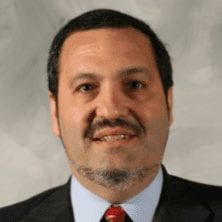
Tony Sciarrotta serves as Executive Director of the Reverse Logistics Association. He was nominated and selected by the Board to serve as the Executive Director on August 1, 2016. Since Mr. Sciarrotta had been an active member serving in committee leadership of Reverse Logistics Association since 2005, he had also served on the Board of RLA from 2005 to 2012 while employed at Philips Consumer Lifestyle as their Director of Sales & Marketing. So it was a simple decision for the selection team at RLA to approve Mr. Sciarrotta. Since his experience, qualifications and service to RLA was more than substantial to meet the requirement that was needed as the next Executive Director. Mr. Sciarrotta has held a variety of sales and marketing positions in the consumer electronics industry for over 35 years, most recently as the President of Reverse IT Sales & Consulting. Tony brings so much experience to the RLA team, including 25 years at Philips Consumer Lifestyle. His background helped prepare him for a developmental role as director for returns management activities, and in 1998 Tony was assigned to create and manage a cross functional department to reduce returns and their associated costs. He was successful at implementing effective returns policies and procedures with a variety of dealers, and in 2005, Tony assumed responsibility for maximizing asset recovery of all returned consumer goods. Tony has specifically targeted best avenues for reselling returned goods at the model level, by using tools developed with finance support. In 2013, after establishing best-in-class results for returns in the consumer goods industry, Tony retired from Philips and now sits on various committees and industry groups. Learn more about the Reverse Logistics Association here: https://rla.org/
